S.U.R.’s Portfolio

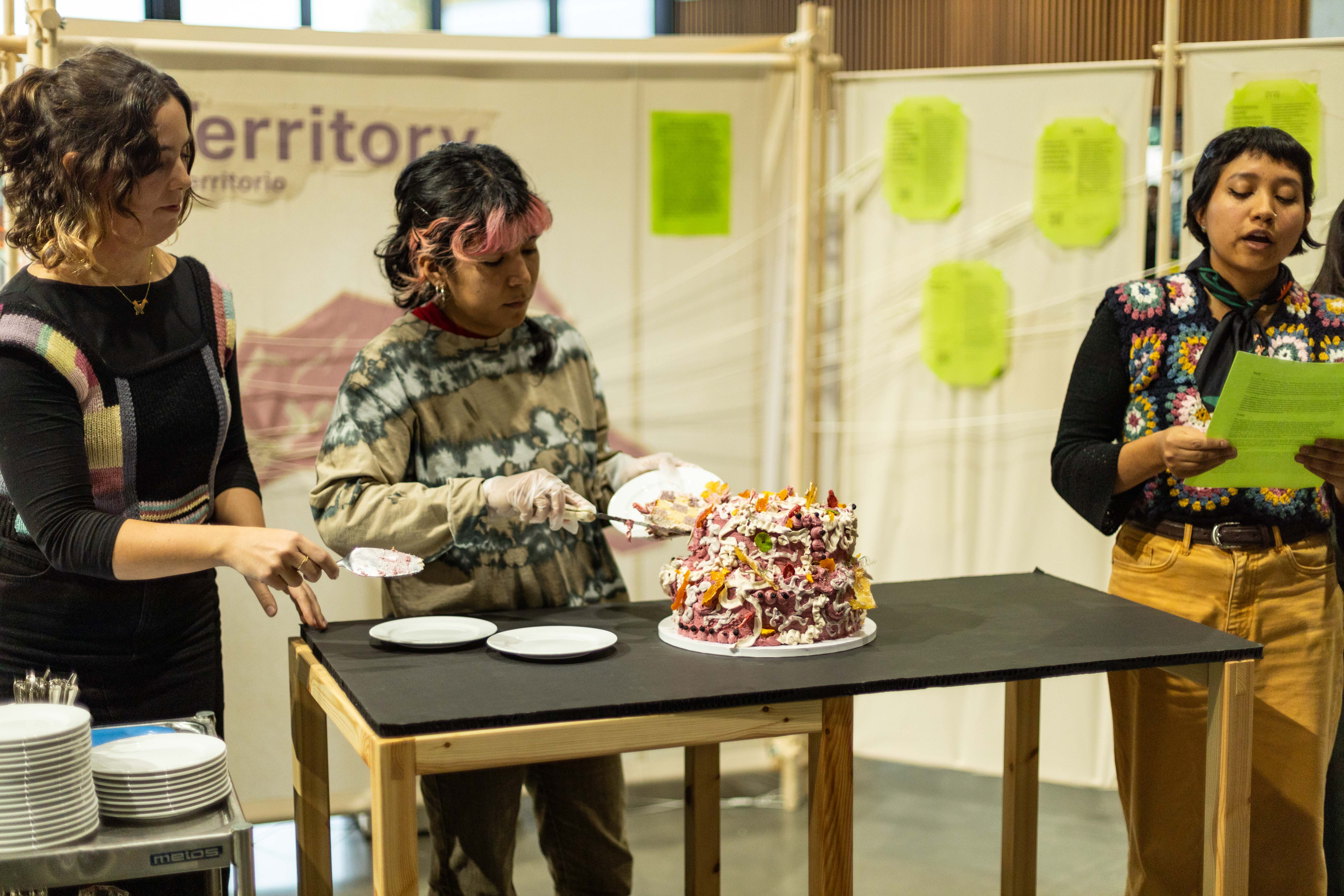
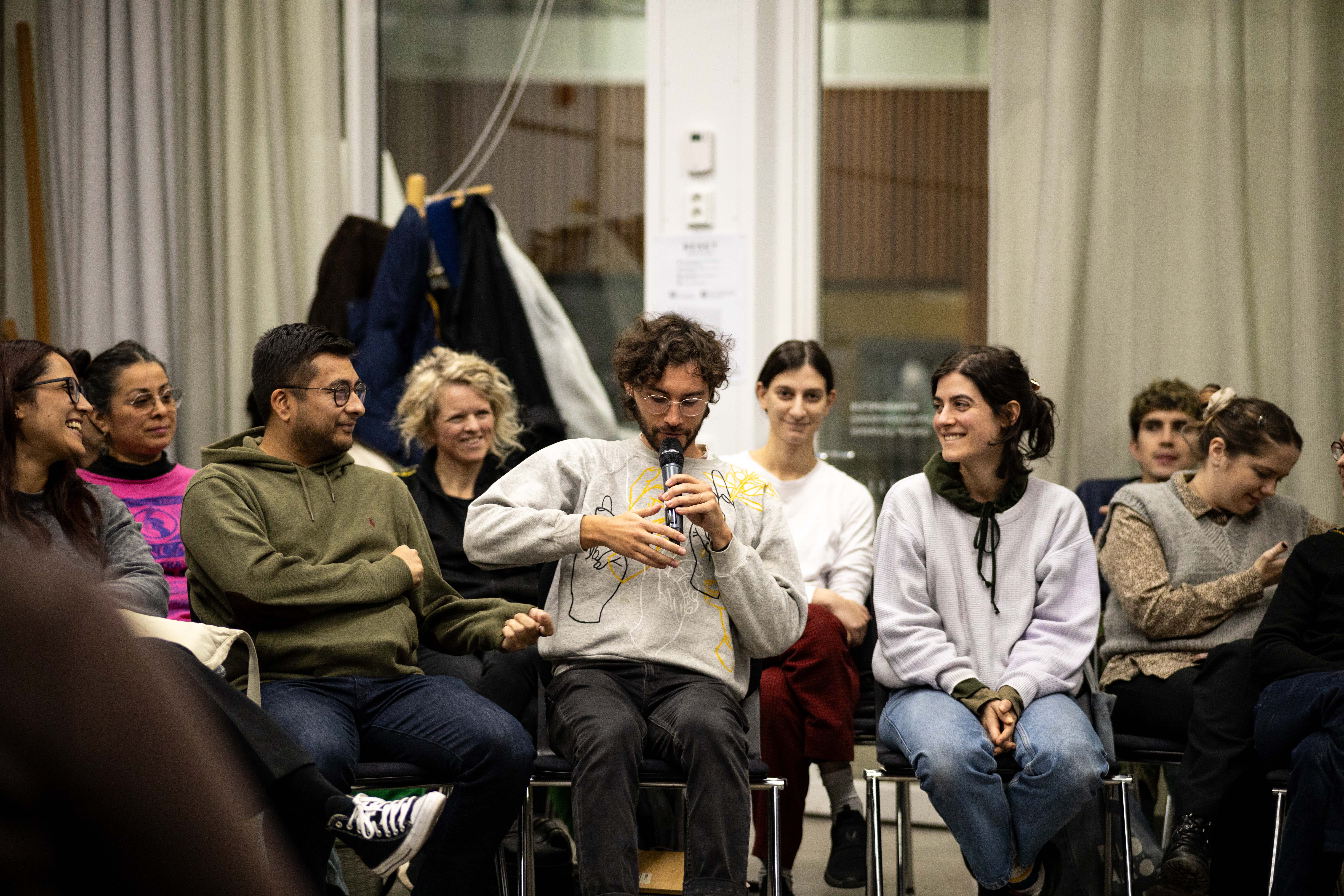

Intento 1.0: A Decolonial Attempt
November 2023Aalto University
Project page
Intento 1.0 was an exhibition of a living archive based on research initiatives engaging with Latin American contexts present at Aalto University, organized and produced by S.U.R.
The exhibition displayed a curated collection of Master's and PhD’s theses, mainly from Aalto Arts, that engaged with specific territories and practices derived from Latin America. The constellation of works embraced the details, thoughts, memories, and experiences that are entangled with specific geocultural localities. They were mapped into three categories, Territory, Familiarity, and Making, which provided a framework to observe and recognise potential decolonial forces latent in the works. Through creating a dialogue among these various possible ways of doing and thinking, we aimed at raising value to alternative attitudes towards knowledge production systems.
The works were presented on a wooden and cotton structure co-created with You Tell Me Collective, a group of students and young architects based in Finland who promote building through peer learning and activism. The structure, called “casita” (little house) was created to be easily assembled and disassembled, move, and adapt to different locations.
Intento 1.0 also consisted of accompanying events. Water poems and Liquid layouts workshop: Part 2, held by Kollektiivi in collaboration with Debt for Climate Finland, was a water-inspired workshop around reflecting about our relationship with water, writing poems, and visually explore how to communicate with a more critical perspective. A live panel of the podcast Diseño y diáspora hosted by Dr. Mariana Salgado, exploring the challenges, possibilities, and implications of incorporating decolonial approaches into sustainability discourses and Finnish Design education. Finally, a closing party organised together with Latin American Film Festival in Finland, Cinemaissí, showcasing dj’s playing mainly Latin American rhythms.
Collaborators
Cinemaissí: Diego Ginartes, Lois Arma / Debt for Climate Finland: Upu Laukkanen, Taru, Pargol, Amjad / Diseño y Diáspora: Mariana Salgado / Edible Landscapes: Alejandra Alarcón / Kollektiivi: Adelaida Ávila, Milja Komulainen, Hau Lok Lo / Muchachos Bar / You Tell Me Collective: Seela Pentikäinen and Siiri Hänninen

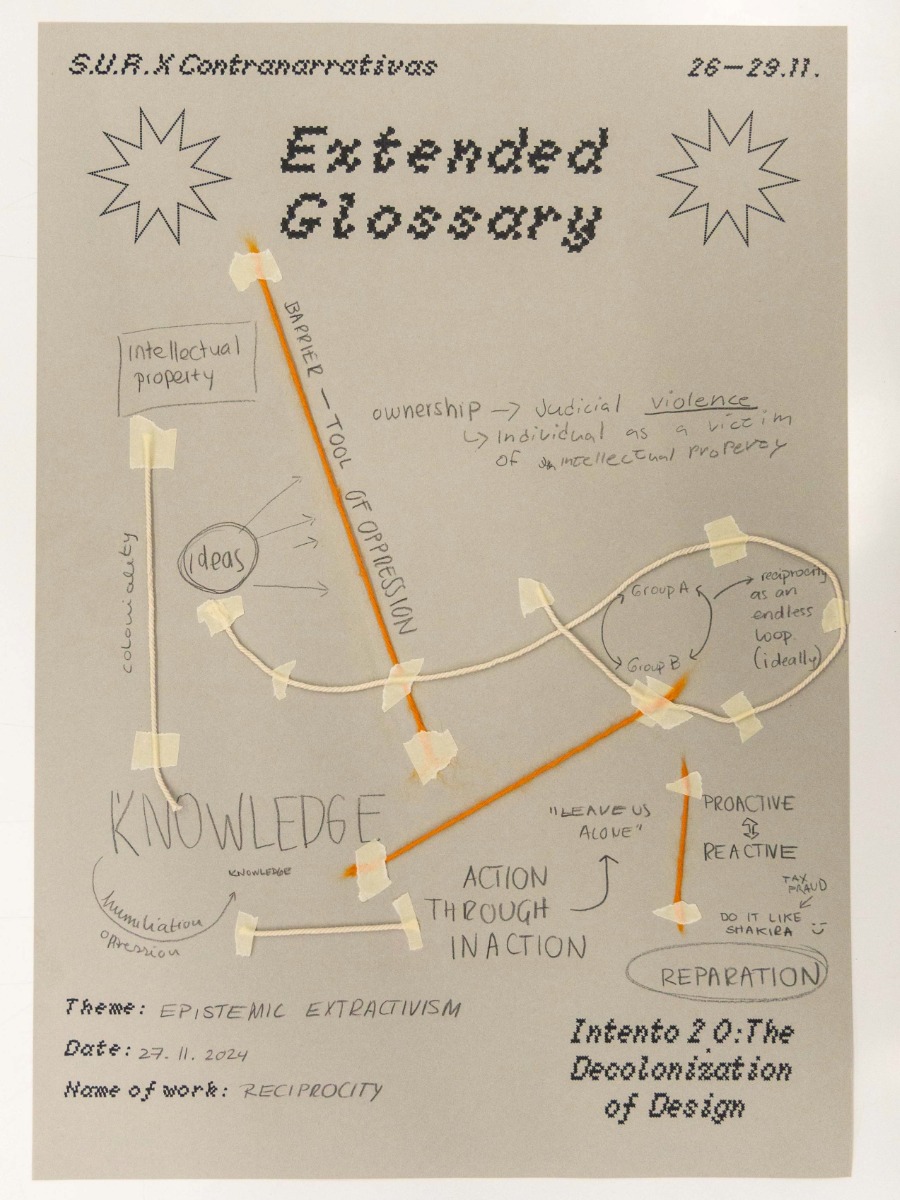

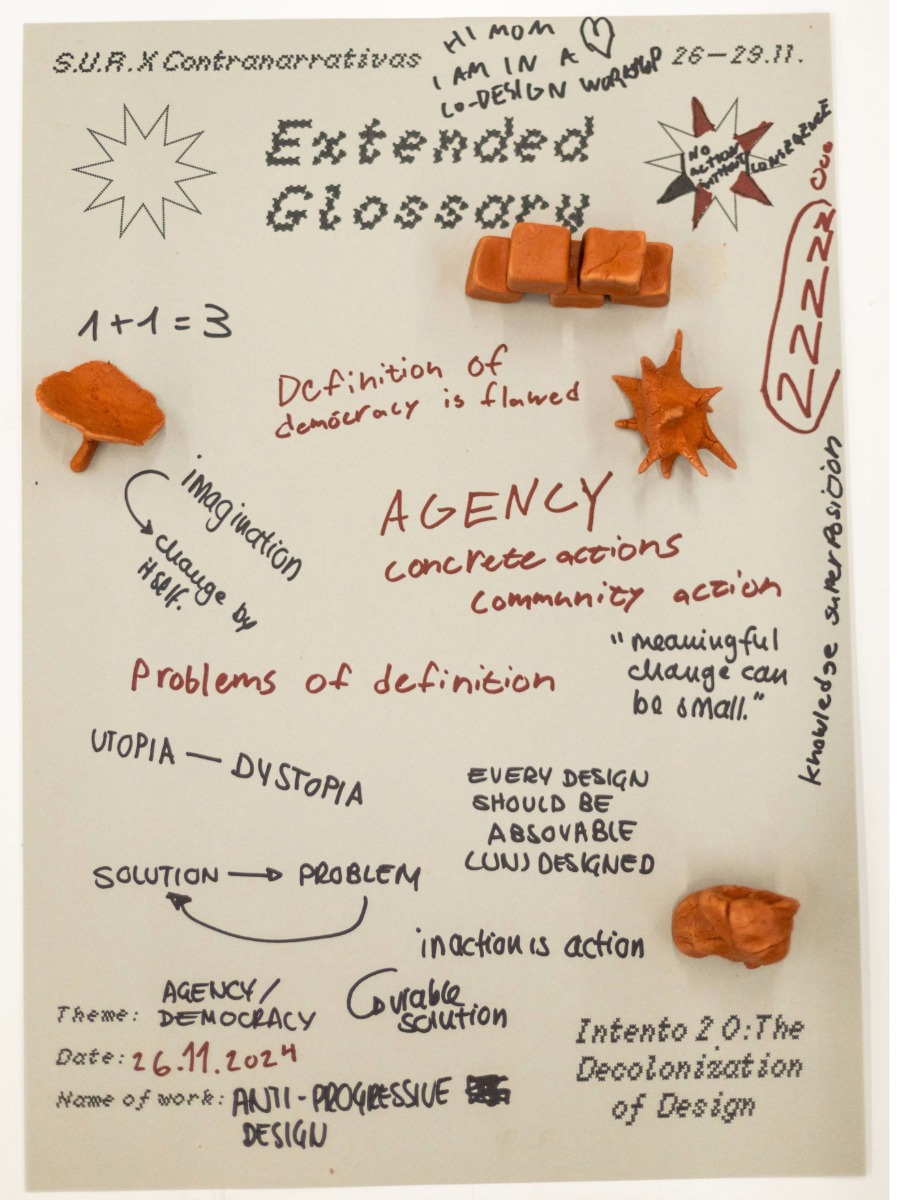
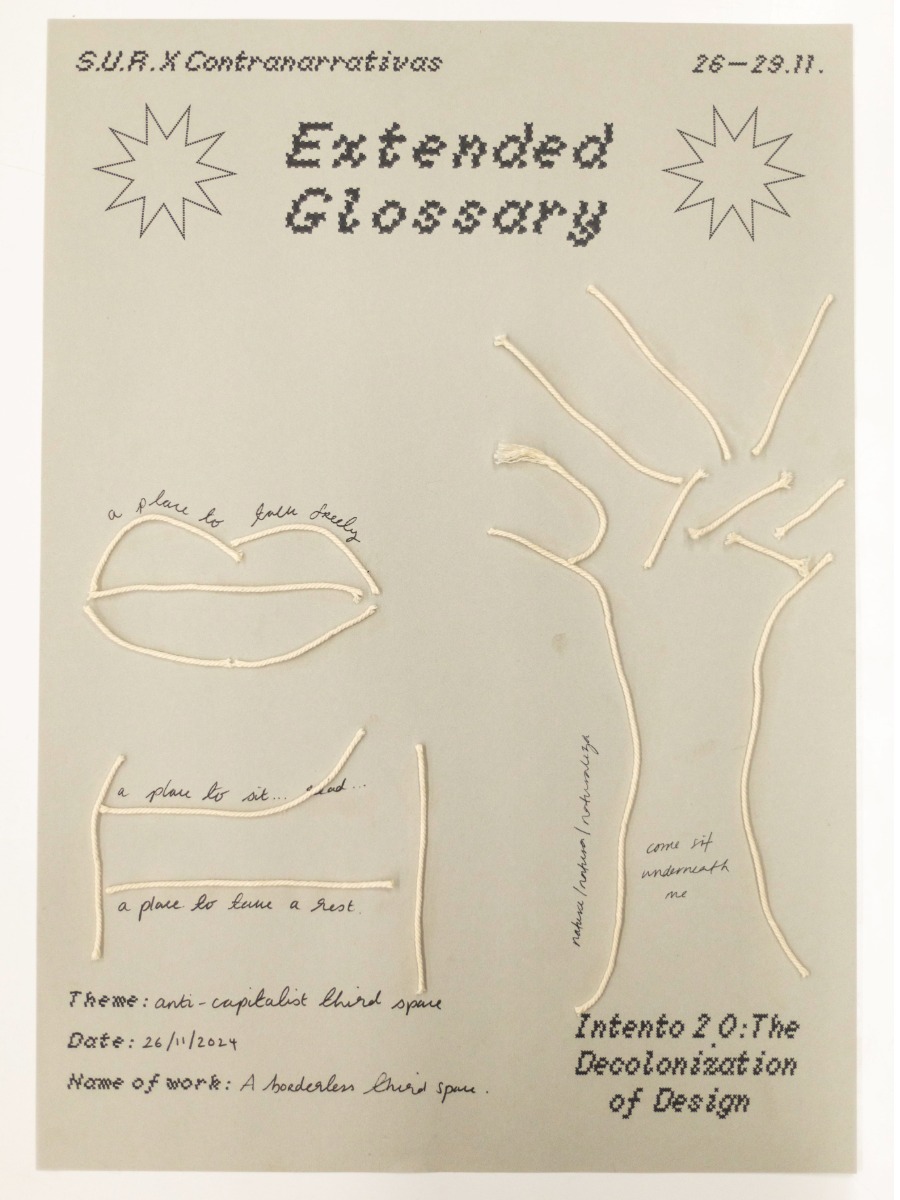
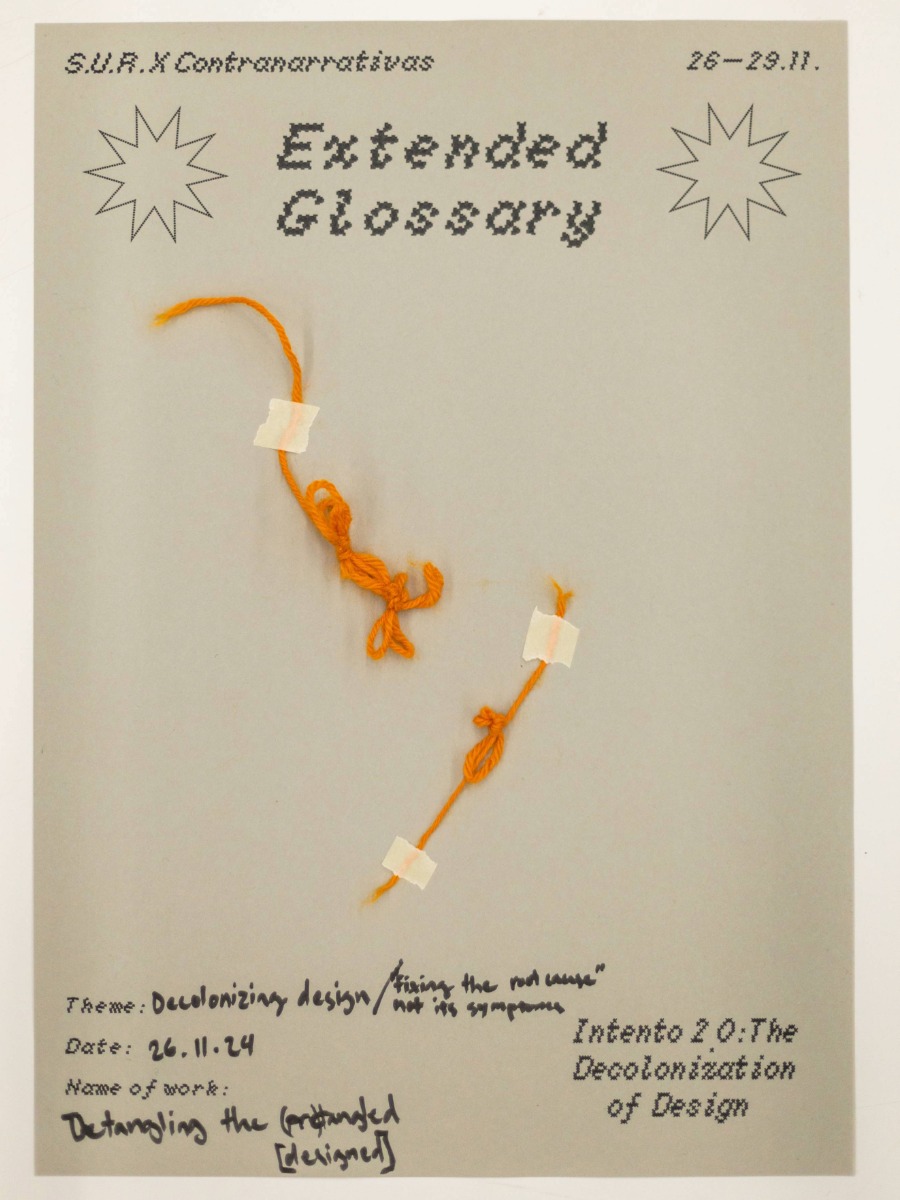

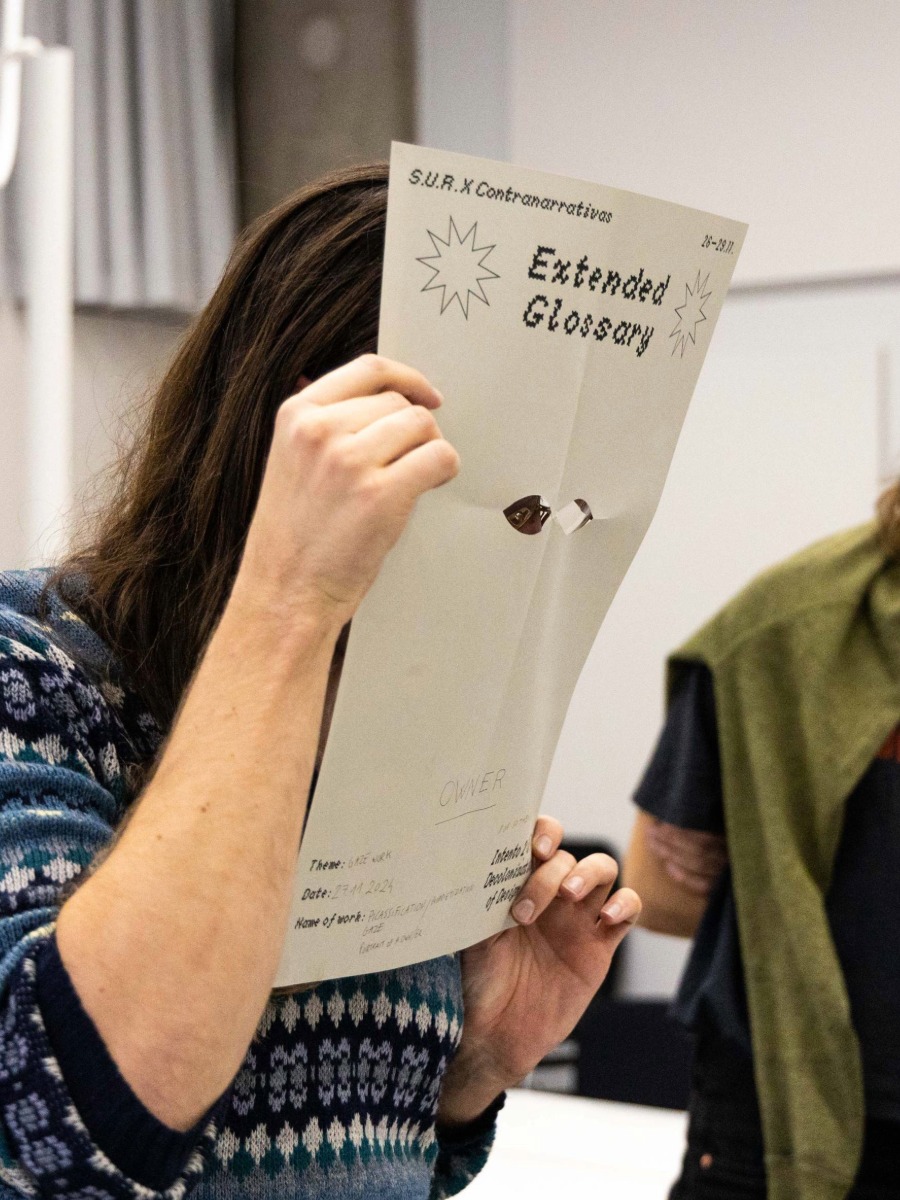

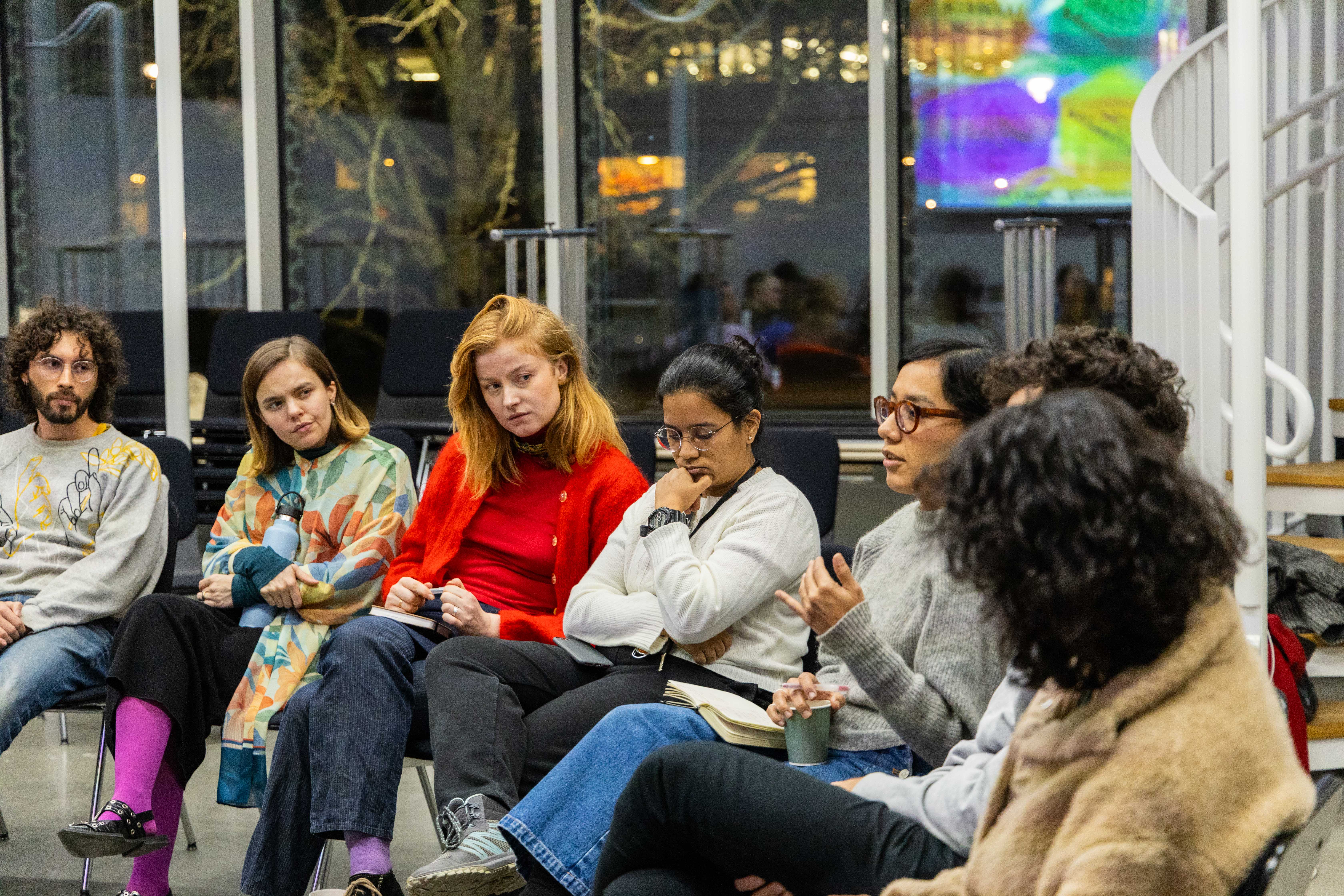
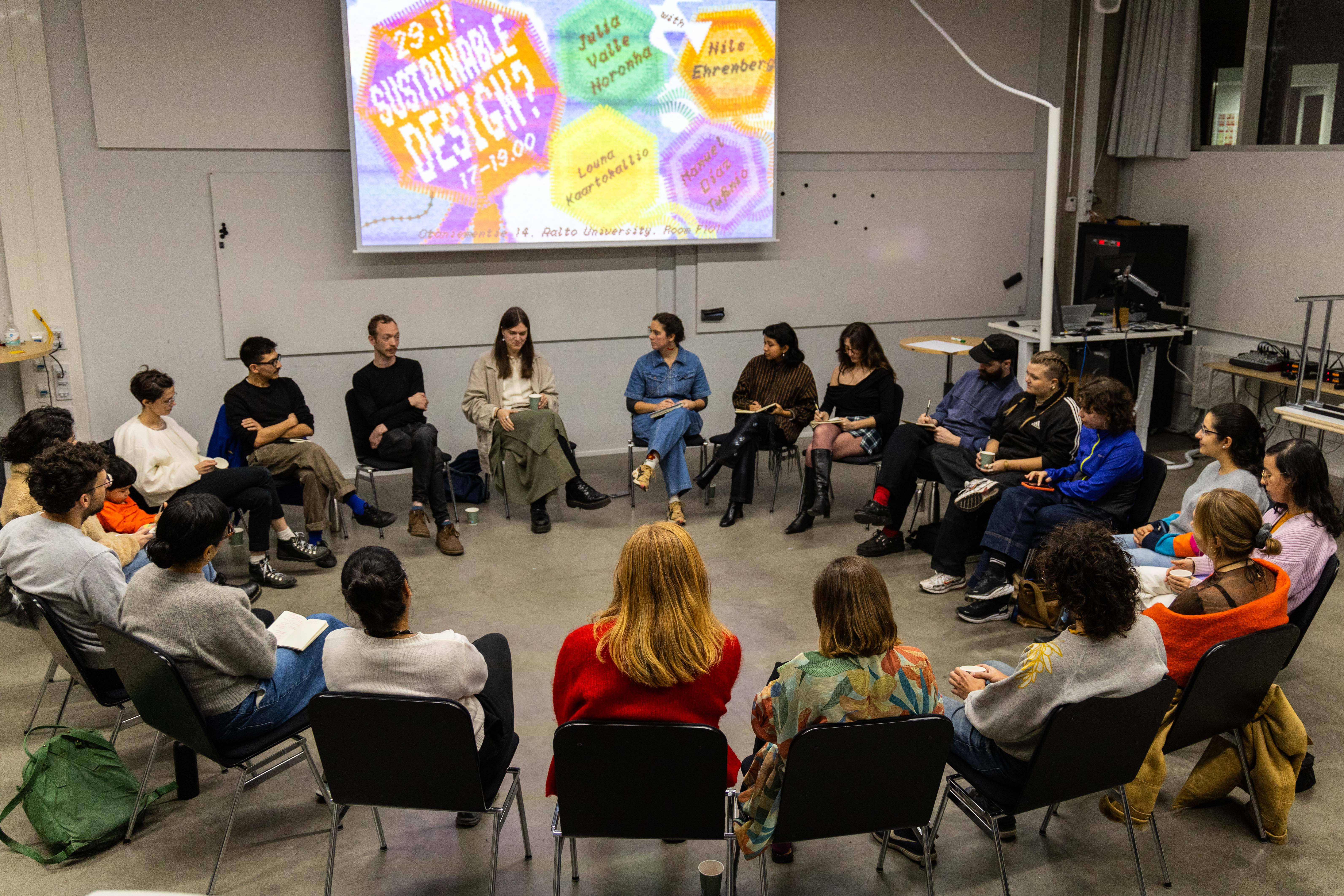
Intento 2.0: The Decolonization of Design
November 2024Aalto University
Project page
In 2024 S.U.R. hosted Intento 2.0: The Decolonization of Design, a three-day seminar and panel discussion exploring the intersections of Visual Art, education, colonial legacies, and environmental justice, through a critical and pedagogical lens. The event was an open, porous and inclusive space of reflection for the co-construction of knowledge.
Held at Aalto University, the seminar counted with the participation of Fabián Villegas from Contranarrativas, an anti-colonial visual education collective based in Mexico and the Caribbean. Each session was centered around one of three axes: Decolonization and Decanonization of Design, This Was Designed on Stolen Land, and Sustainability for Whom? The discussions addressed topics such as challenging the myth of visual culture as neutral or apolitical and how to create counternarratives that challenge the dominant paradigms; the notion of resources and how “sustainability”—when rooted in extractivist and anthropocentric models—fails to be truly anti-colonial or anti-racist; and the role of the artist/practitioner in climate justice, exploring frameworks that are reparative, redistributive, and rooted in non-Western epistemologies.
Each session concluded with a hands-on workshop aimed at processing and reflecting on the exchanges of the day. We collectively created an Extended Glossary, that explored alternative ways of imagining and defining relevant notions of the seminar through craft and unexpected materialities. The seminar culminated in an open panel discussion, offering space for dialogue, connection, and synthesis of the week’s provocations between practitioners, students, researchers, and teachers. An open collaborative bibliography, that continues to grow, was created and shared with all the participants.

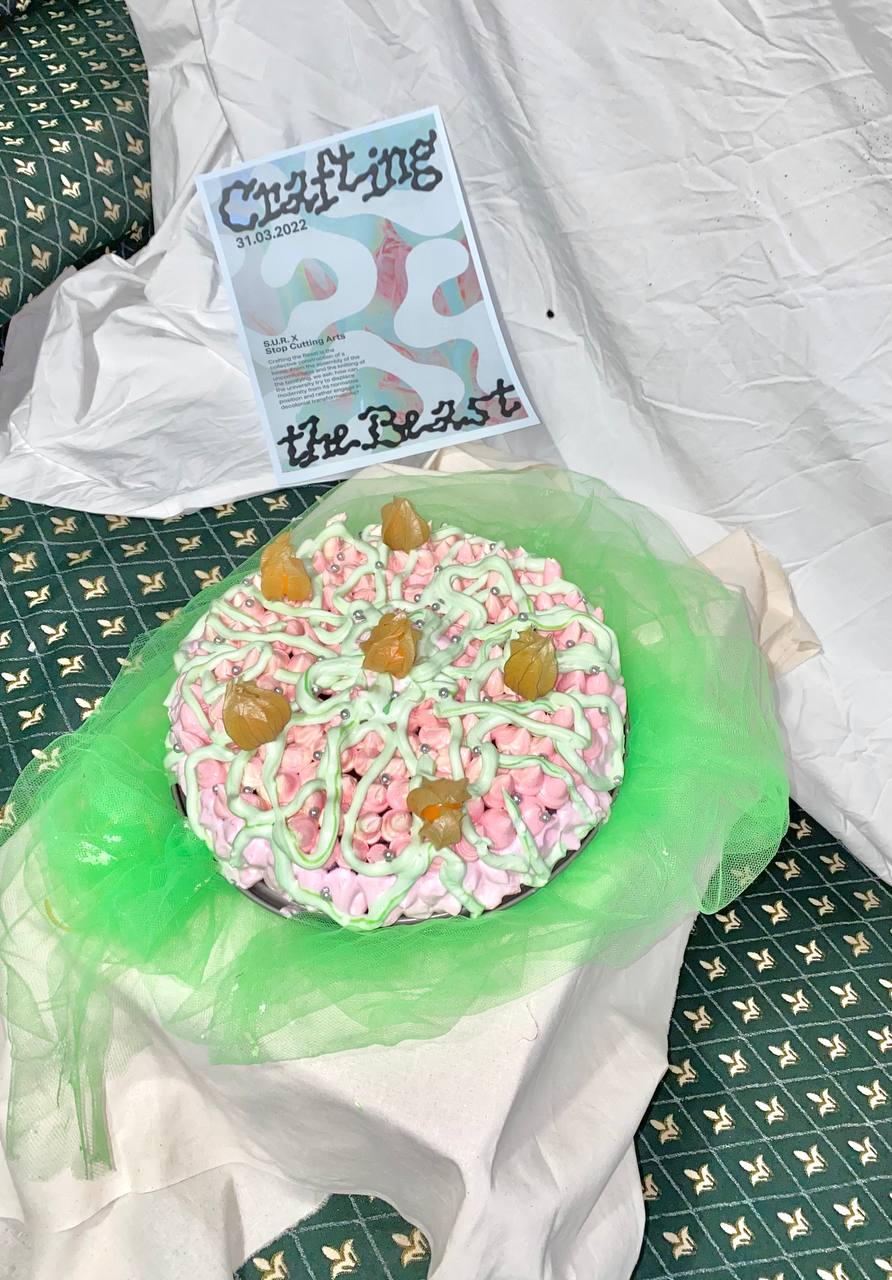
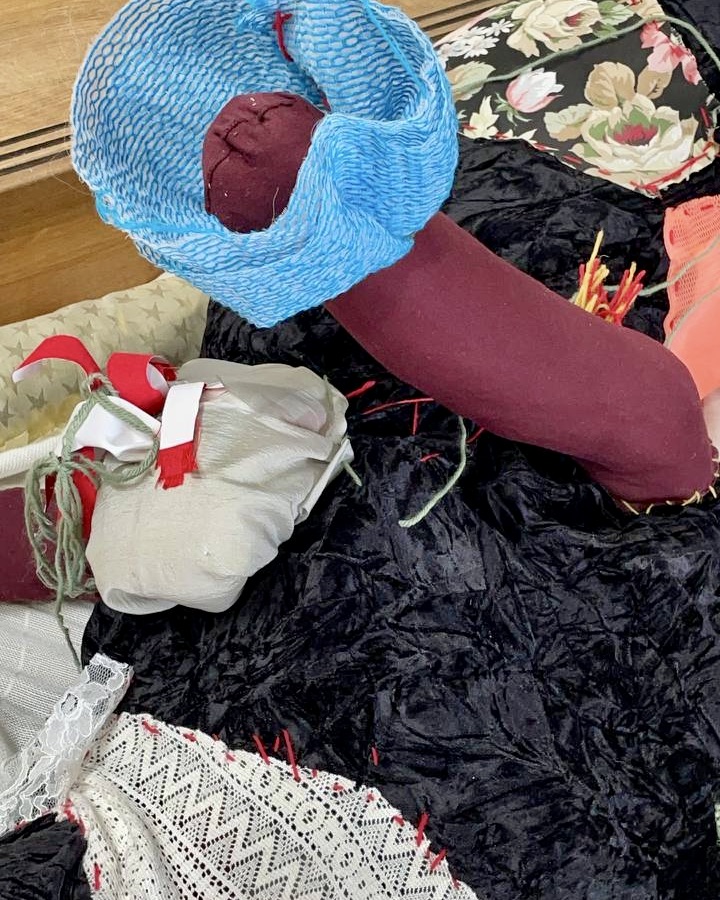
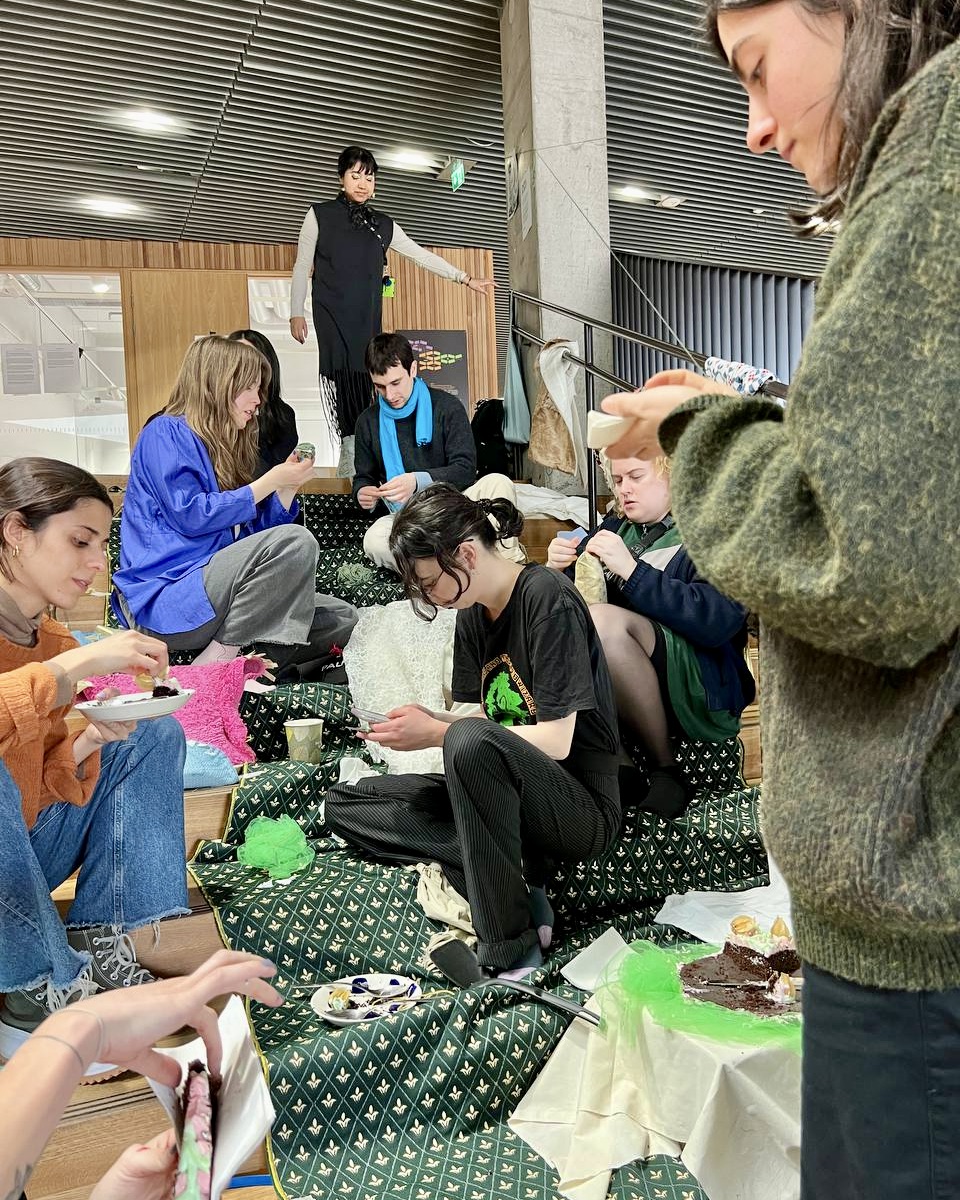
Crafting the Beast
Workshop and interventionMarch 2022
Aalto University
During the Stop Cutting Arts protest at Aalto University, we invited fellow students to join us to collectively craft a beast through textiles and sewing. In the context of a global tendency of neoliberal approaches towards education, we wished to highlight the importance of defending those spaces in which other forms are cultivated. The beast is the figure that allows us to embody and explore a powerful and wild otherness.
Through the actions of the collective body, and through threads, needles and textiles we build the beast. The assembly of the uncomfortable and the knitting of the terrifying allows us to reflect. Together we ask, how can the University move away from its normative position and rather engage with decolonial transformations?
Extract from our reflection text: “If on the one hand there is the human or even the superhuman, God, the State, masculinity, the North, the white, the heterosexual subject, the civilized and the progress, on the other there is the beast, which is considered as animality, nature, femininity, the South, the slave, the non-white subject, the abnormal, the underdeveloped and the barbaric. But the beast does not seek to be accepted or recognized. On the contrary, they keep on walking along the marshy margins, entangling themselves with alternative ecosystems. And by this way, the beast is gestating, perhaps with other creatures, new ways of inhabiting the world.”
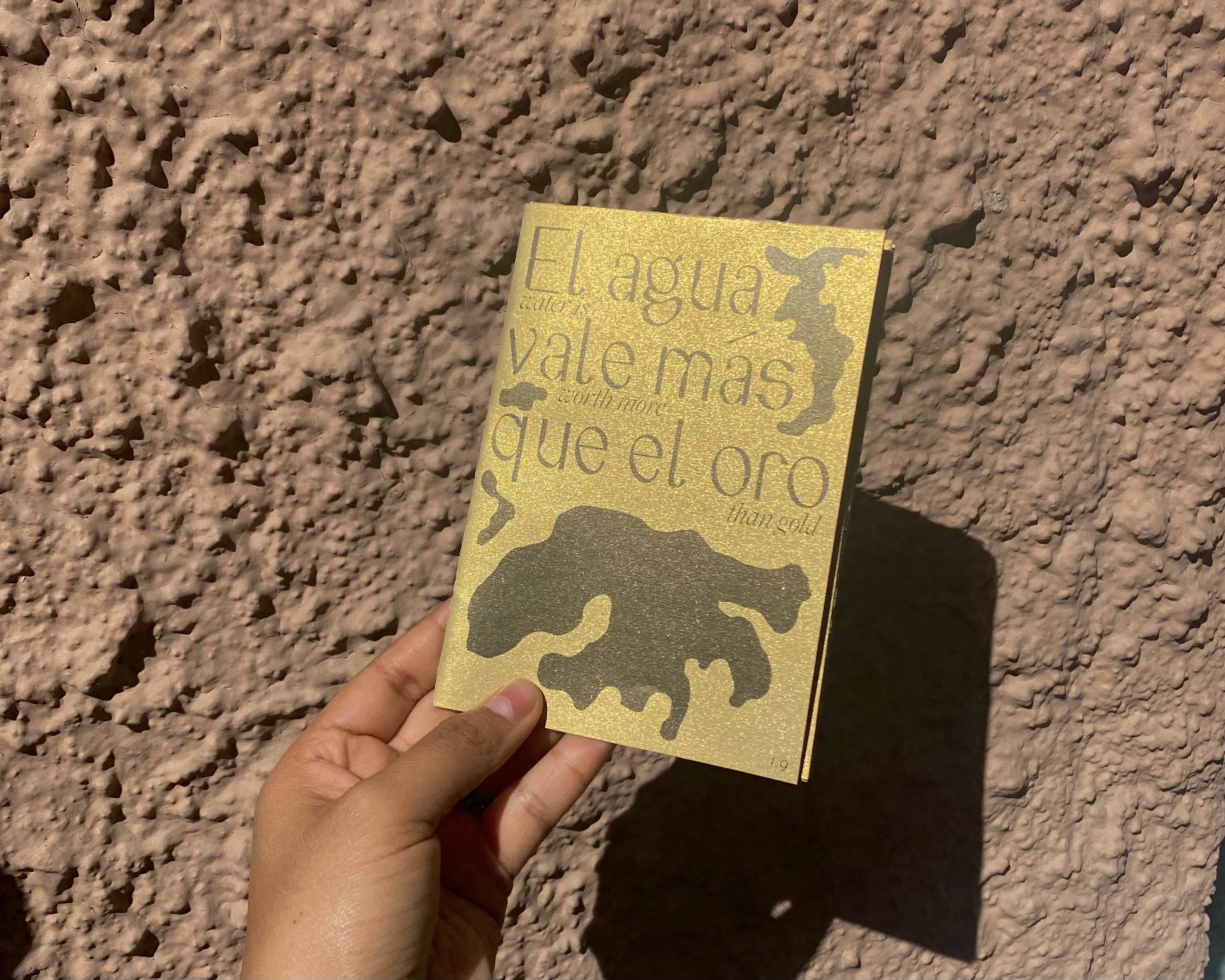
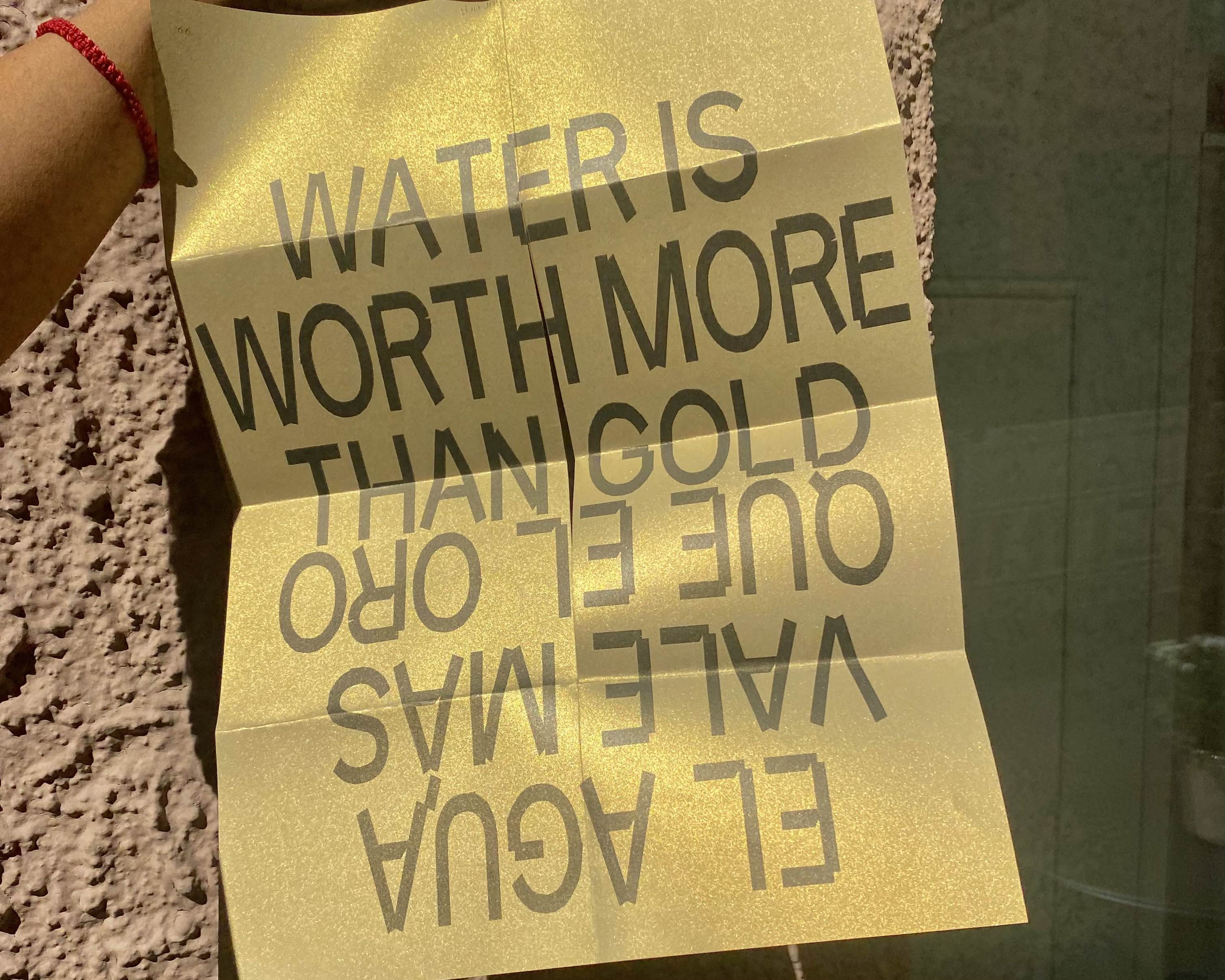
El agua vale más que el oro/Water is worth more than gold
Publication and performanceJune 2023
Debt X Climate
For this zine, S.U.R. collaborated with our friend Annabella Cajas from San Juan, Argentina, who shared the story of how her hometown was devastated by mining. What began with promises of jobs and prosperity ended in cyanide spills, environmental destruction, and widespread poverty. The city of Jáchal, with 25,000 inhabitants, sits downstream from the mega-project, and has lost much of its farming livelihood, while only a handful of locals work in the mines.
The zine was designed to reflect the lure of gold through golden paper and folding, and it has been distributed at climate protests and gatherings, as well as performed publicly by S.U.R. members.
About Collaborator
S.U.R. is one of the co-starters of Debt for Climate Finland. Debt For Climate is a global movement that seeks to recognise the unequal responsibility towards the climate crisis that exists between the Global North and the Global South. www.debtforclimate.org/






Islands of Kinship
WorkshopMarch 2022
Islands of Kinship
Climate Justice in Art Institutions: How to Infiltrate ⤵︎ was a hands-on workshop exploring how we might smuggle climate justice into the structures of Art institutions. Together with participants, we imagined infiltration strategies inspired by natural entities like fruit flies, polypores, lupine, termites, and siphonophores. Using clay, yarn, crayons, and other simple craft materials, we prototyped these ideas in tactile ways—treating making as a method for thinking. Through group exercises, drawing, and play, we collectively reimagined what institutional change could look like, mixing ecological metaphors with practical strategies for action.
About Collaborator
Islands of Kinship interconnects and transforms the practical functioning of six mid-scale visual art institutions across diverse European regions (Prague, Bratislava, Bitola/Skopje, Cologne, Helsinki, Riga) in an innovative collaboration model addressing issues of inclusion, kinship and togetherness, democratic exchange and the ethics, emotions and practical solutions for environment-friendly institutional operation. islandsofkinship.org
Amy Gelera
Amy Gelera (they/she) is a Latinx Graphic Designer and Art Director based in Helsinki. Their design and research aim to visualise, advocate for and support efforts that aim for systemic change.
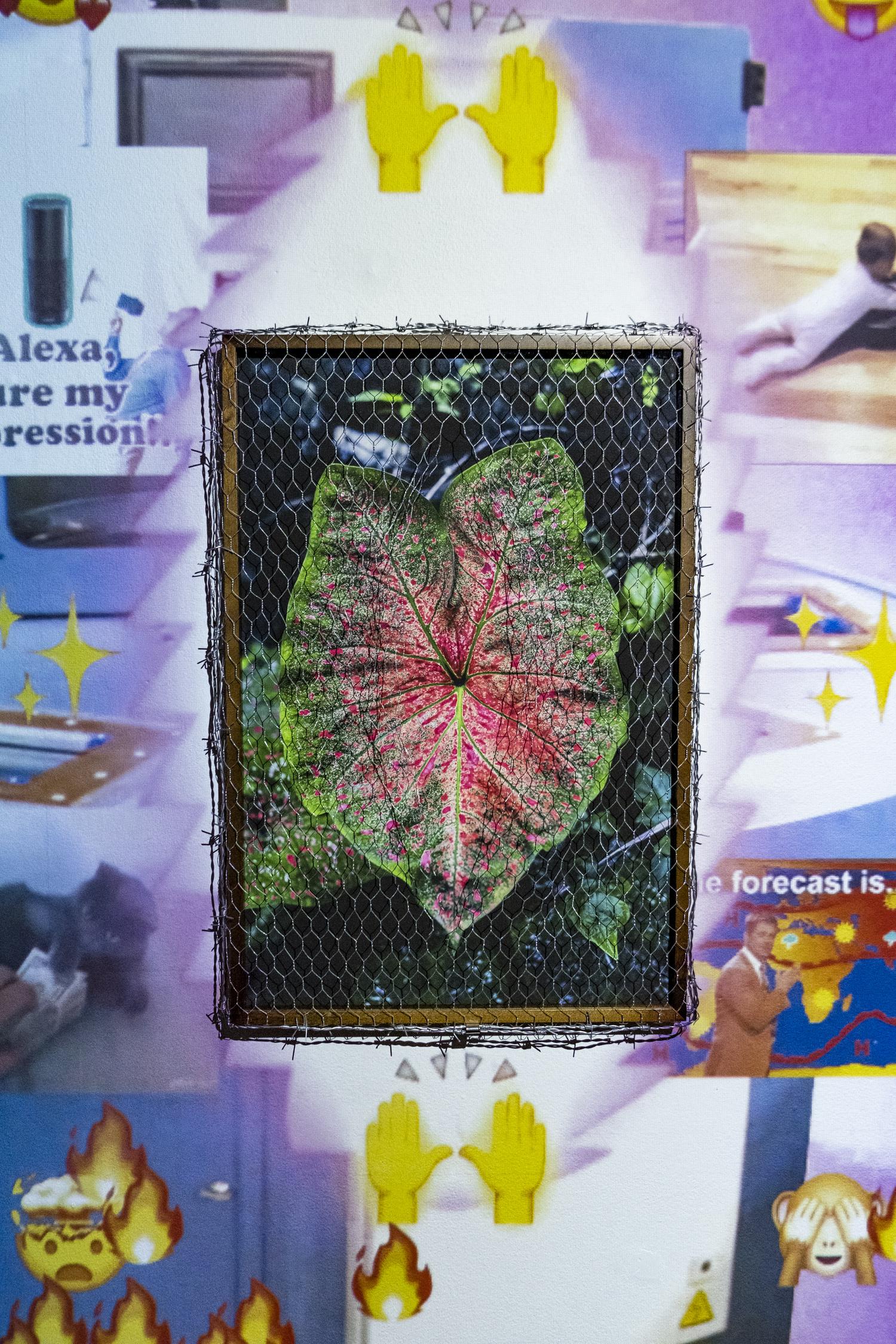
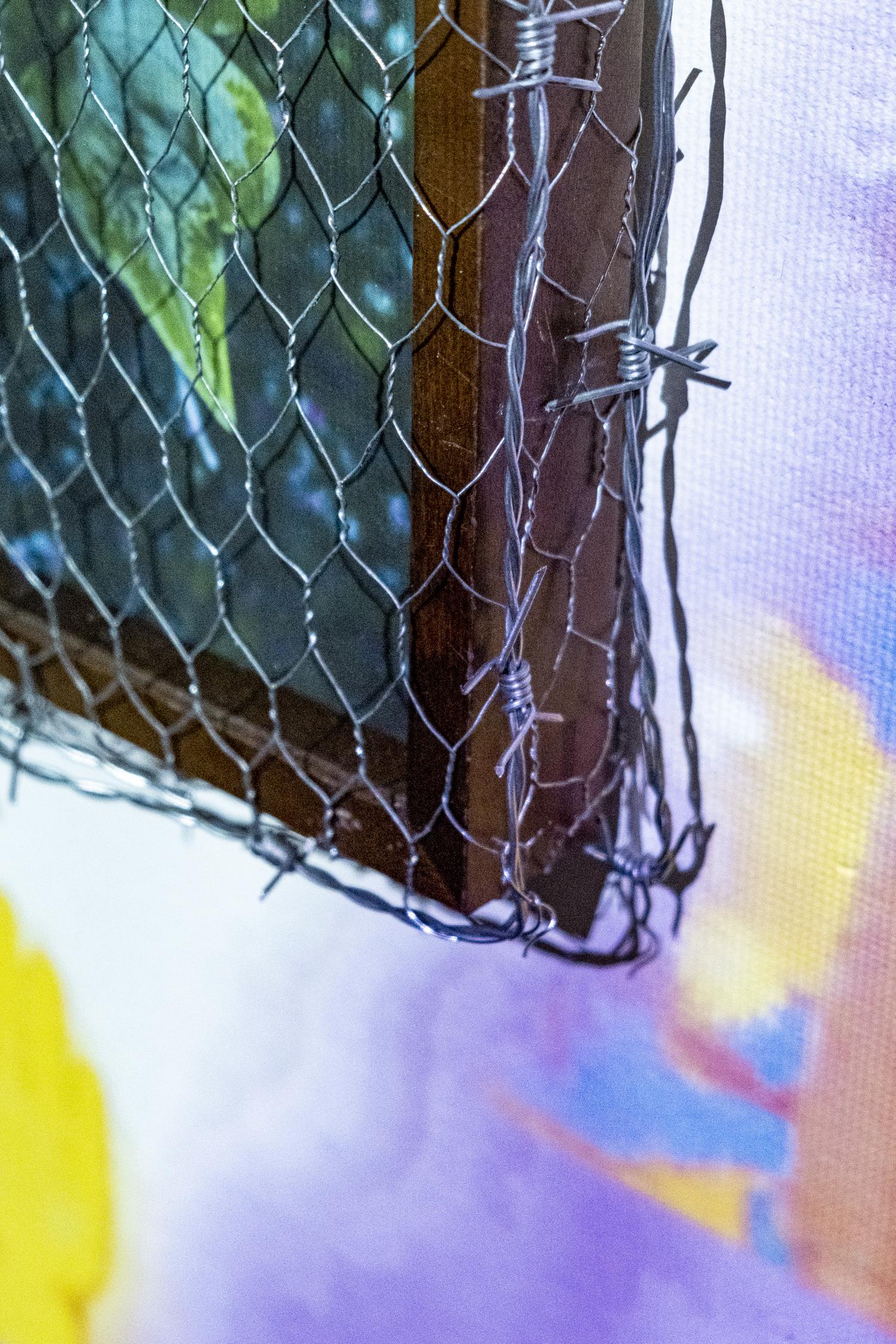

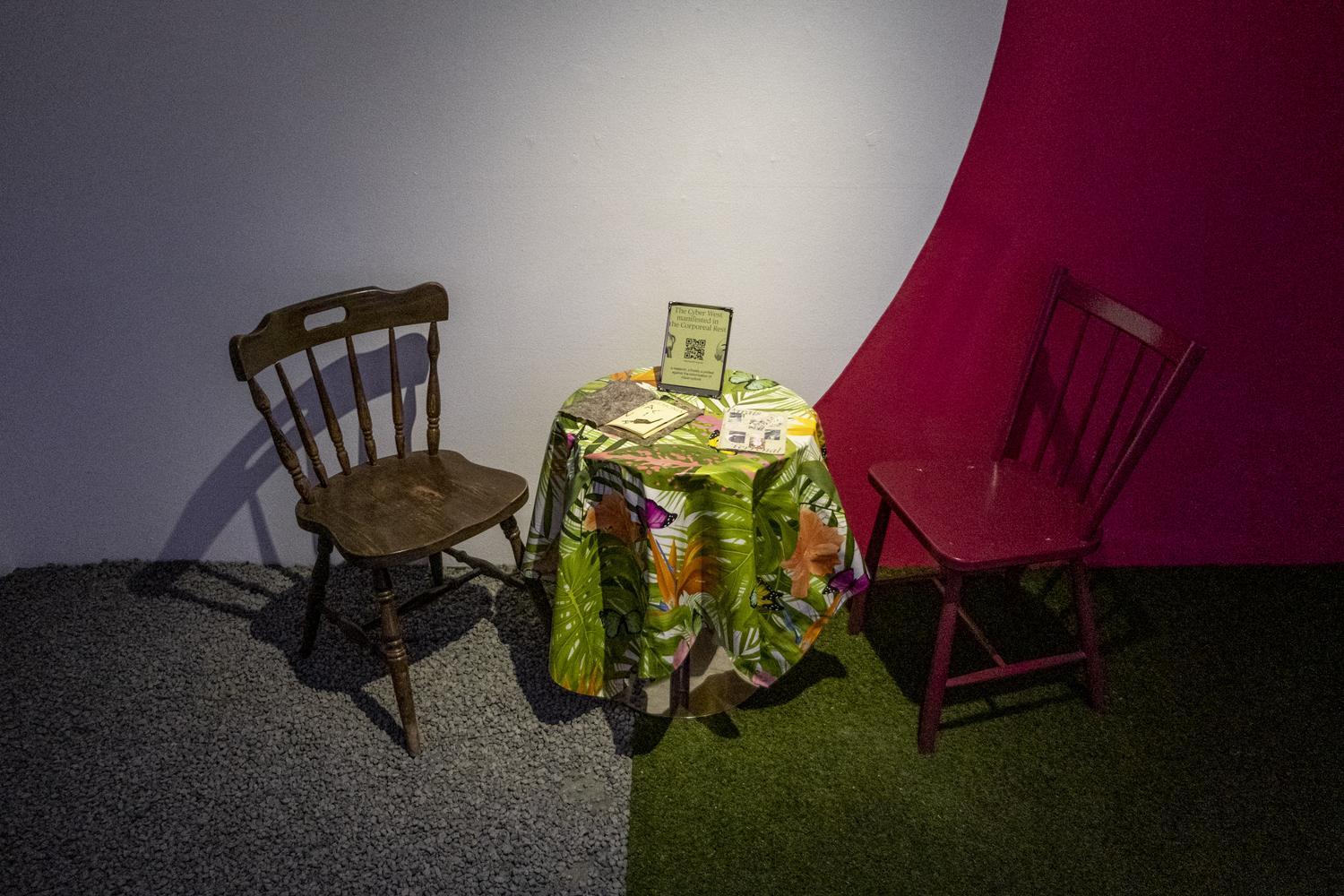

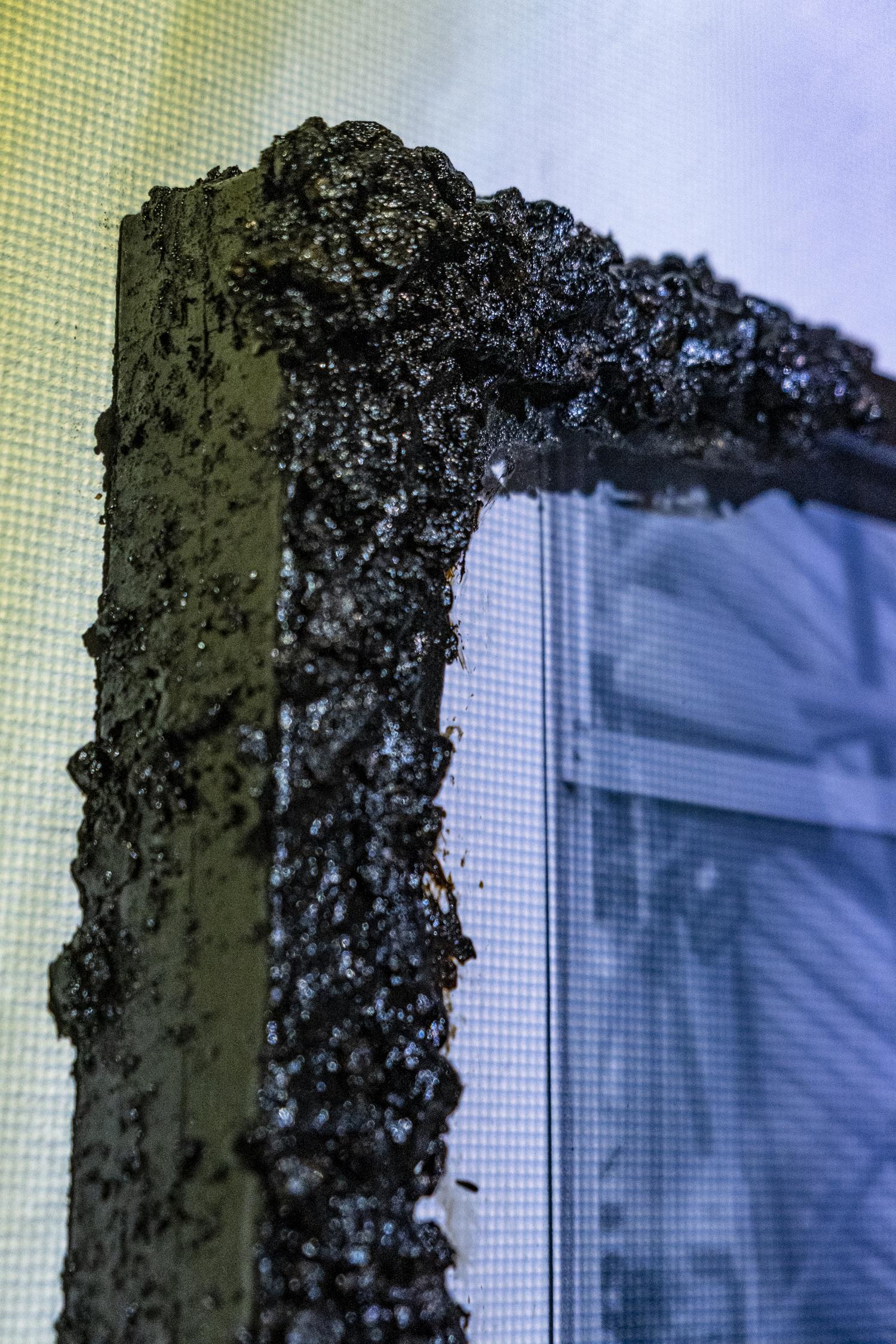
Hegemonia Saliva
Art InstallationCollaboration with Domink Fleischmann
Exhibited at Photographic Gallery Hippolyte as part of Nuoret, 2023.
In our work, Dominik and I demand accountability of colonial powers. Our collaboration questions the relationship between Europe and Latin America and discusses responsibilities regarding the global ecological crisis. We draw from our personal photographic archives and experiences in Central America and Finland. Situated in an intimate space the works attract, provoke and repel through a vibrant mix of pulsating colors, personal stories and activist research within the clash of fragile prints and trashy digital media.
The artist duo is influenced and inspired by the discourse directly linking modernity and coloniality, developed by Latin American authors Aníbal Quijano and Walter Mignolo. Modernity and coloniality are inseparable, two sides of the same coin — similar to the dark side of the moon, coloniality being the dark side of modernity.
At Hippolyte’s Studio space, the two artists discussed the relationship of hegemonies between Latin America and Europe in their personal visual language. The work clashed mediums and materials, perceptions and values. A flashy projection bouncing between emoji hearts and protest footage of the streets of Guatemala, meet two framed artworks that speak of violence and separations in the name of conservation. The media installation is opposed by a calm reading nook presenting two handmade zines and Amy Gelera’s academic research on the colonisation of visual culture and the oppressive influence of stock photography.


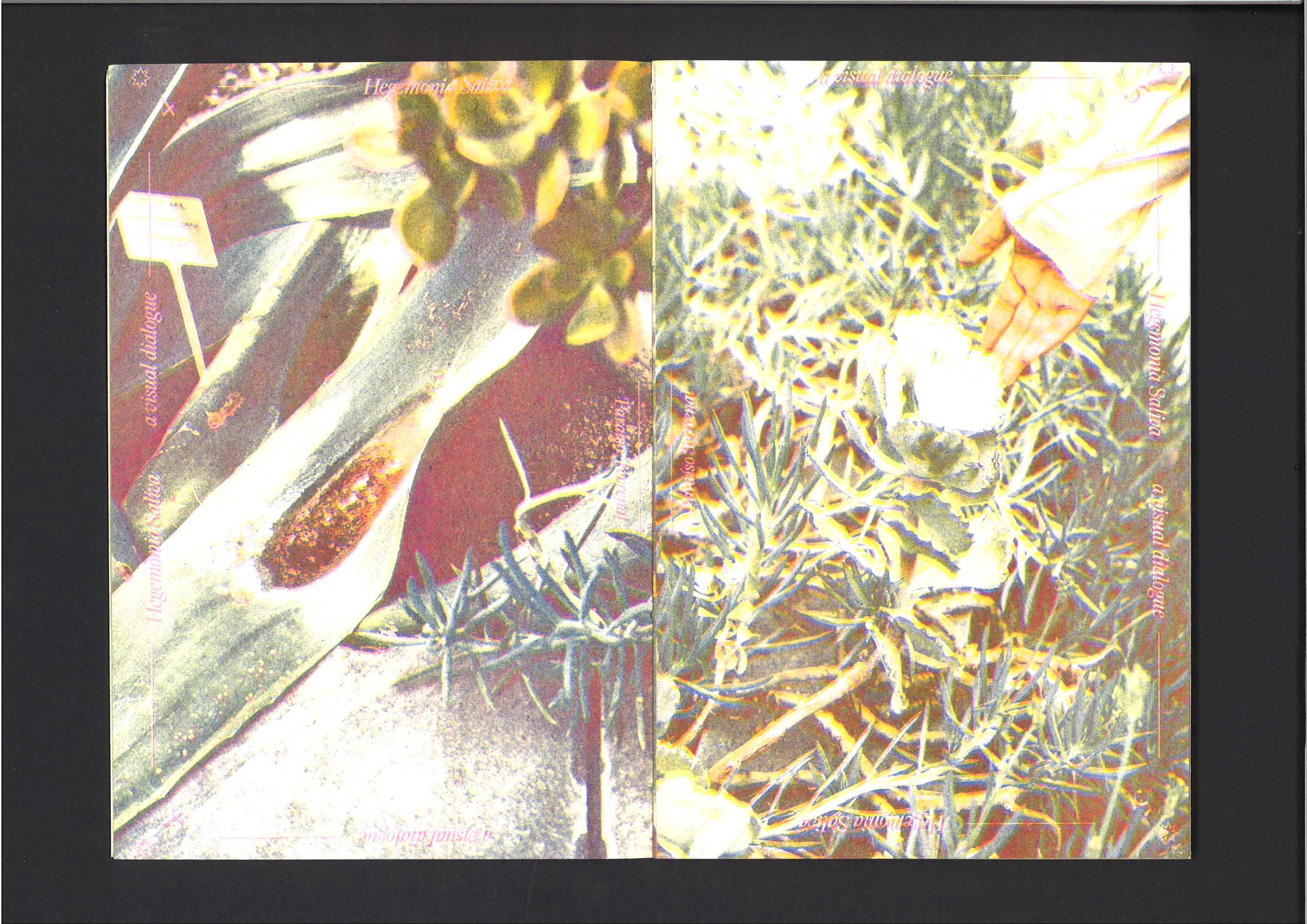
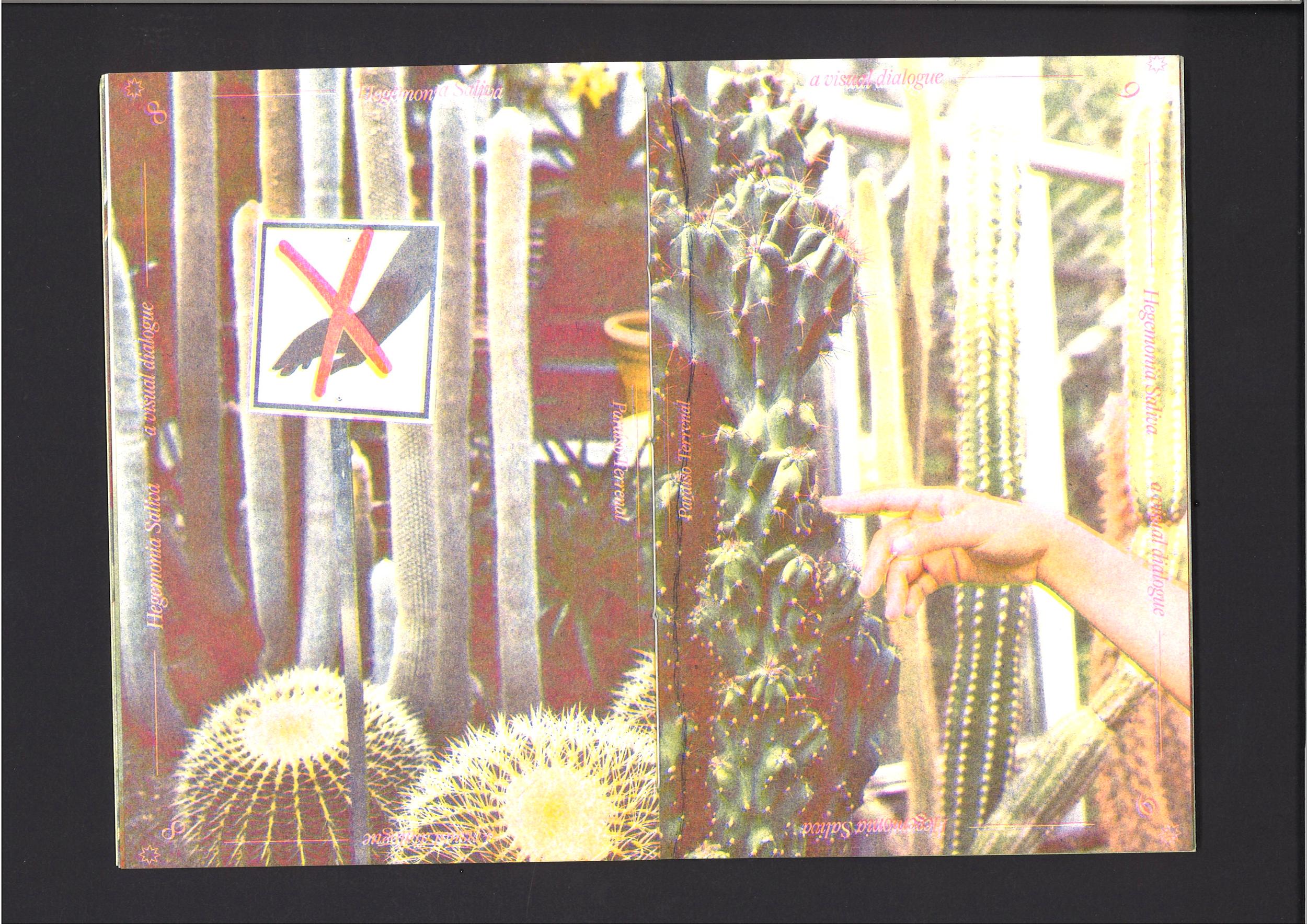
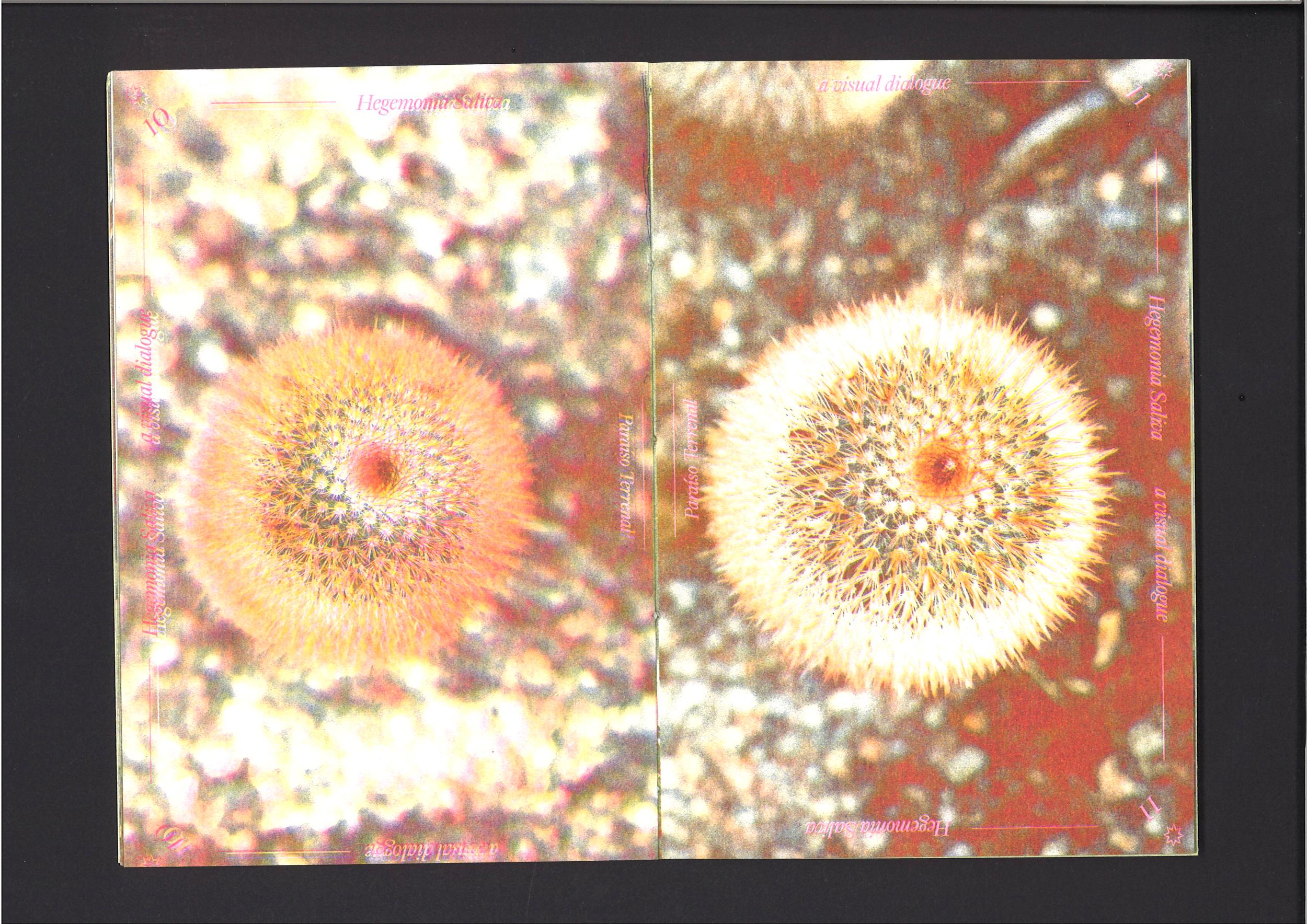
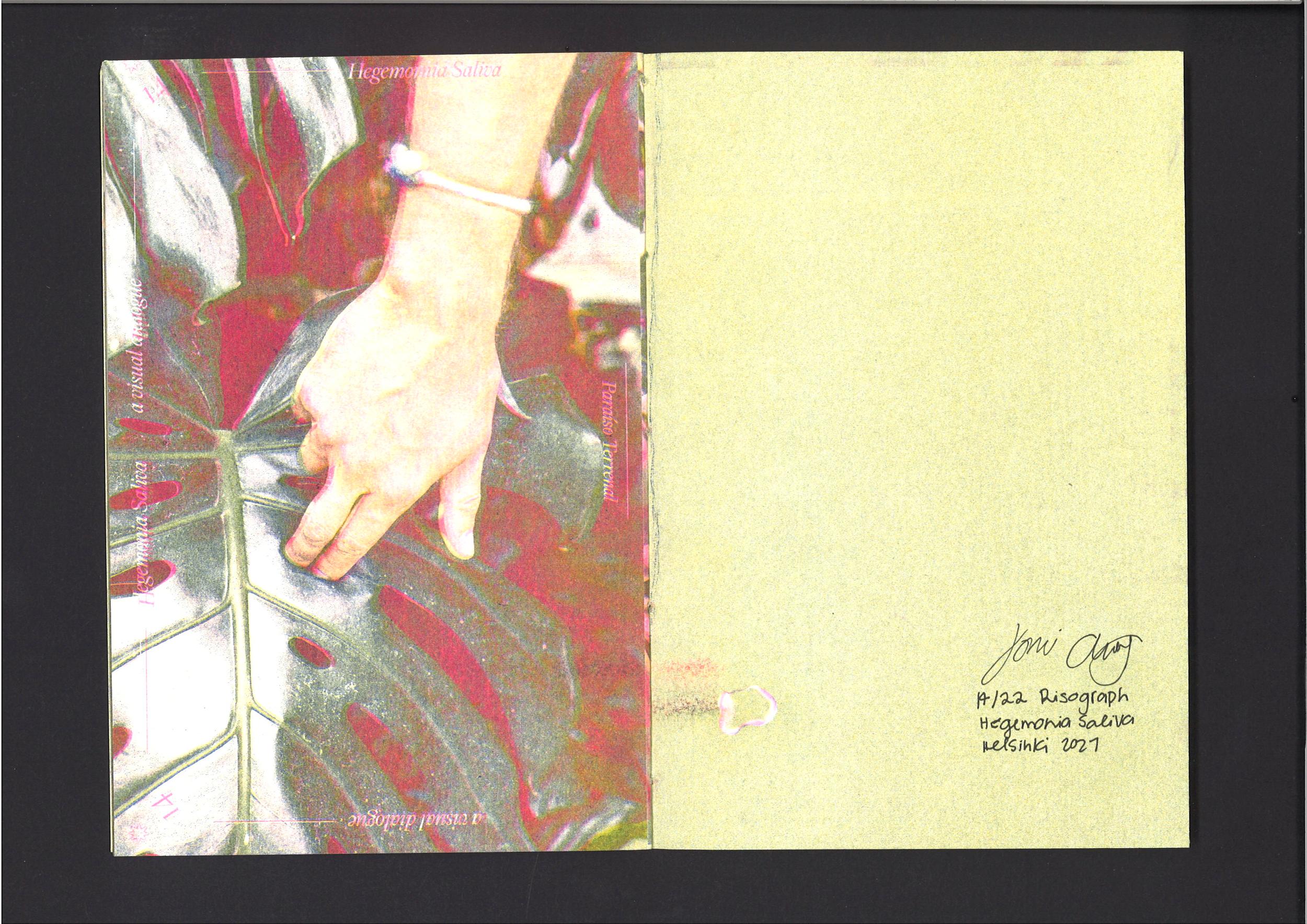
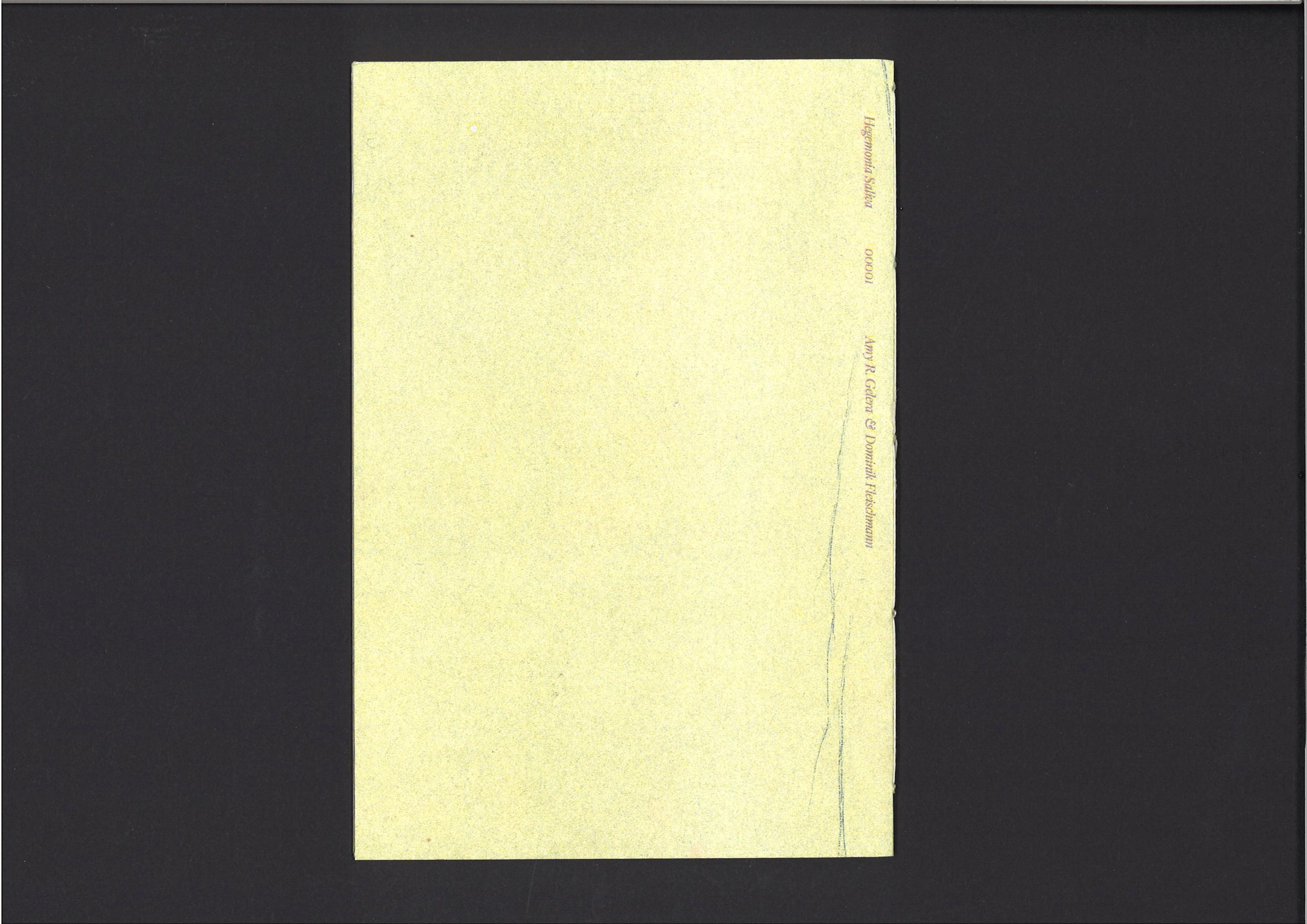
Paraíso Terrenal
Risography publicationCollaboration with Domink Fleischmann
Exhibited at Uusi Kipinä Gallery, 2021
This photographic publication emerged from a visual dialogue in 2021, where we explored the entanglements of colonization—of people and of nature. The series focuses on the exotic plants of Helsinki’s Winter Garden, presenting them as objects of observation to evoke the ways supremacy, superiority, and objectification have historically shaped both human and ecological relations. Printed in risography, the work reflects on how colonial legacies continue to inform our ways of seeing and relating to the natural world.
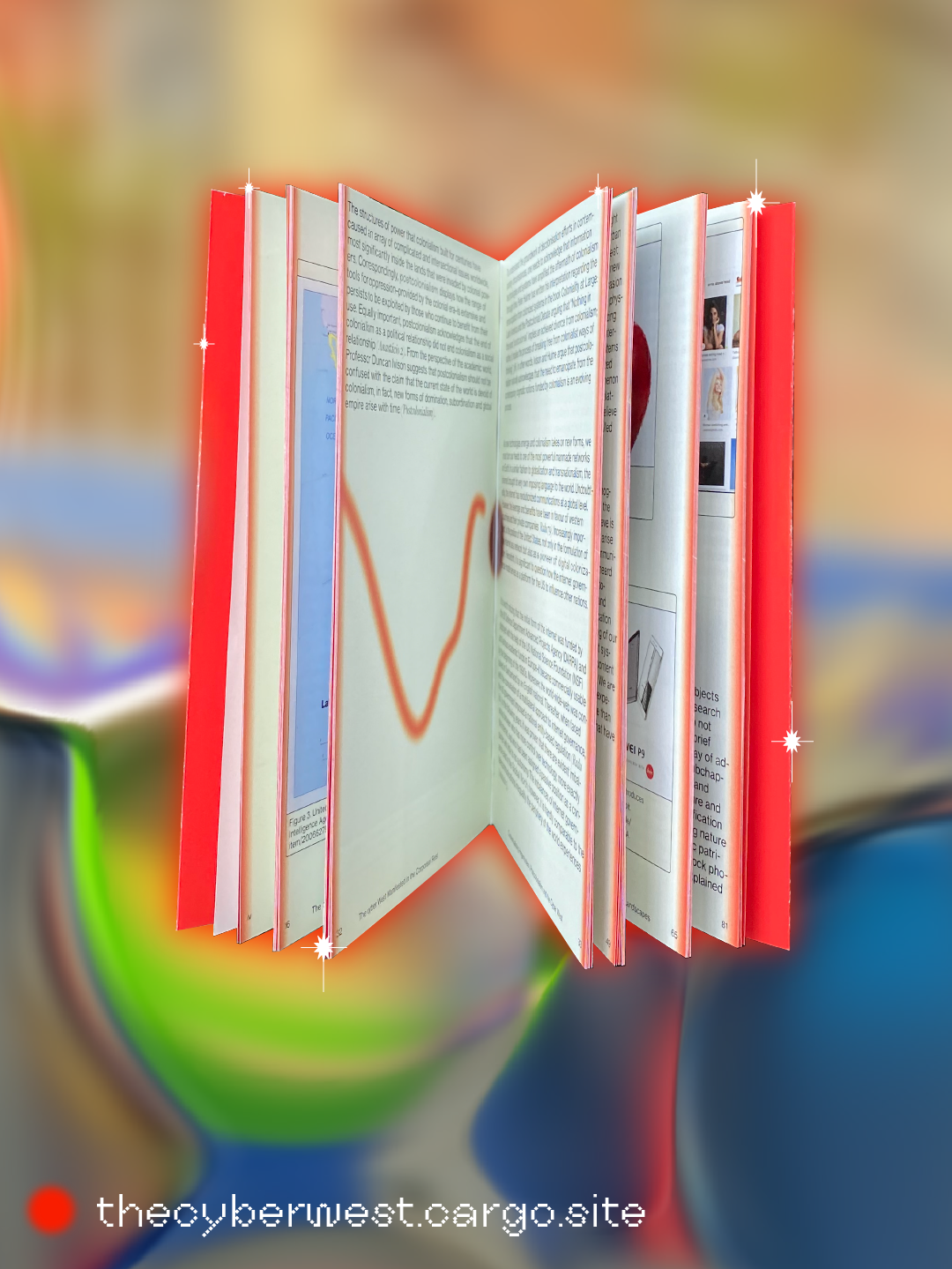
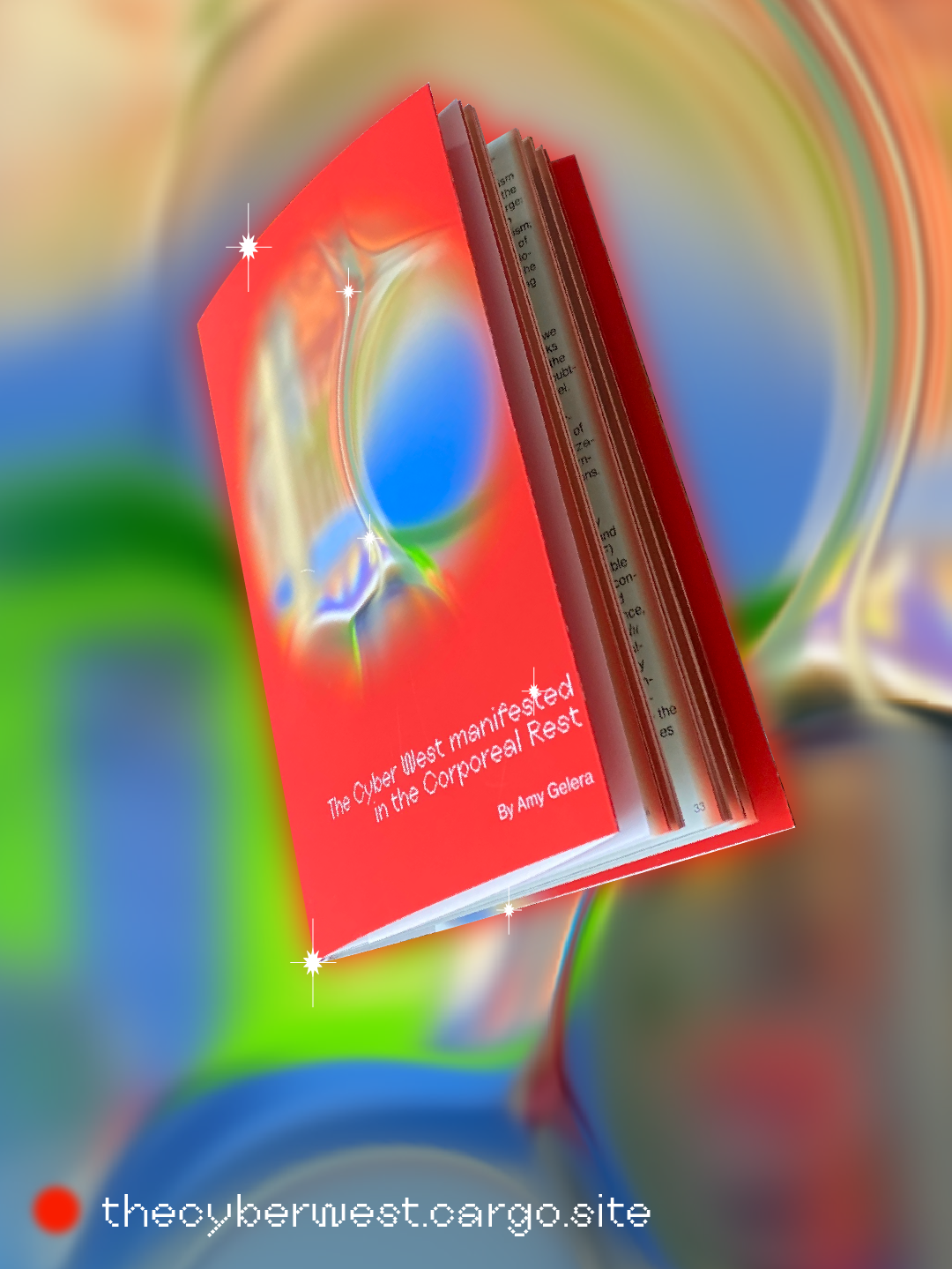

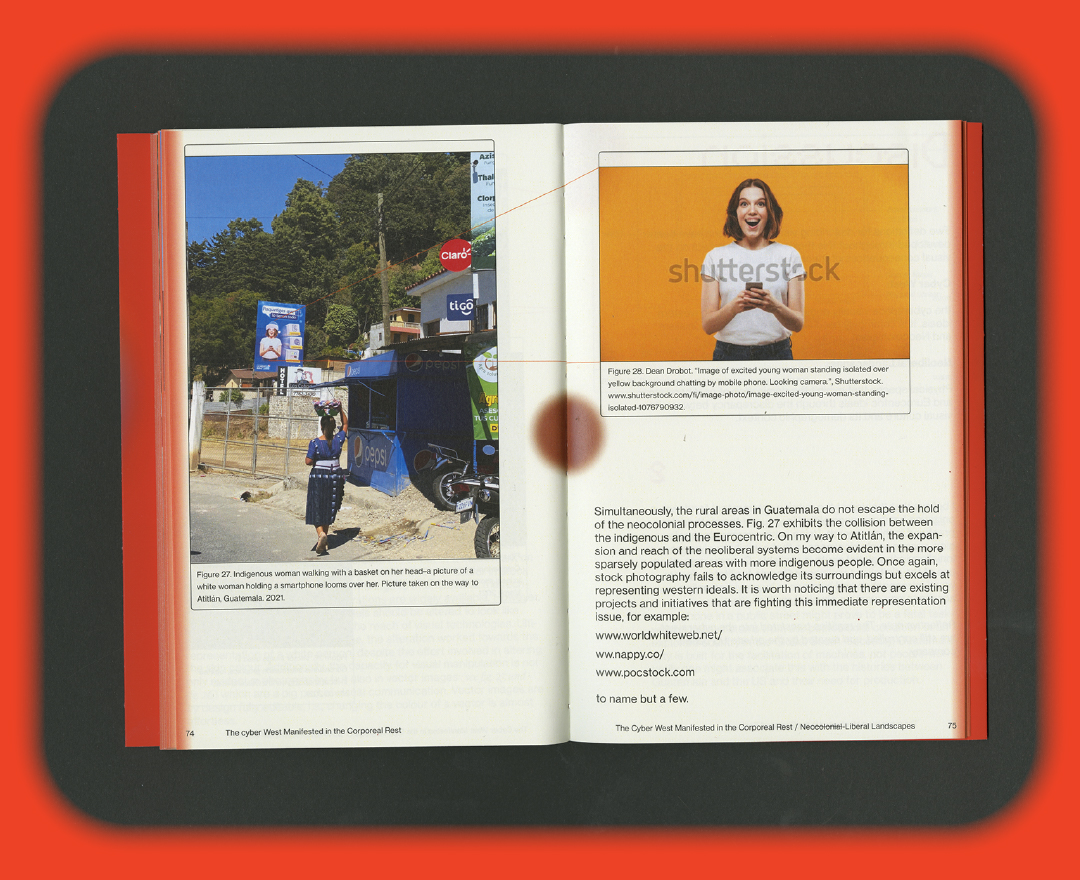
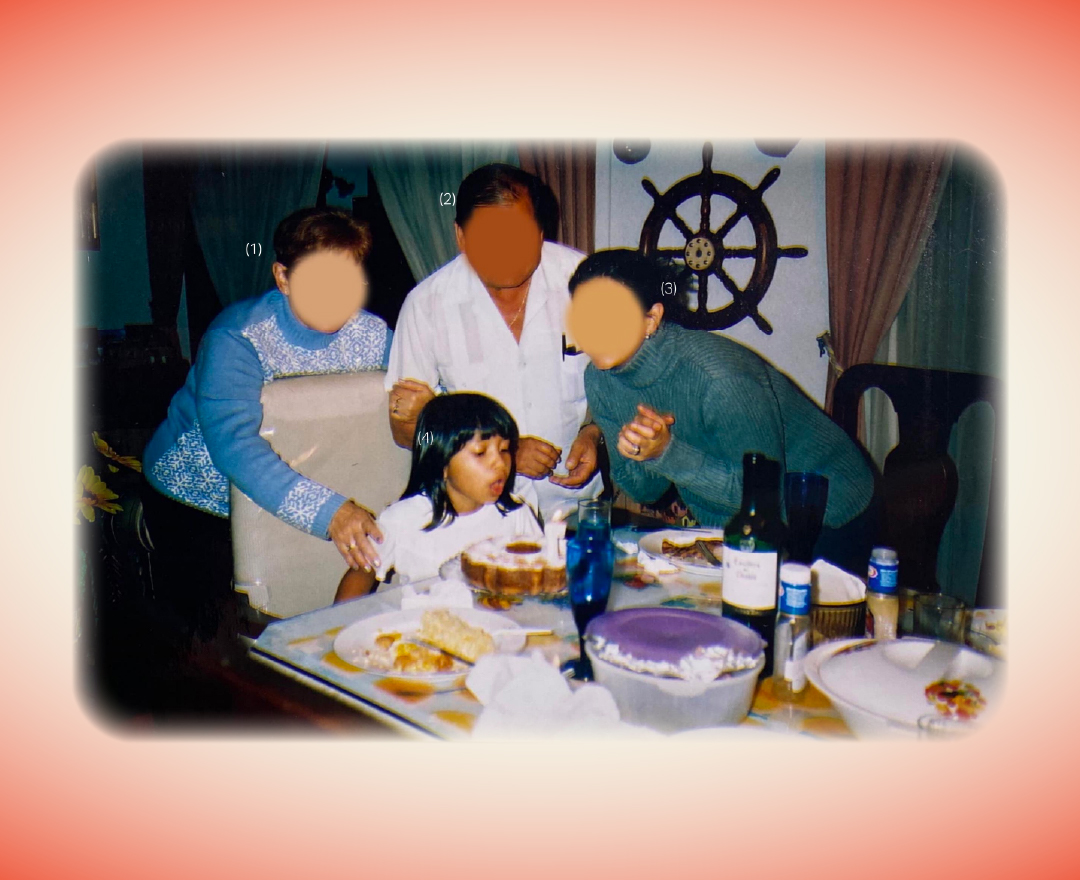
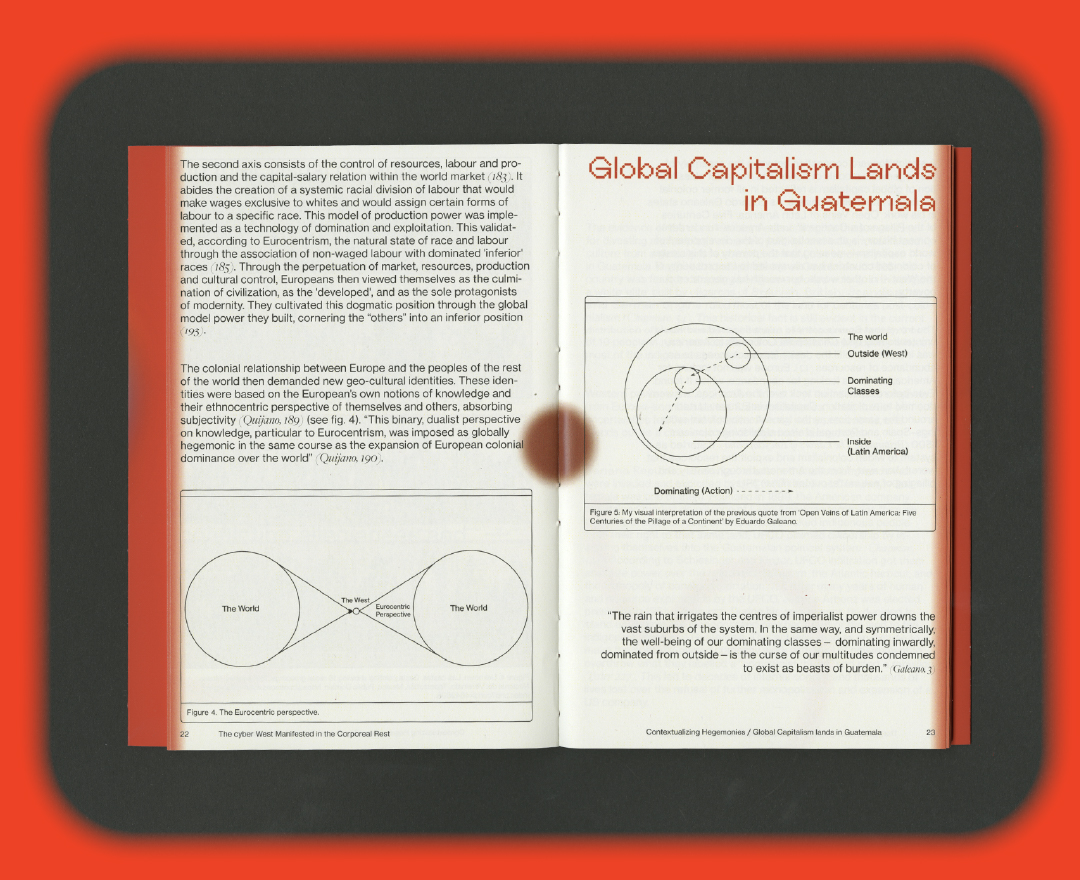
The Cyber West manifested in the Corporeal Rest
Master of Arts ThesisAalto University School of Art, Design and Architecture
Spring 2022
Project Page
In brief, The Cyber West manifested in the Corporeal Rest is an MA thesis that interlaces theoretical, critical, social, and visual arguments. It seeks to create a protest against the colonization of visual culture by acknowledging the oppressive consequences created by the fluctuation between digital stock photography and its manifestation in the tangible world outside of ‘the West’.
How is digital stock photography contributing to the colonization of visual communication in urban Guatemalan spaces? Currently, the dogmatic relationship between western ideals and their visual omnipresence in cities, has created problematic and oppressive visual phenomena. Among these is the widespread use of digital stock photography in visual communication design. The invasion of western images fluctuating between digital stock photography and their manifestation in the corporeal Global South impulse the lack of representation of people of colour and impose whiteness as the visual standard.
The massive use of stock photography inside Guatemalan urban spaces contributes to Eurocentric ideals through neoliberal systems–stock photography is a tool for visual neocolonialism. Furthermore, the research suggests terminology that helps describe the phenomenon in question, which can be potentially incorporated in the visual communication design jargon.
Sofía Dinello Morais
Sofía Dinello Morais (she/her) has a background in Fashion Design and Contemporary Art. With a special interest in slow processes, resource carefulness, and creative writing, her work revolves around reflective practices that explore the interplay between the material, the personal, and the cultural.
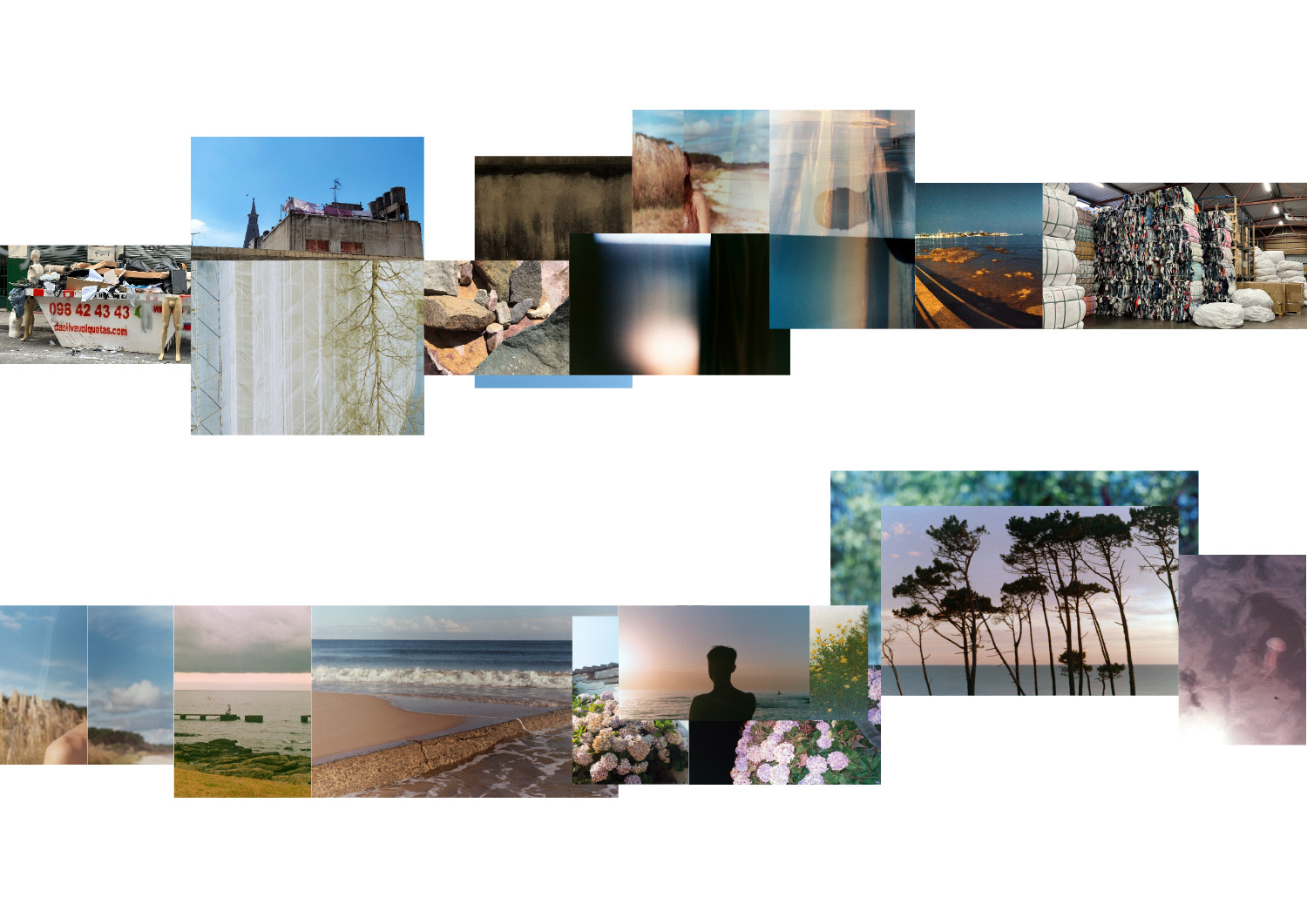
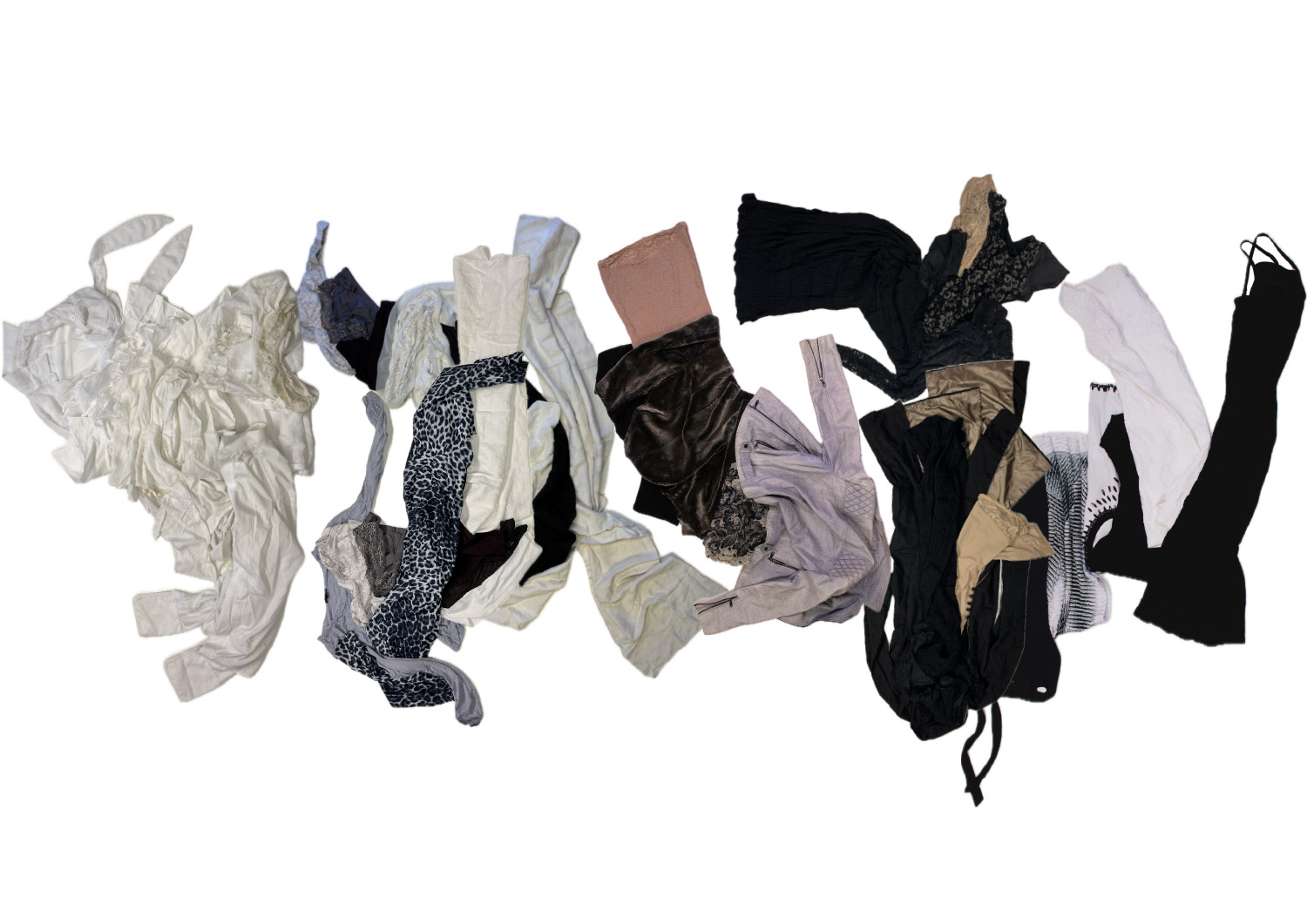
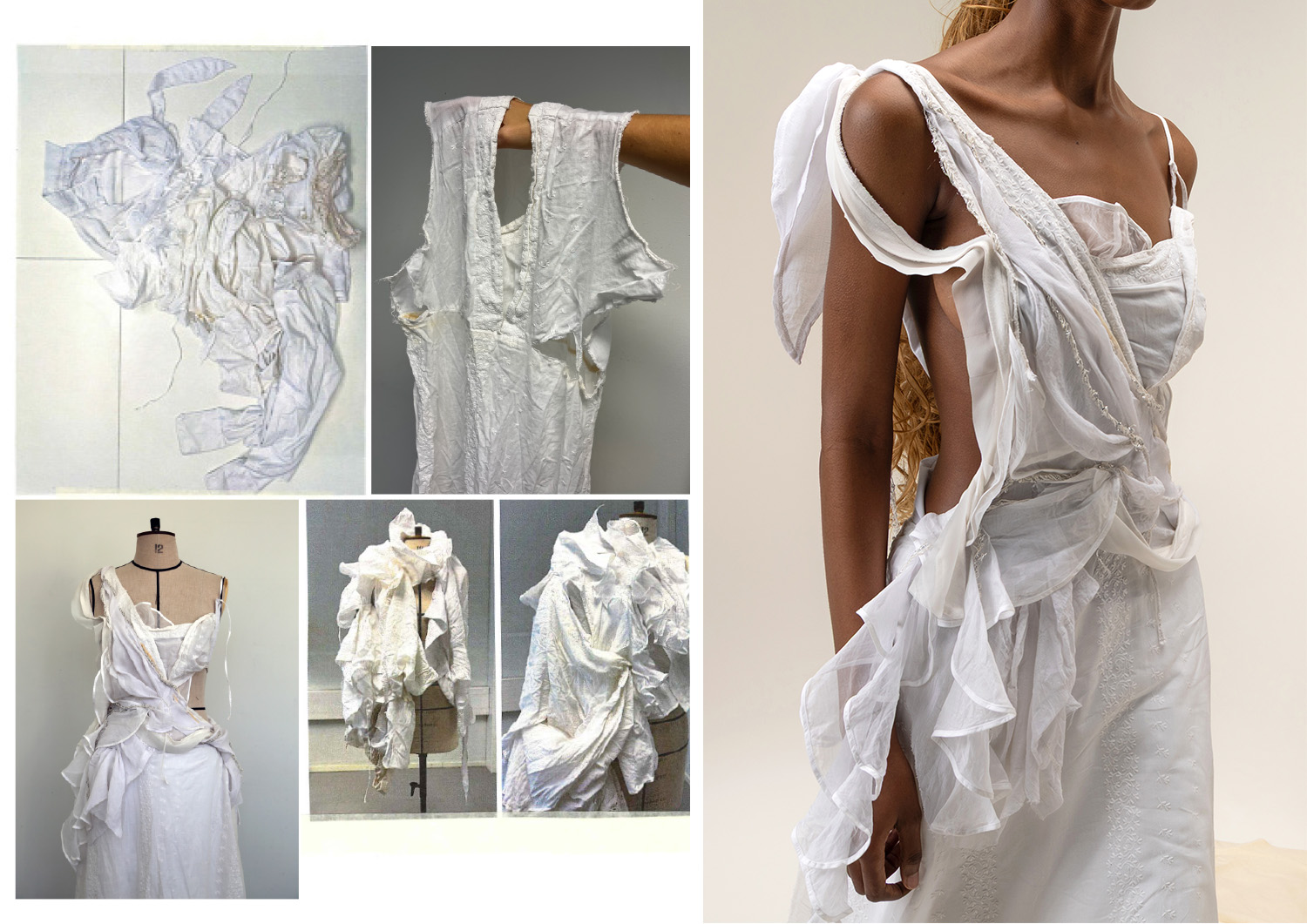
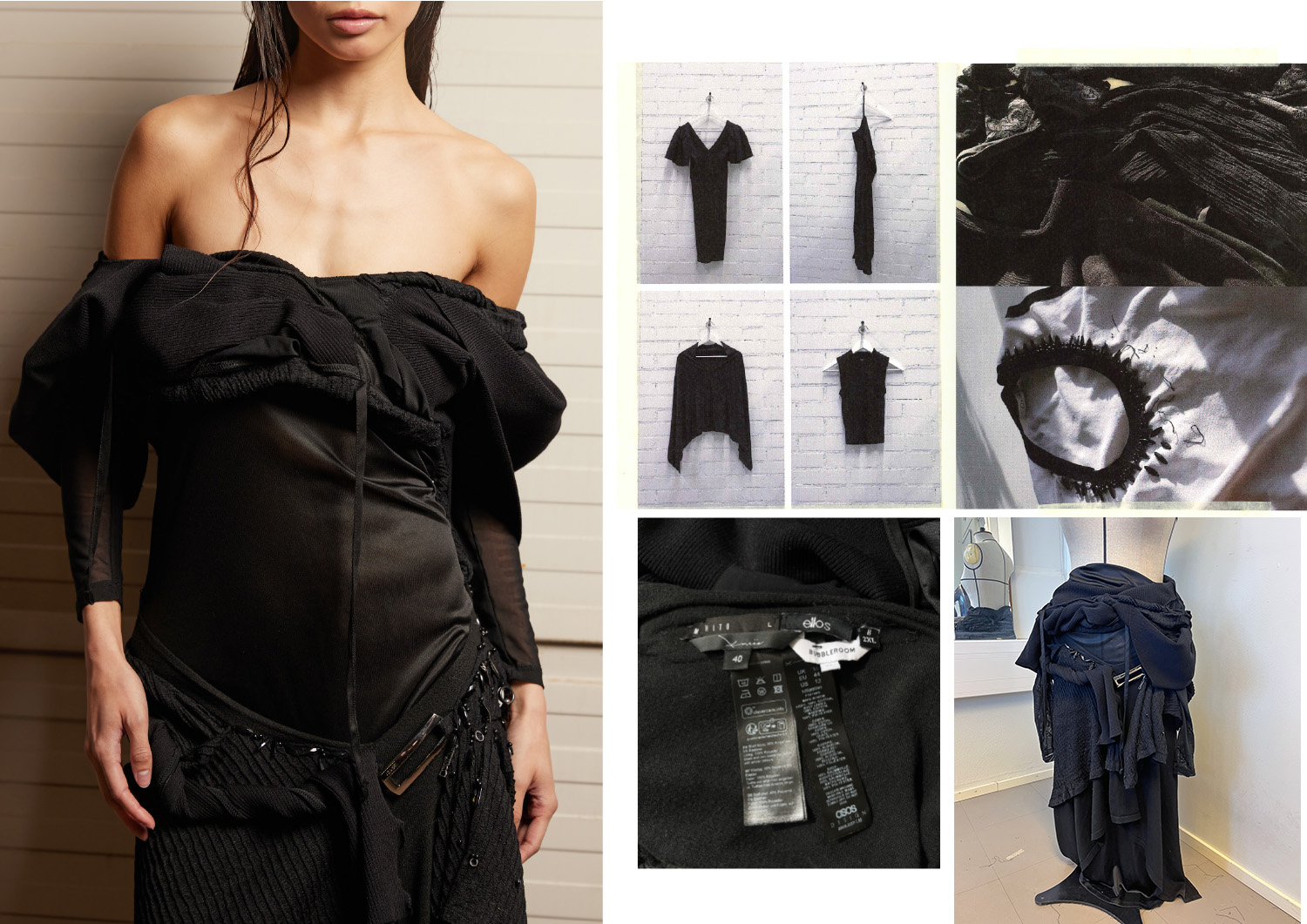
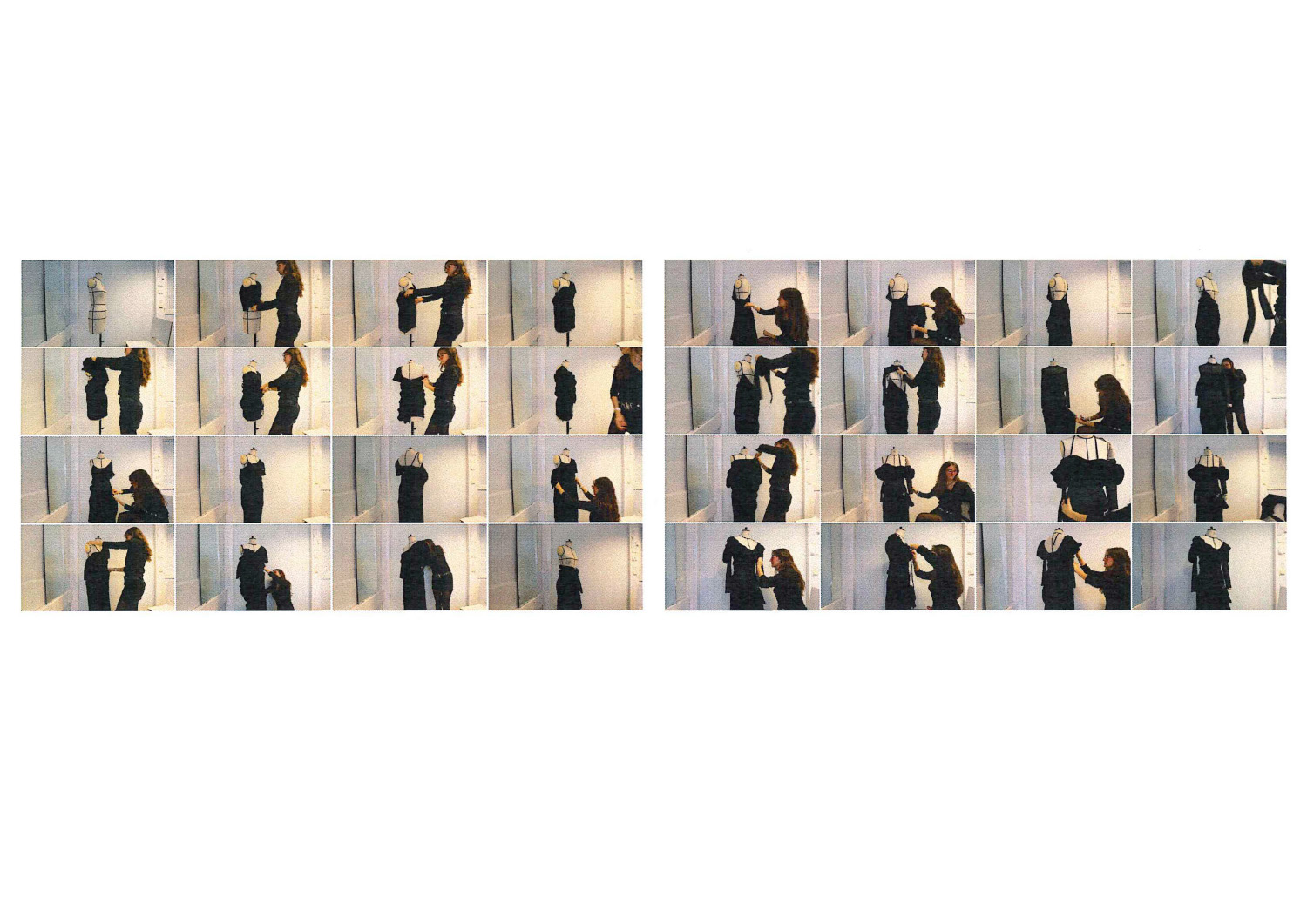
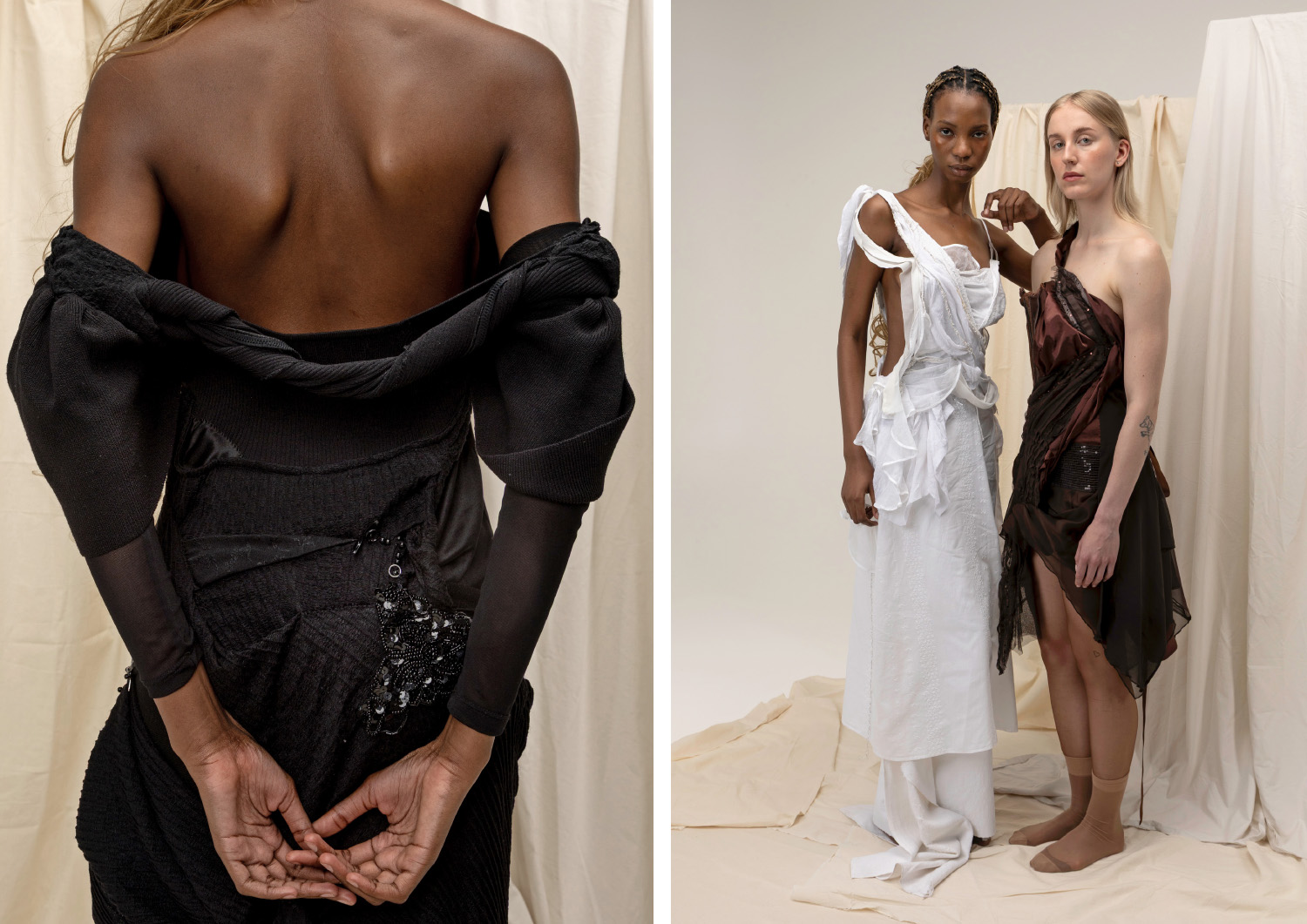
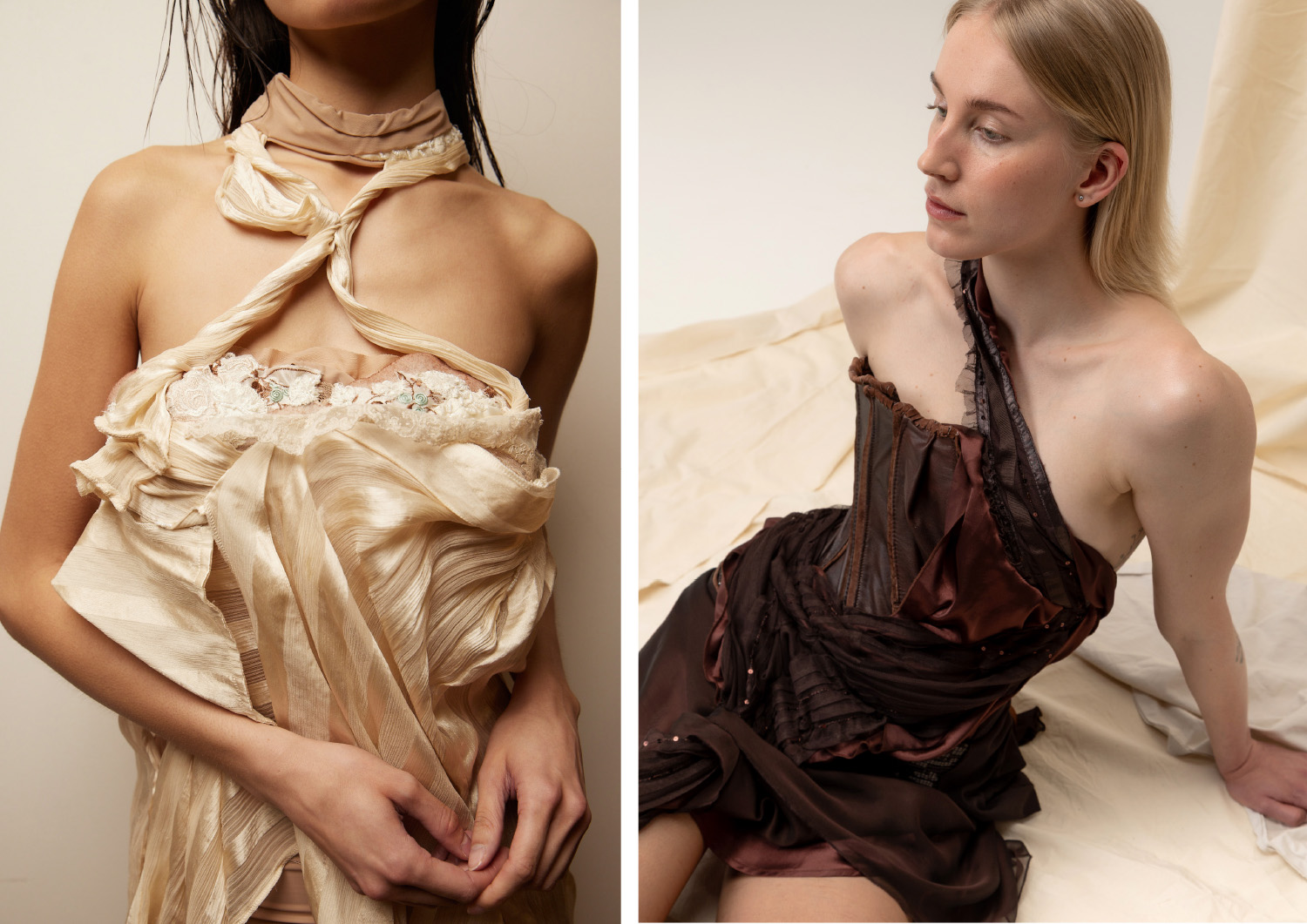
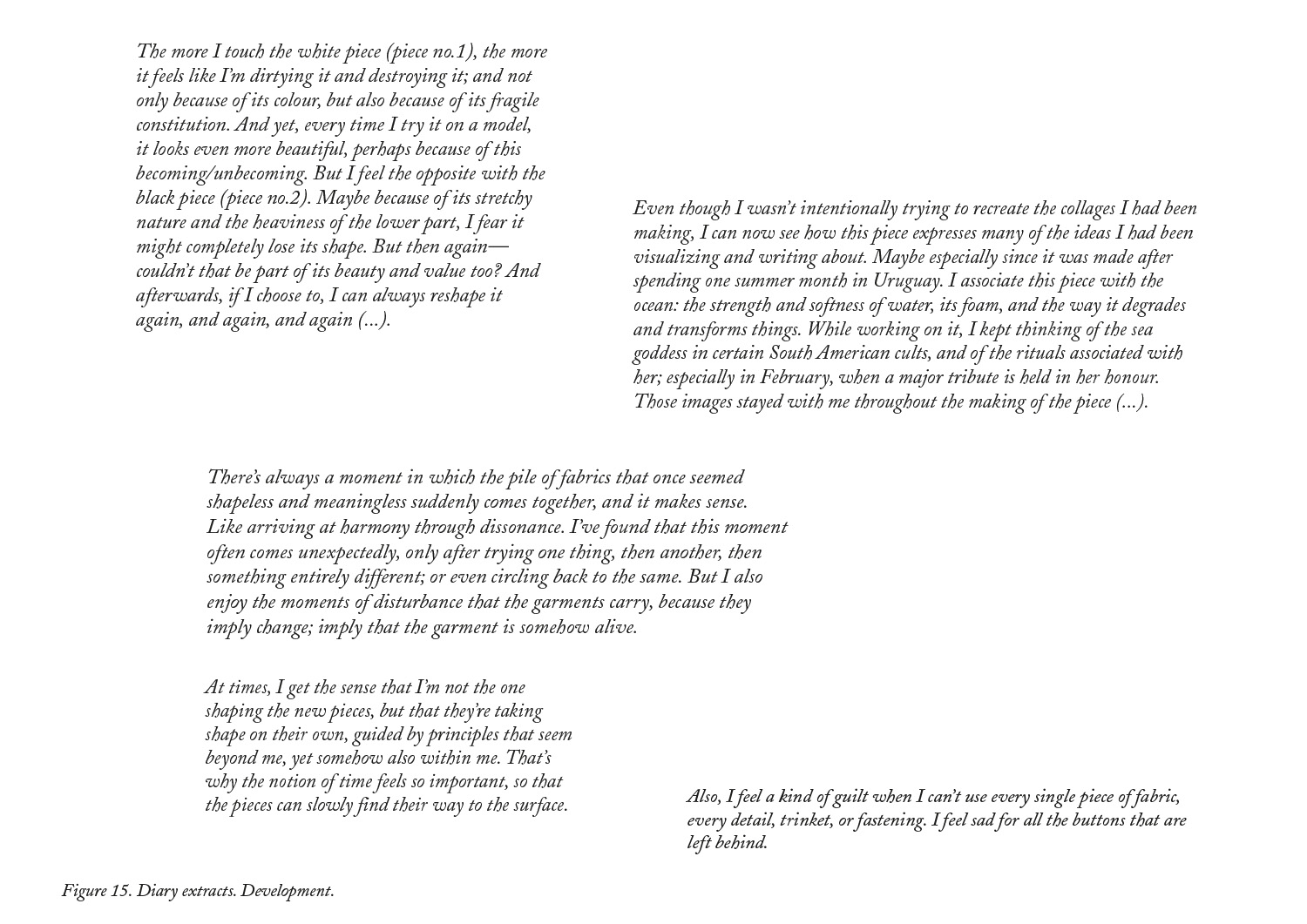
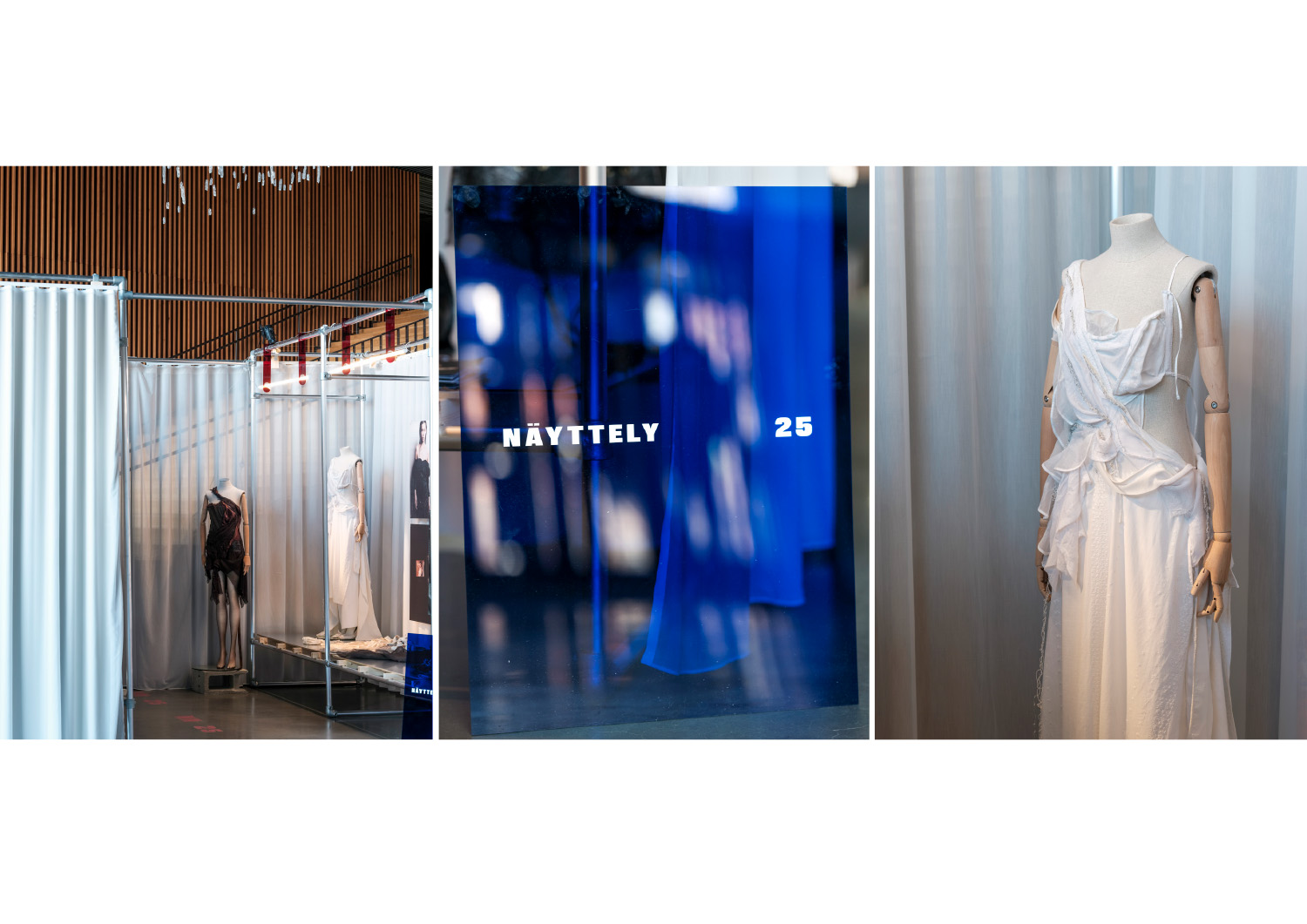
For All That is Roots, Fabrics, and Fluids
Master of Arts Thesis project, 2025Aalto University School of Art, Design and Architecture
Research supported by T-REX, Textile Recycling Excellence
Exhibited at Aalto University Fashion/Textile Näyttely25 exhibition
Much of my background as a clothing designer is related to practices of resistance, both conceptually and materially. My approach is deeply shaped by the material and symbolic tensions between the Global North and South. Clothing design, with its imperatives of standardization and incessant push for both excessive material output and complete dematerialization, has had a lasting (cultural, economic, environmental) impact in the Global South. For me, this means that any garment, resource, or landscape is not just background, but an active and affecting fragment.
My graduation project focused on developing an exploratory practice connected to the poetics of the already-existing, embracing what has been deemed not valuable. This manifested into a re-design exploration of discarded second-hand clothing through an experimental collaging approach, related to associative material thinking. The work took shape through direct engagement with the materials; by adding and removing, stretching, twisting, folding, hand-sewing—while paying special attention to the feelings, impulses, and the instinctive gestures that arose along the way. Journaling and photography served as tools to document and reflect on this evolving dialogue.
The project became not only an exploration of how garments can be transformed through embodied processes, but also a personal contemplation of own concerns and intimacies: landscape erosion and displacement; images of water; a desire for softness and affection; an admiration for the traces of handwork; a revaluation of what emerges as opposed to what is new. It acted as a meditation on what endures, what’s precious, and what’s given value and time, reflecting critically and poetically on how engaging with what is at hands can offer modes of resistance, introspection, and reparation.
Credits: Photography: Sofia Kulianu, Kristian Presnal. Model: Viivi Nguyen. Make-up & hair: Amy Gelera. Aalto University Näyttely25. / Photography: Aino Ahola. Models: Zainab Arowolo, Ella Lund. Make-up & hair: Kaisa Laitala. Assistant: Thekla Weißkopf. / Exhibition photography: Francisco Gonzalez Camacho. Creative Direction Näyttely25: Maarit Salolainen, Julia Valle. / Supported by T-REX, Textile Recycling Excellence. Second-hand clothing donated by UFF.
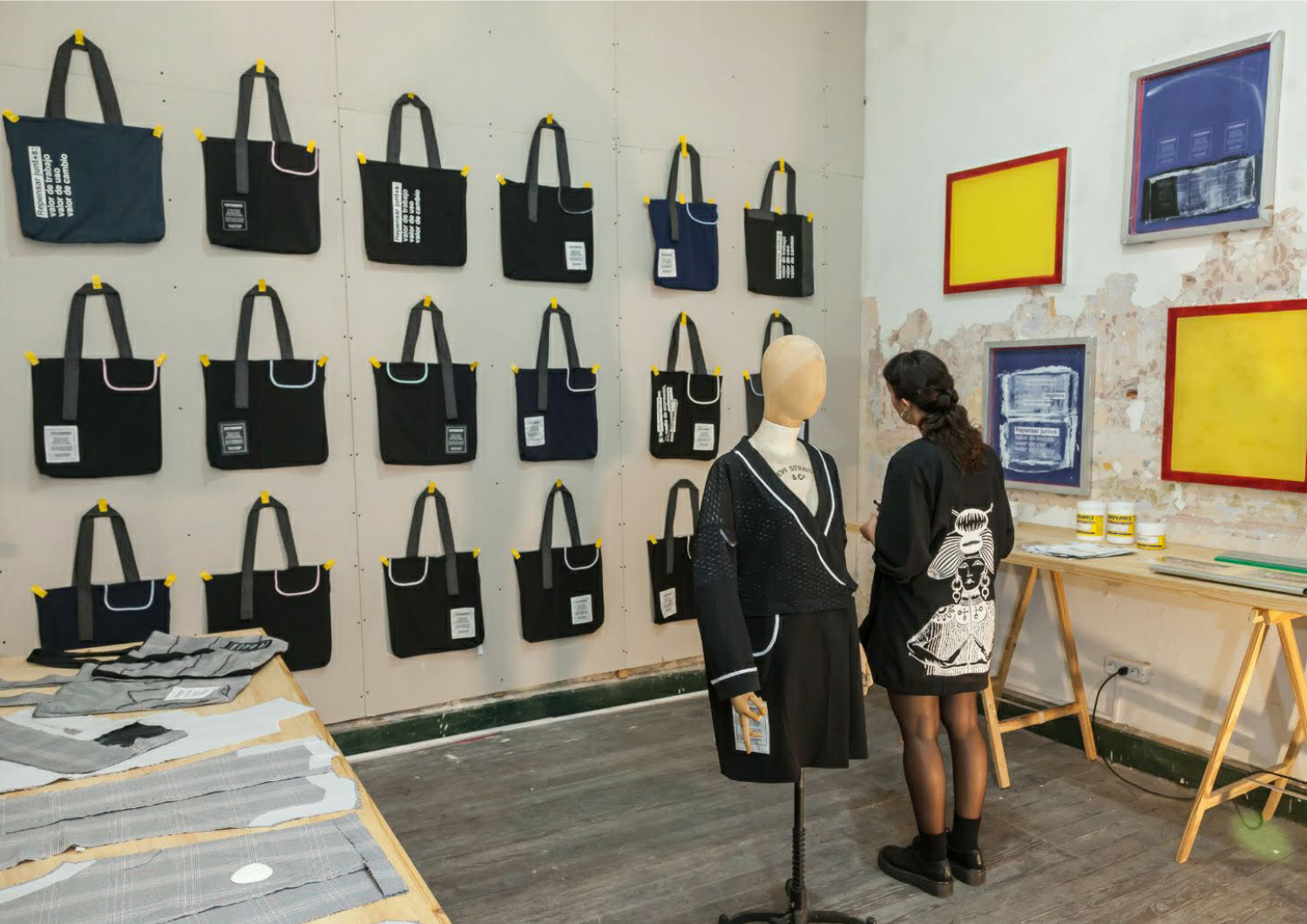
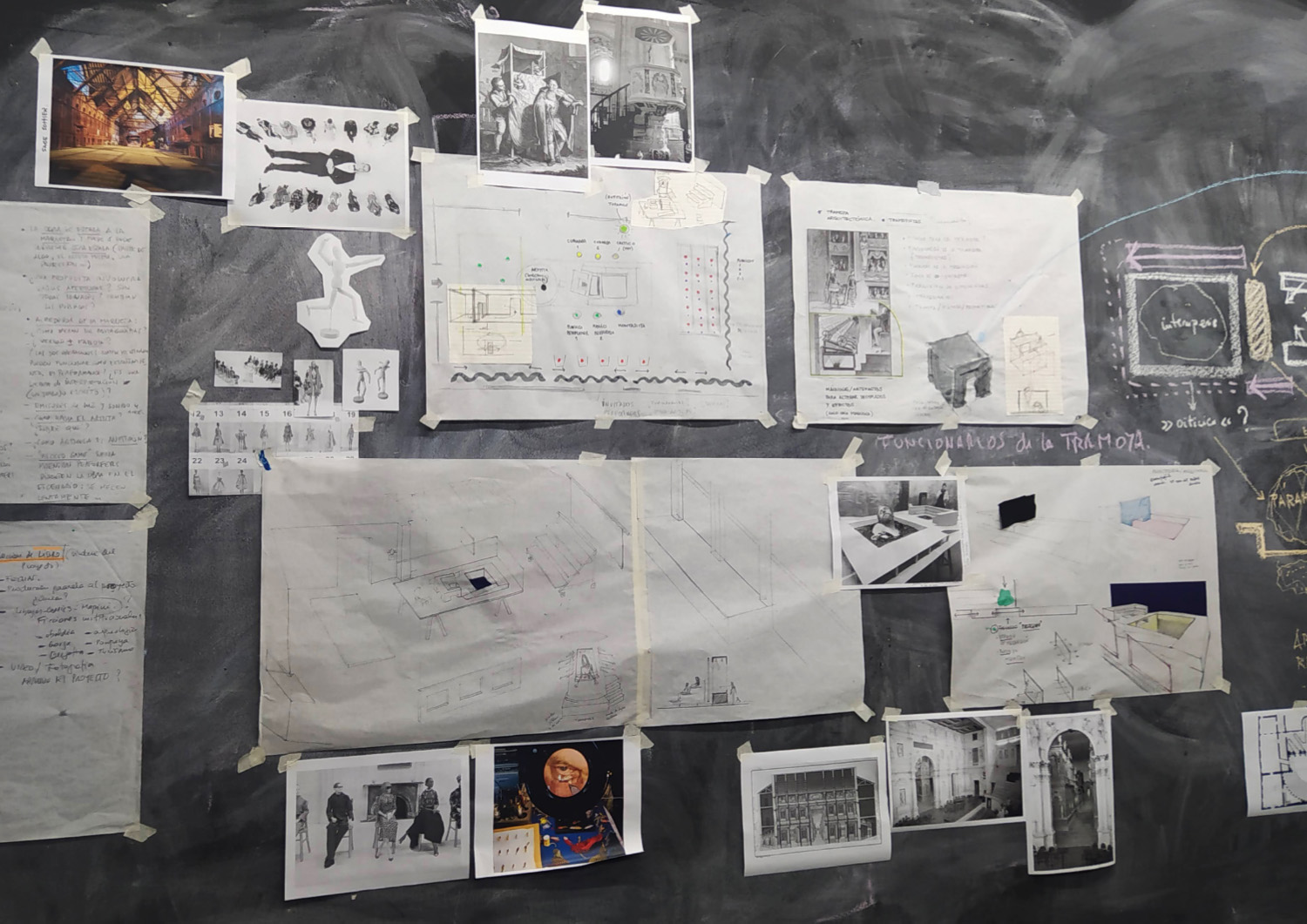
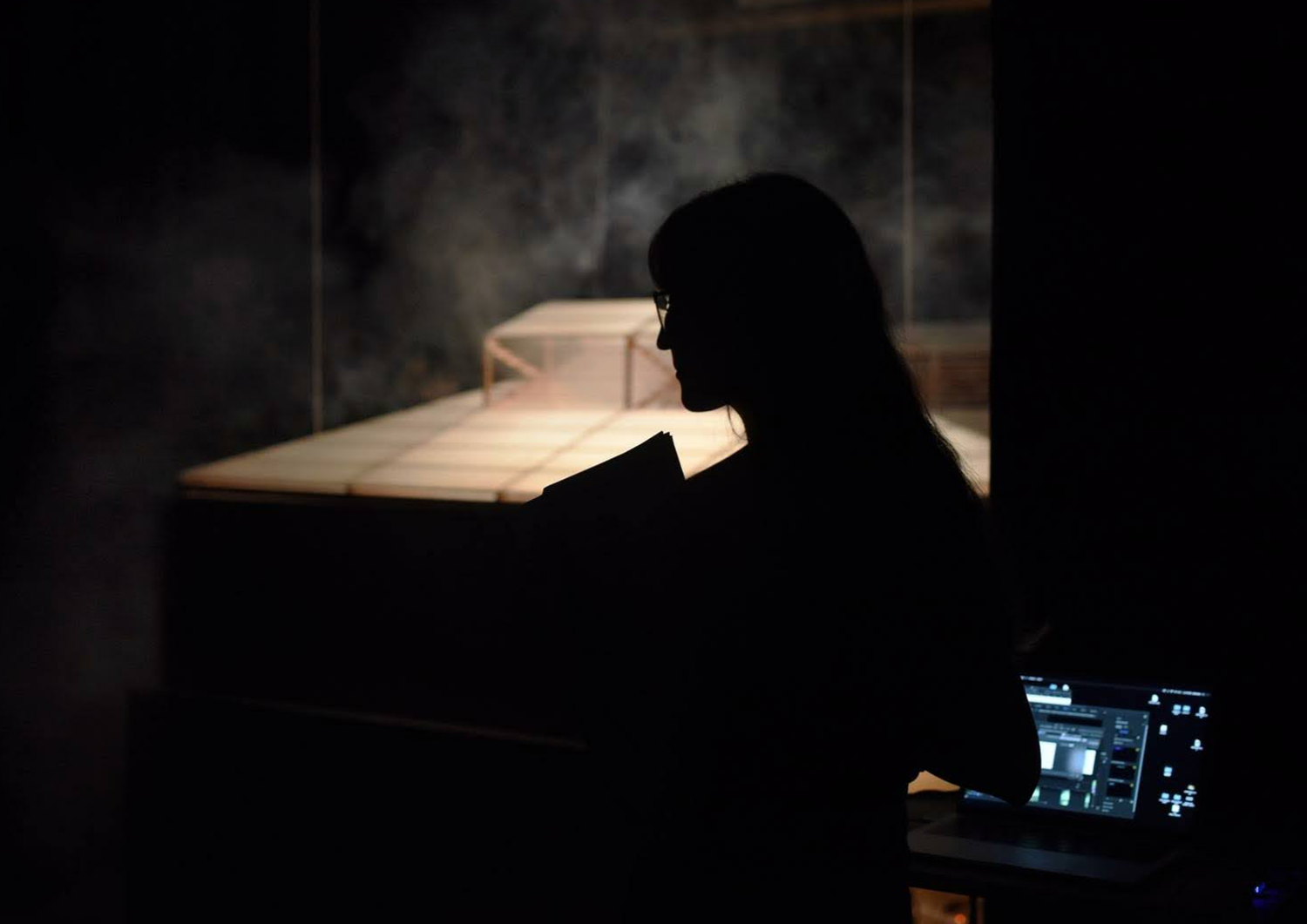

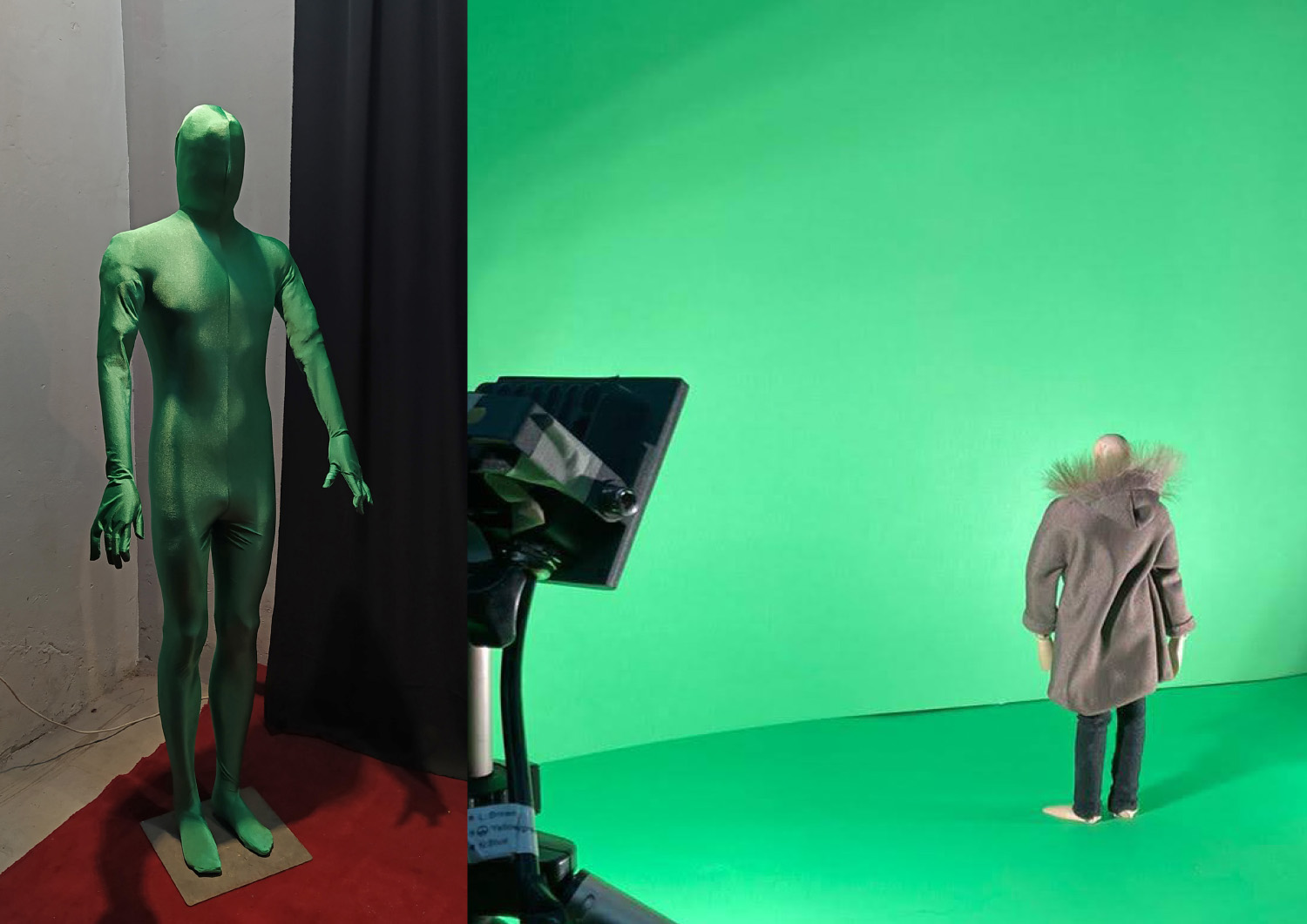
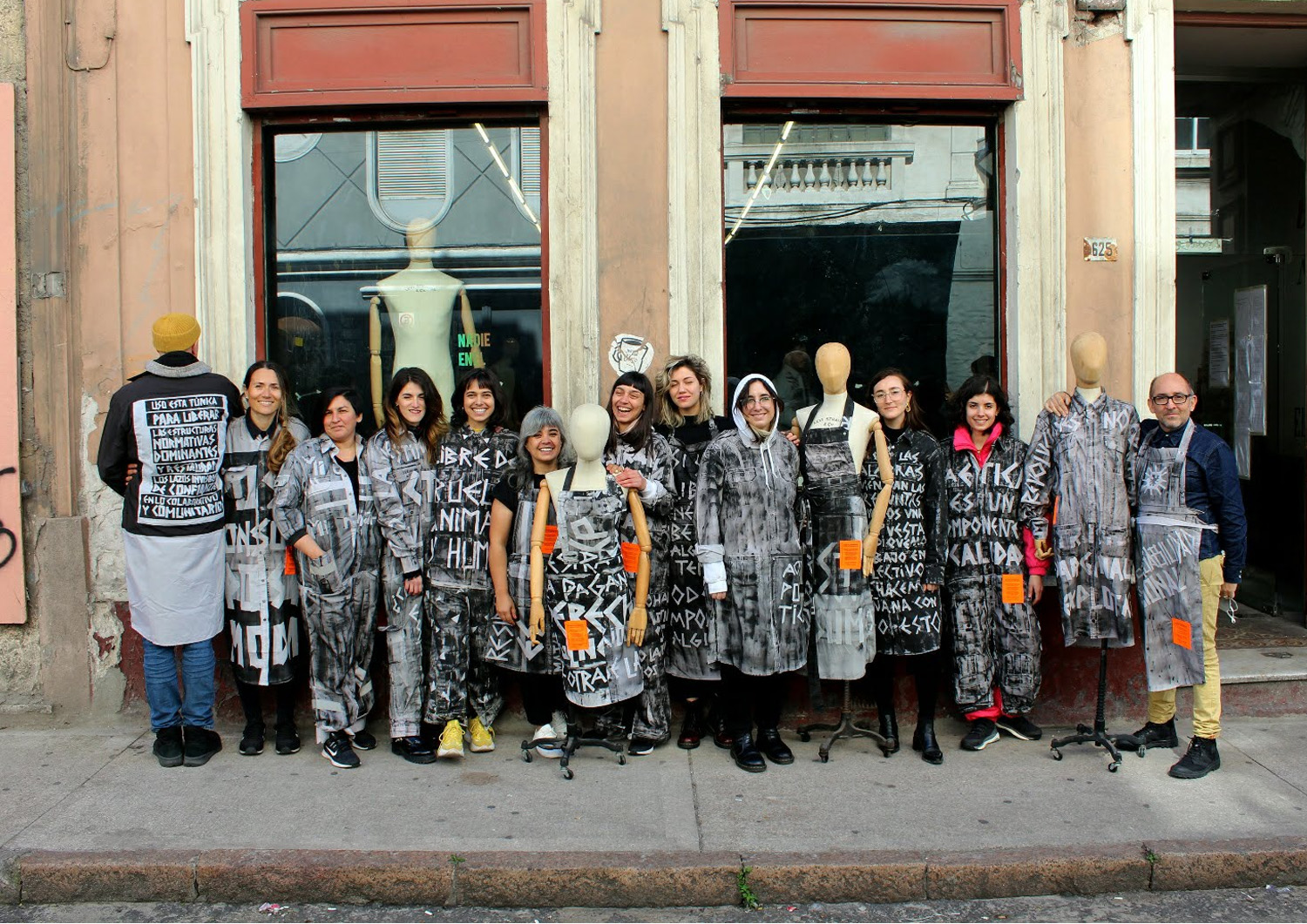
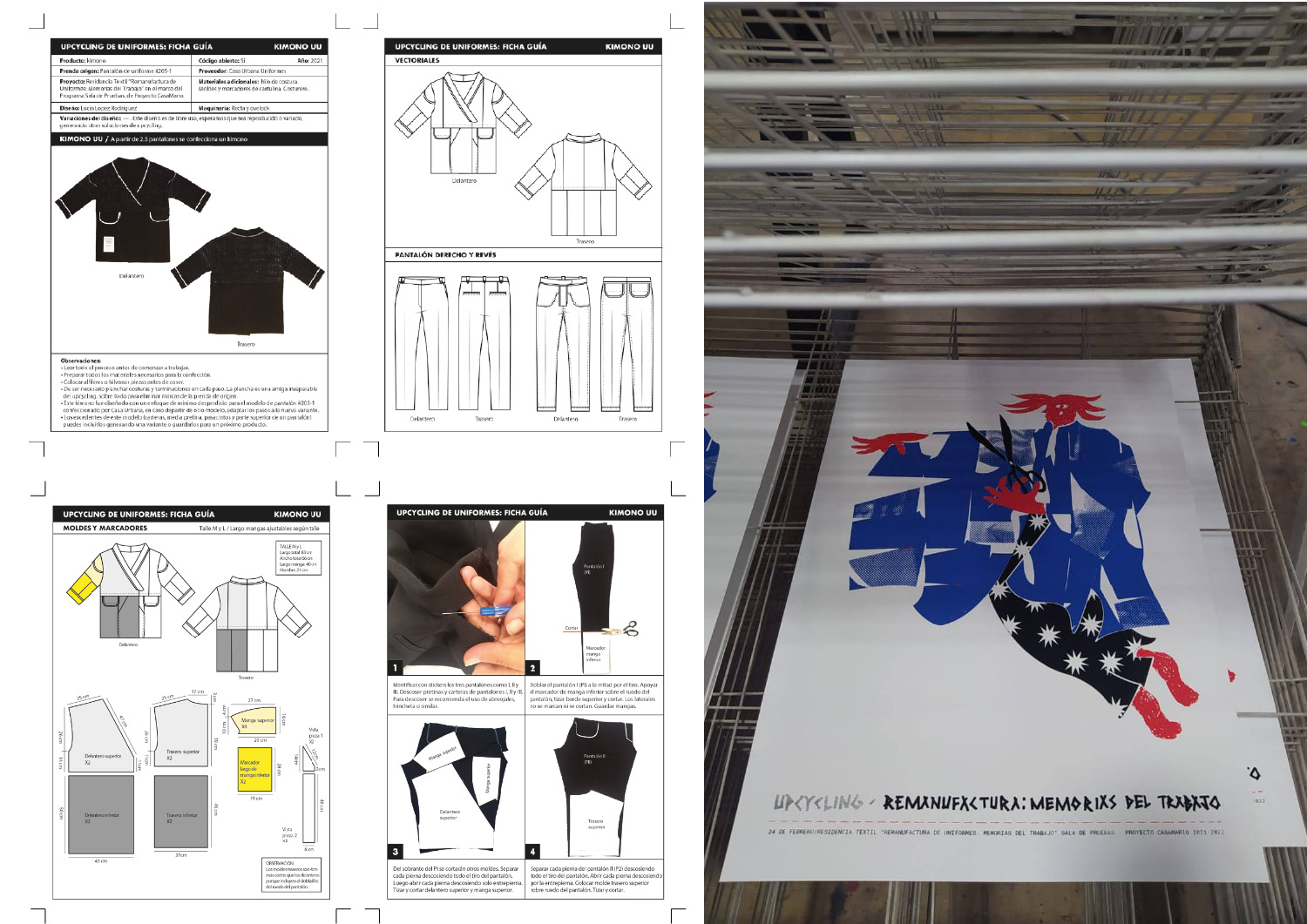
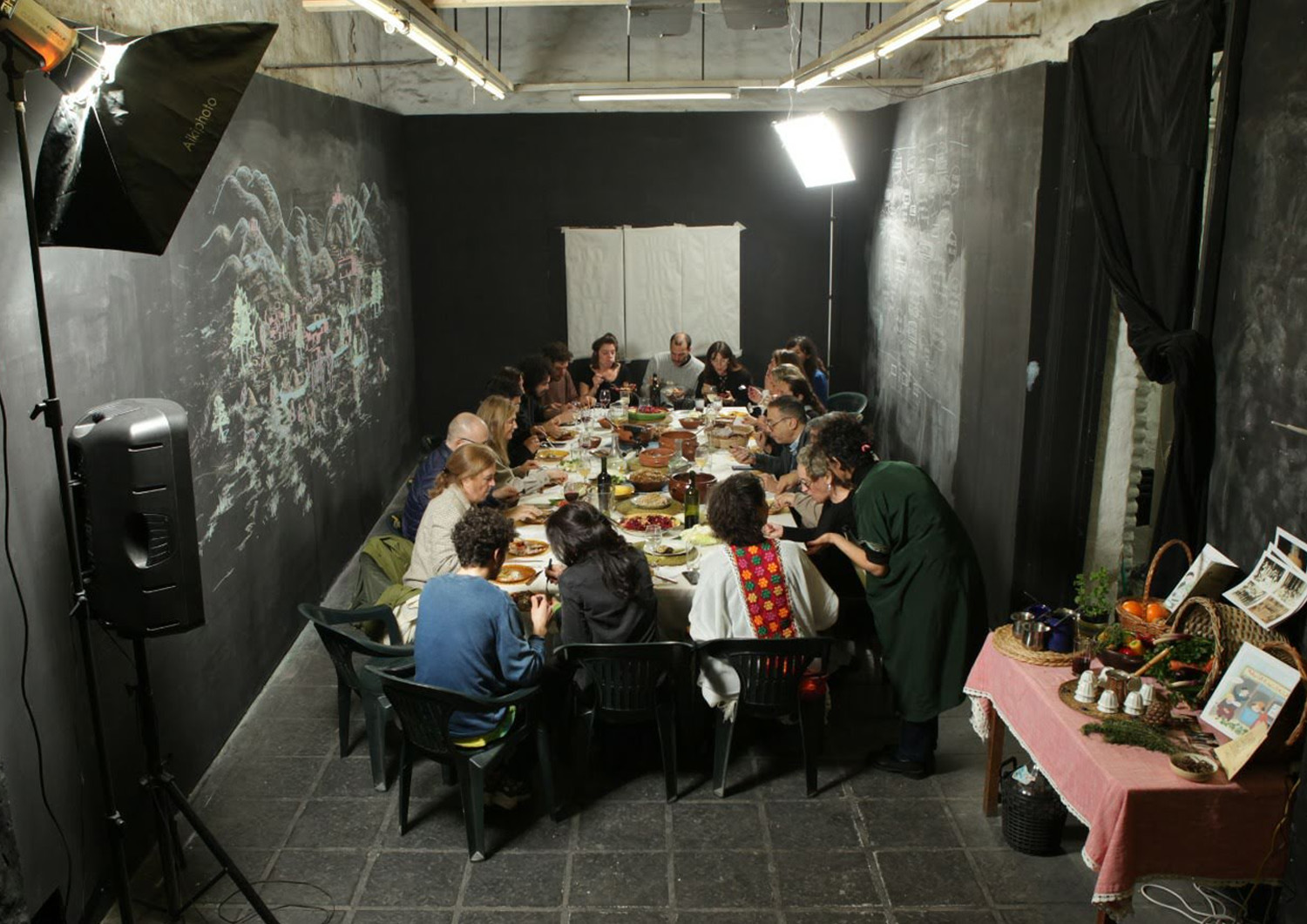

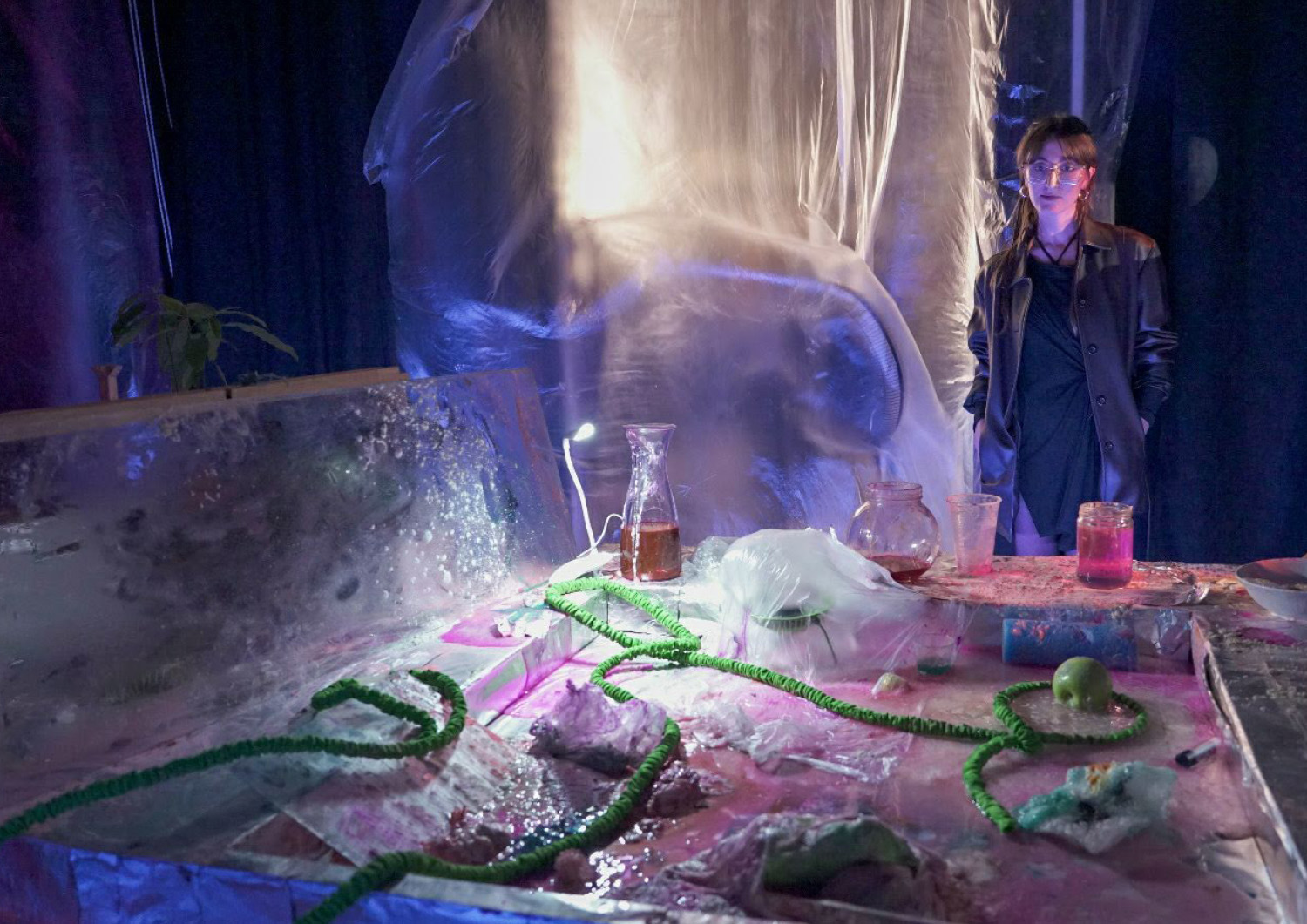
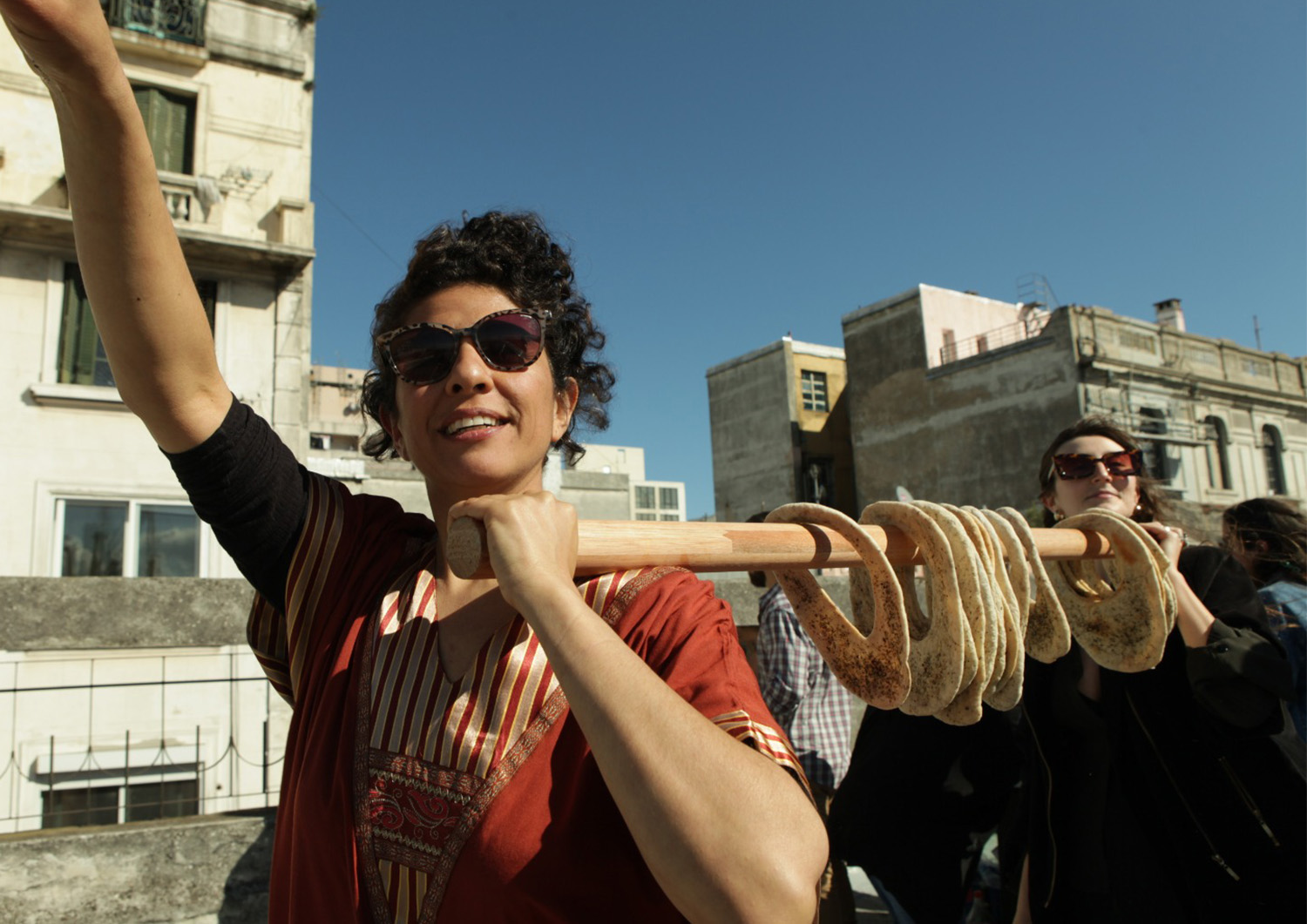
Proyecto CasaMario
Collective, 2019-2023Curatorial team, producer, designer, writer, performer
Proyecto CasaMario is a multi and interdisciplinary autonomous project based in Montevideo, oriented towards sparking reflections around artistic-cultural practices and collective ways of doing, living, and producing.
Through the curation and development of activities such as artist residencies and public exhibitions, textile and graphic workshops, performative streamed activations, and a series of editorial publications, the collective collaborated with multiple local and international artists, and addressed topics related to the notion of home (casa); its connection to architecture, memory, archive and documentation; the public and the private; art and its relationship with the community and the neighborhood it inhabits; gentrification; food as a cultural and artistic medium; the decay of the local textile industry; the environmental crisis; virtuality and artificial intelligence, among others.
My role in the collective was multiple, spanning from curation, exhibition production, performance and costume design for projects like Testing Room 1.10; textile workshop assitance and development of DIY guide sheets for Remanufacturing of uniforms: memories of work, by Lucía López Rodríguez; editorial participation in books like Symposium and Mezze Errante, publications about practices and rituals around food and the table as a meeting space; as well as organization, production, and communication tasks, and supporting resident artists in their practice.
Active members and participants 2019-2023: Sebastián Alonso, Manuel Gallardo, Niklaus Strobel, Ana Gotta, Sofía Dinello Morais, Lucía López R., Rita Fischer, Lourdes Silva, Sandra Sifuentes, Suraia Abud, Marcos Banina, Diego Masi, Federico Lagomarsino, Paola Monzillo, Juan Goyret, Ignacio Lorenzelli, Carlos Laviña, Juan Manuel Ruétalo, Colectivo Hiedra, Pablo Conde, Luciana Damiani, Carla Macabra, Microutopías, Gabriel Peluffo Linari, Anna Larocca, Diego Pereira, Fernando Miranda.
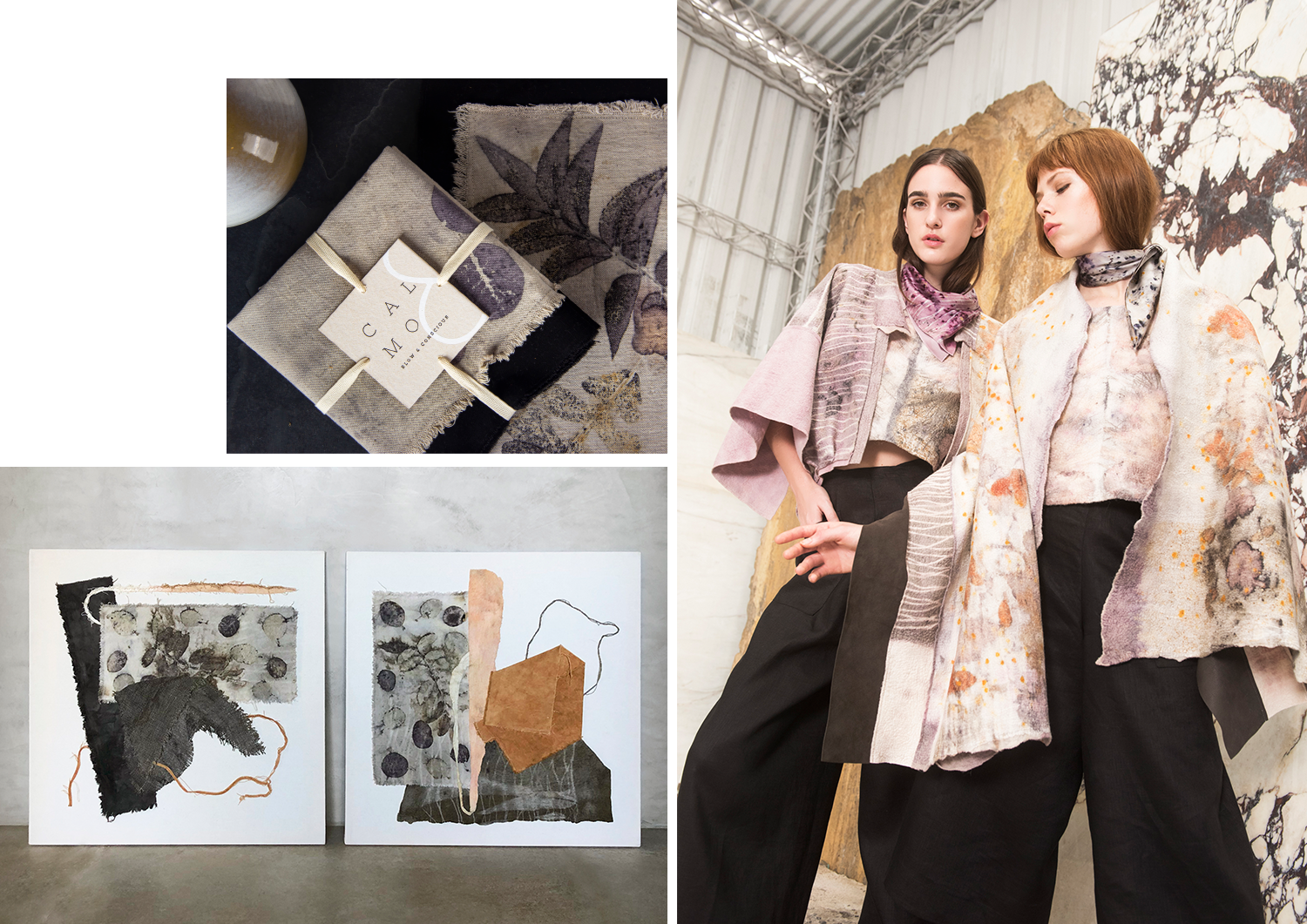
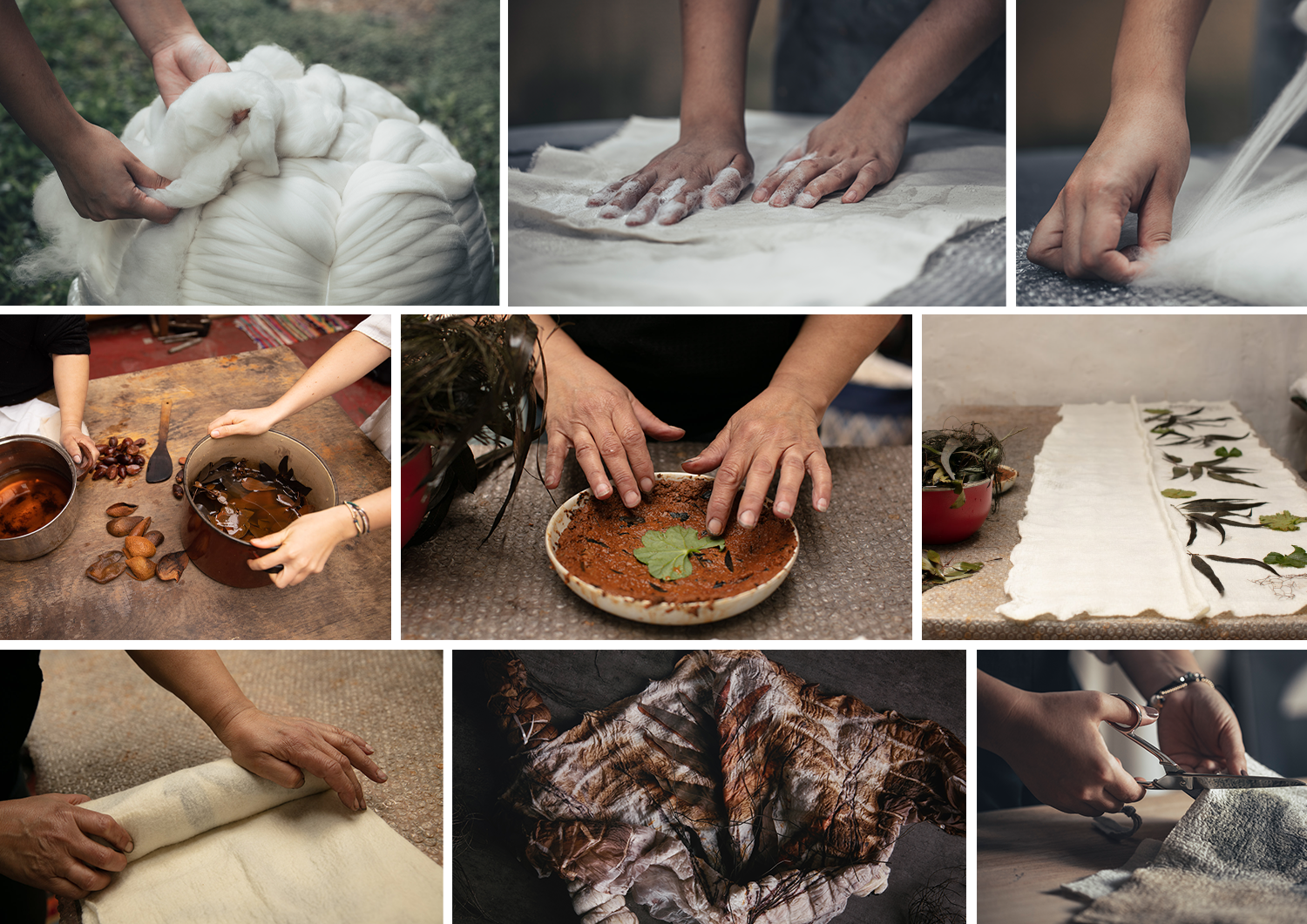
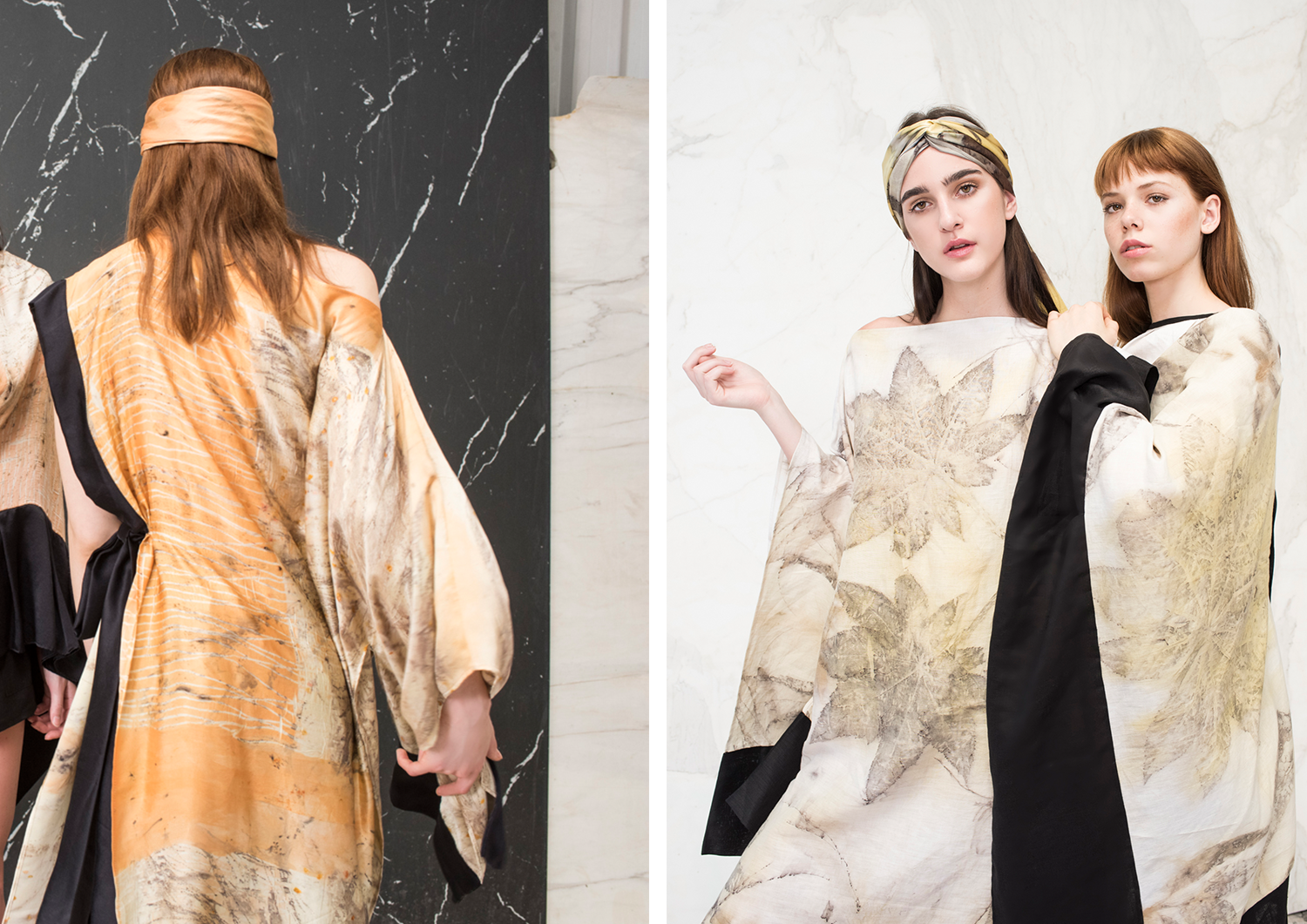
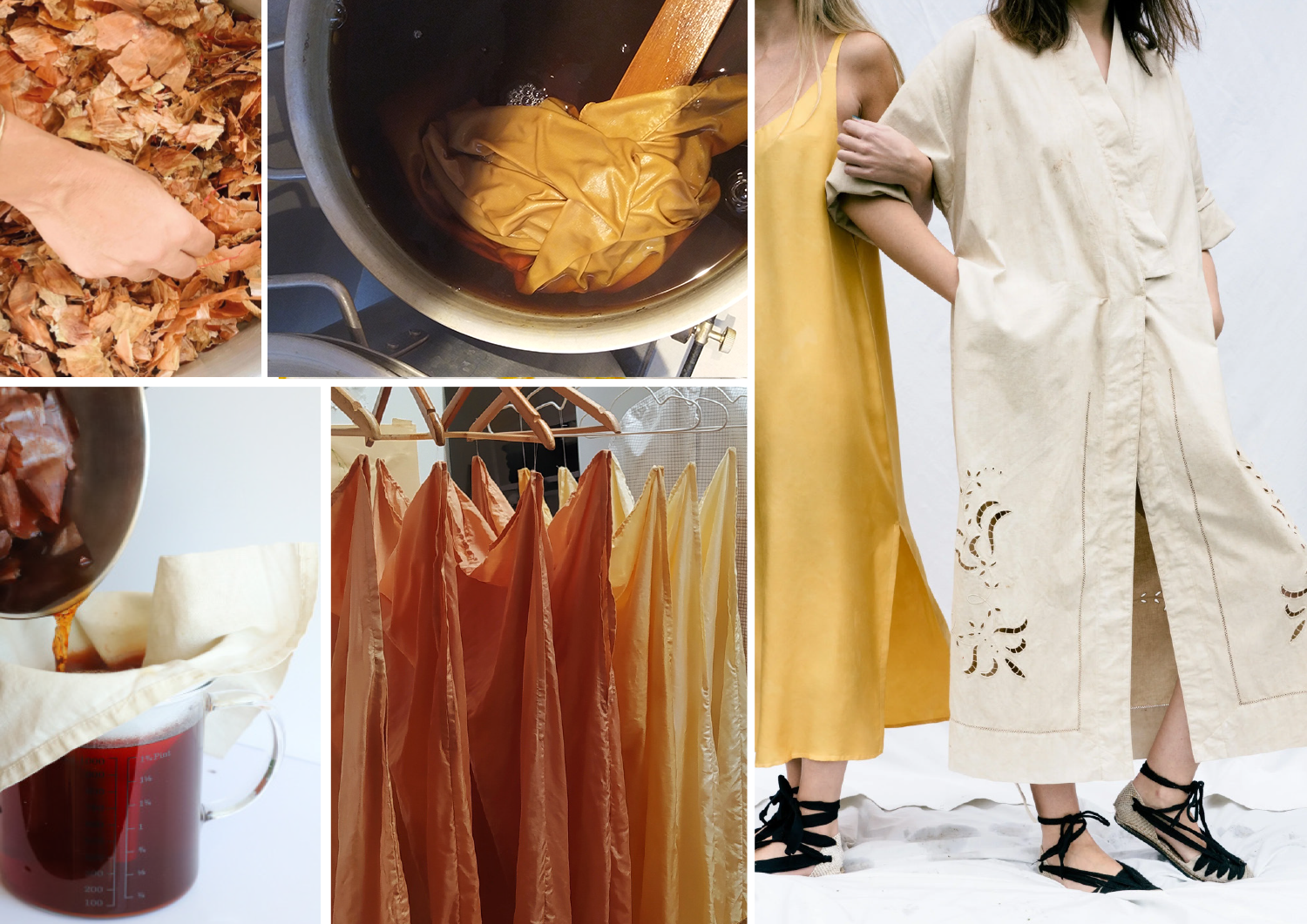
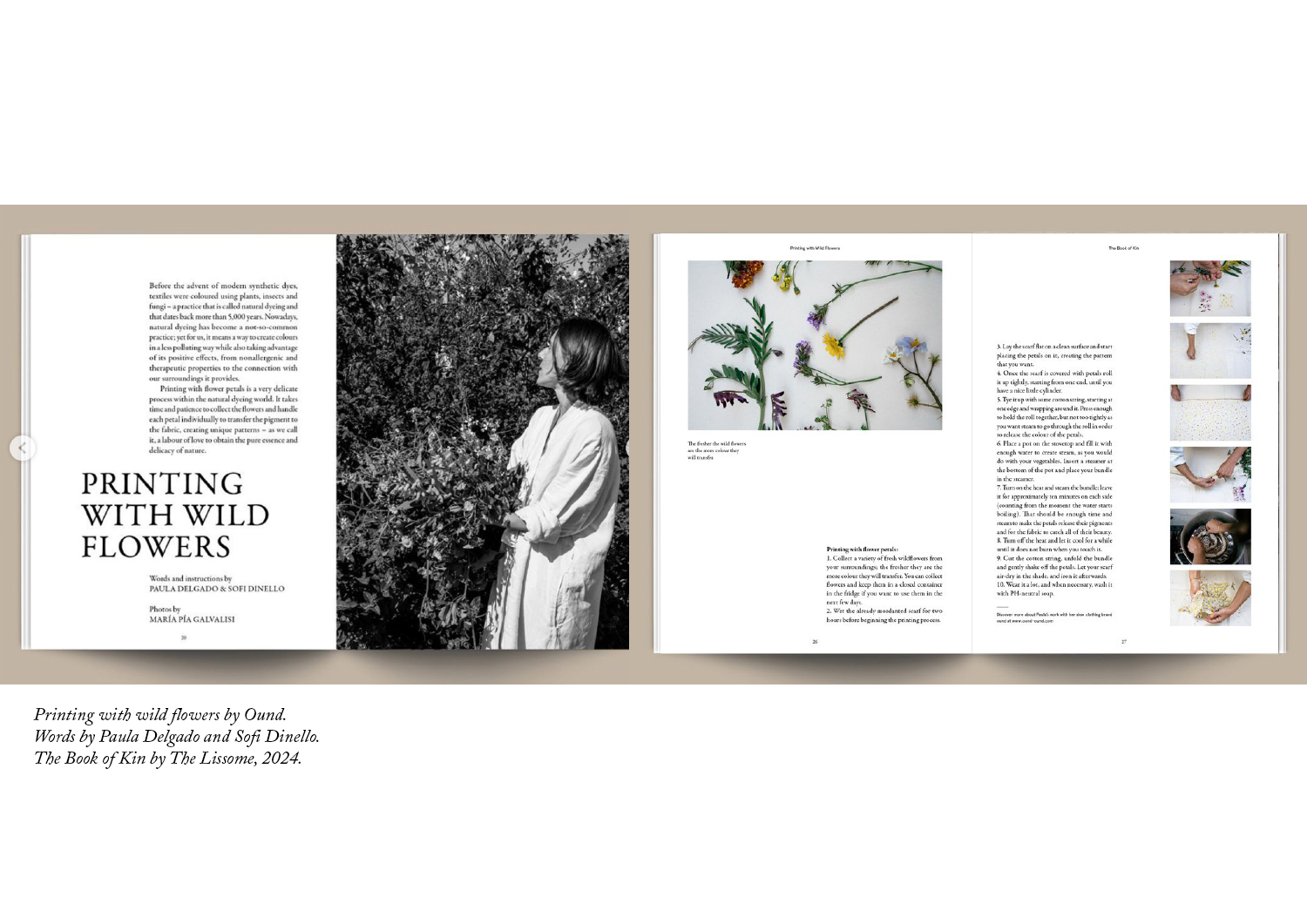
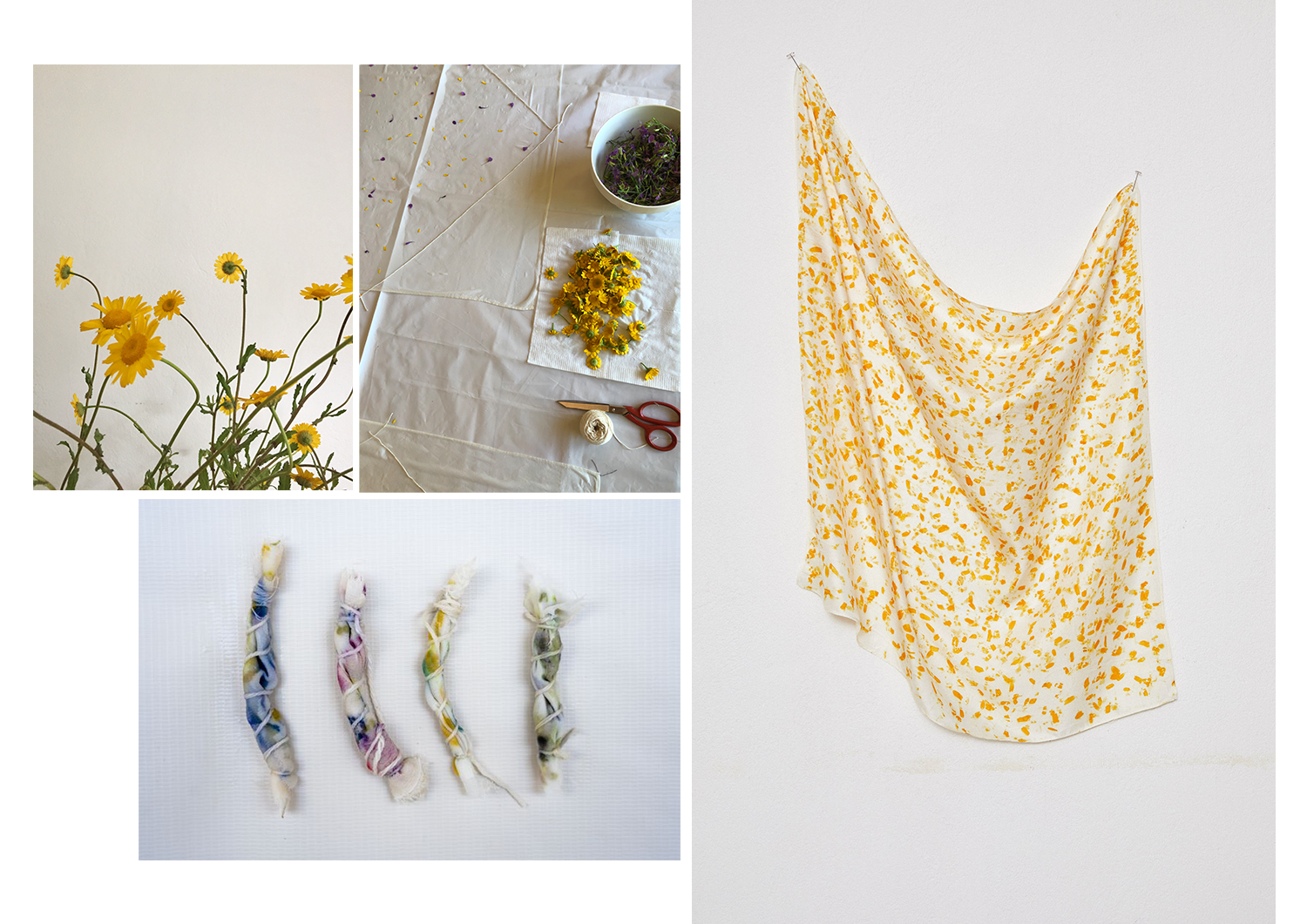
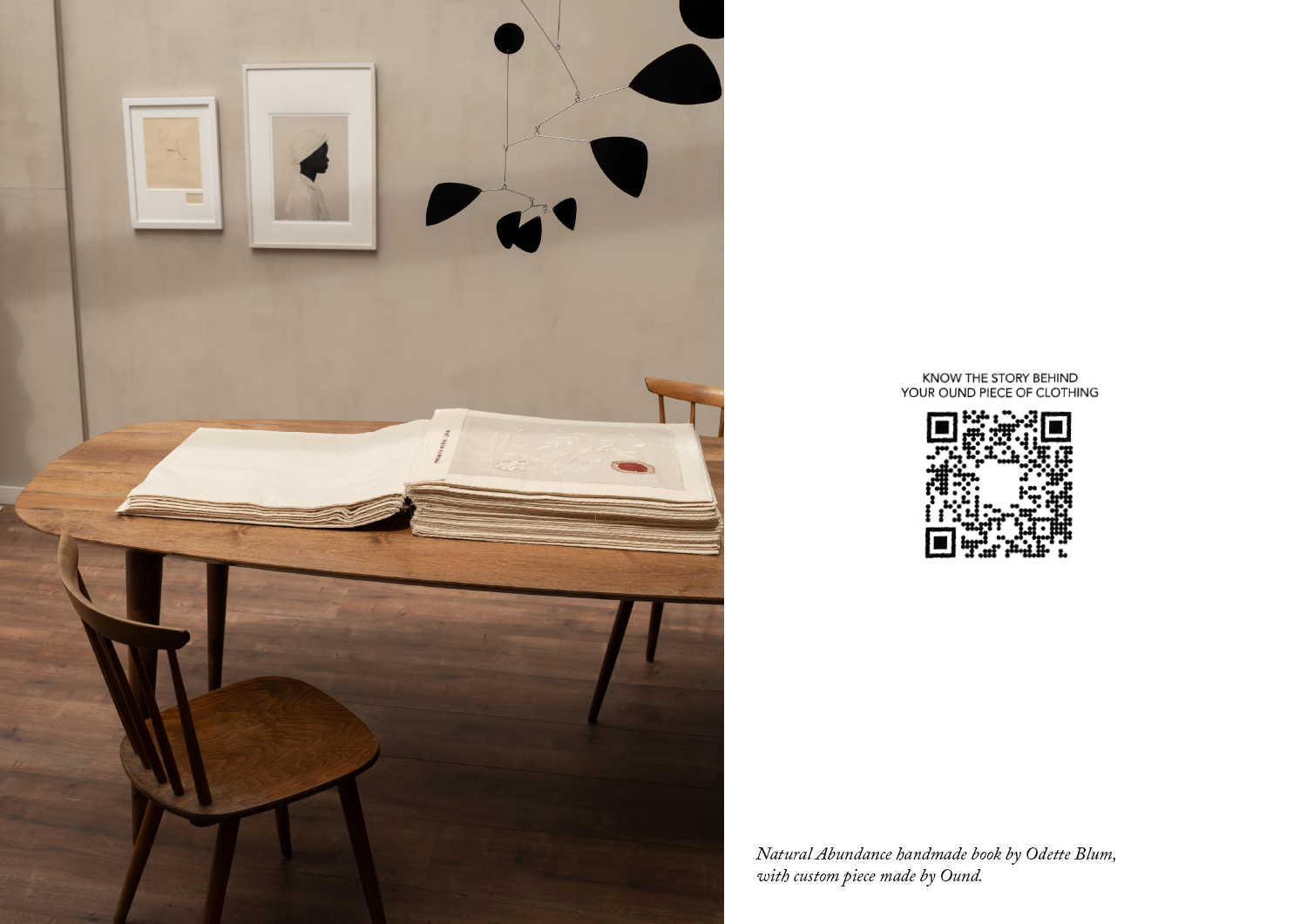

Calmo, Ound
Assistant designer, 2019-2023Textile and natural techniques, crafting developments, storytelling
I’m interested in processes that embodies a philosophy of resourcefulness and craftwomanship. My creative approach is concerned with working not only with what is at hand, but also with the hands themselves, understanding that the handmade resists standardization and reunites material with body. Much of this knowledge and appreciation for the handcrafted was attained during my time working for two projects/brands related to the slow and emotional fashion movement, based in Uruguay: Calmo, and Ound.
Both brands create from an admiration for materials, and specialize in experimenting with natural fibers such as leather, Merino wool, silk, linen, hemp, and cotton, using artisanal techniques. In Ound, hand-knitting and natural dyeing are the essence of the project. The natural dyeing processes are done completely by hand, using food waste and local plants foraged personally. Calmo specialized in products made with techniques like eco-printing and wool felting, to create one-of-a-kind objects while preserving traditional craftsmanship.
During my time there, I had the opportunity to work alongside some of those artisans, learning their craft and ways of approaching materiality. I developed an appreciation for the slow processes that require to be in tune with different temporalities and knowledges, related to the seasons, the weather, and oneself.
I also focused on storytelling. Handcrafting—as well as foraging or re-designing—demands a special kind of attention, humility, and openness to the unpredictable and uncontrollable. These processes translate into a meditative, critical practice. Through the creation of stories of craft and collaboration, we delved into the intricacies of handmade things, combining nature, photography, knitting, jewelry, and hand-printing, between others.
Credits: Calmo Founder and creative director: Alice Otegui. / Ound founder and creative director: Paula Delgado.
Vertti Virasjoki
Vertti Virasjoki (he/him) is a designer-photographer-artist who explores and substantiates social and societal phenomena through the lens of camera, artistic and designerly approaches. As a creative Vertti’s passion lies in contributing of making society a more fair place for everybody; that tiny bit one can and prefers to do while collaborating with others.
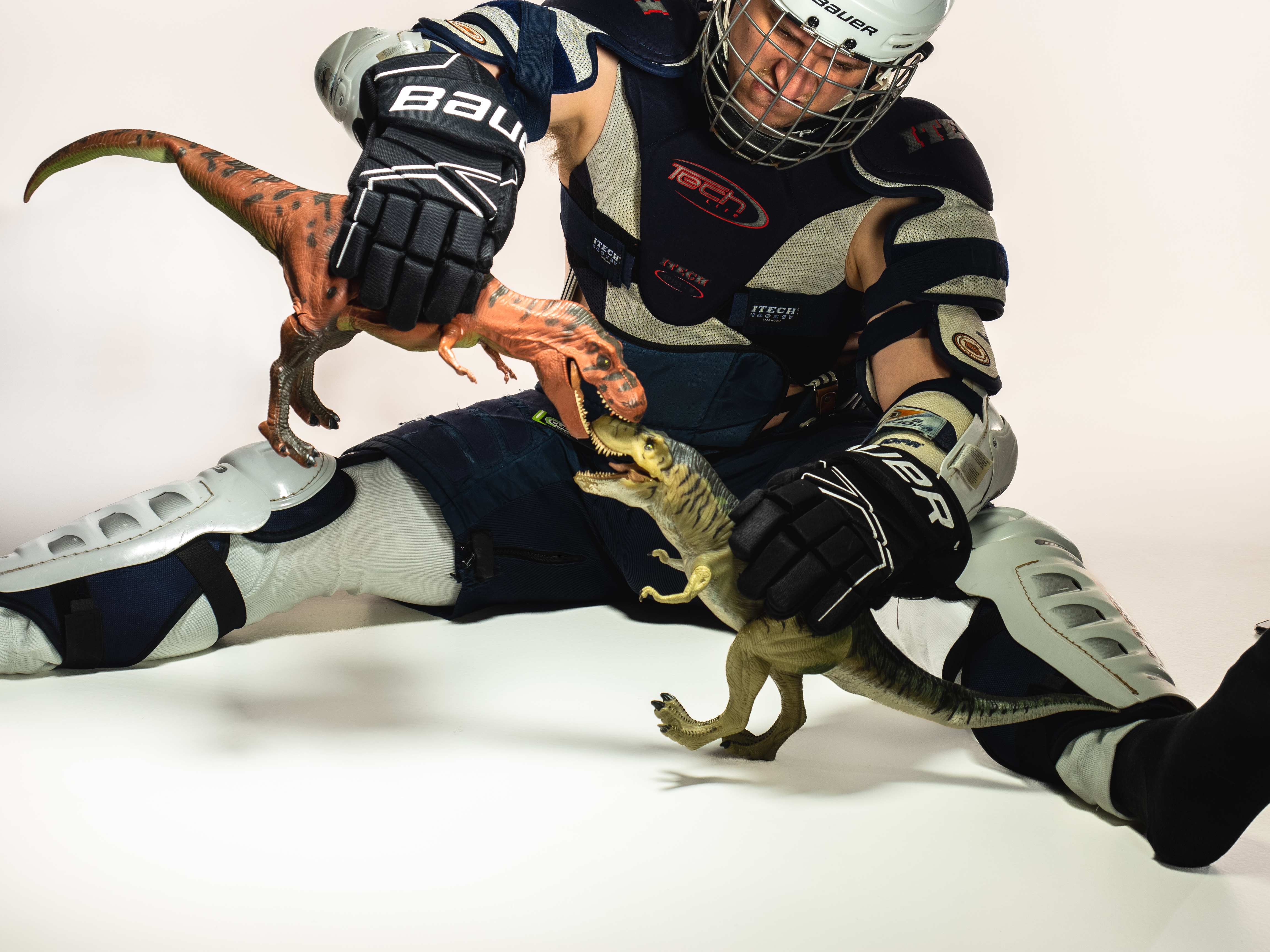
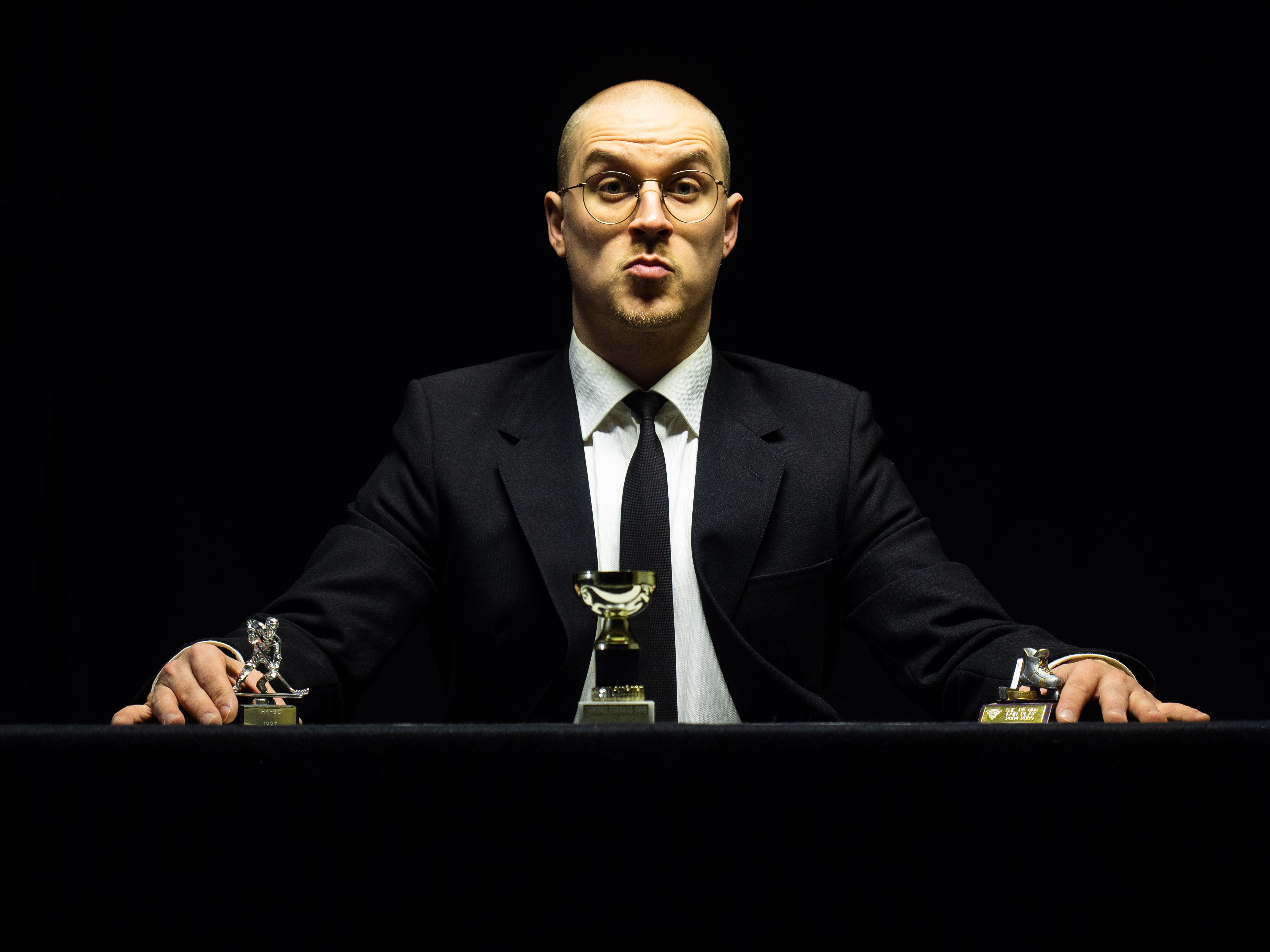
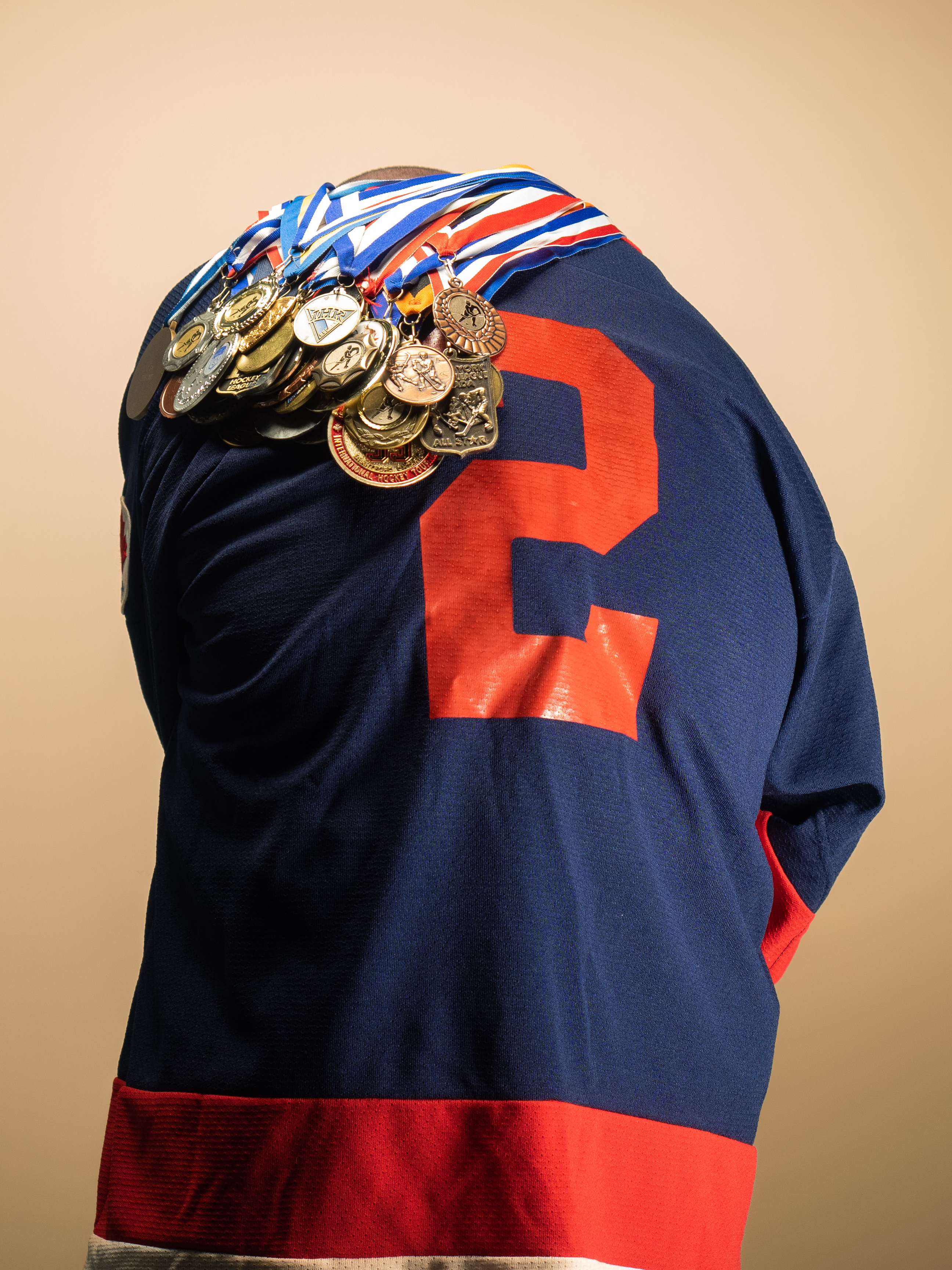
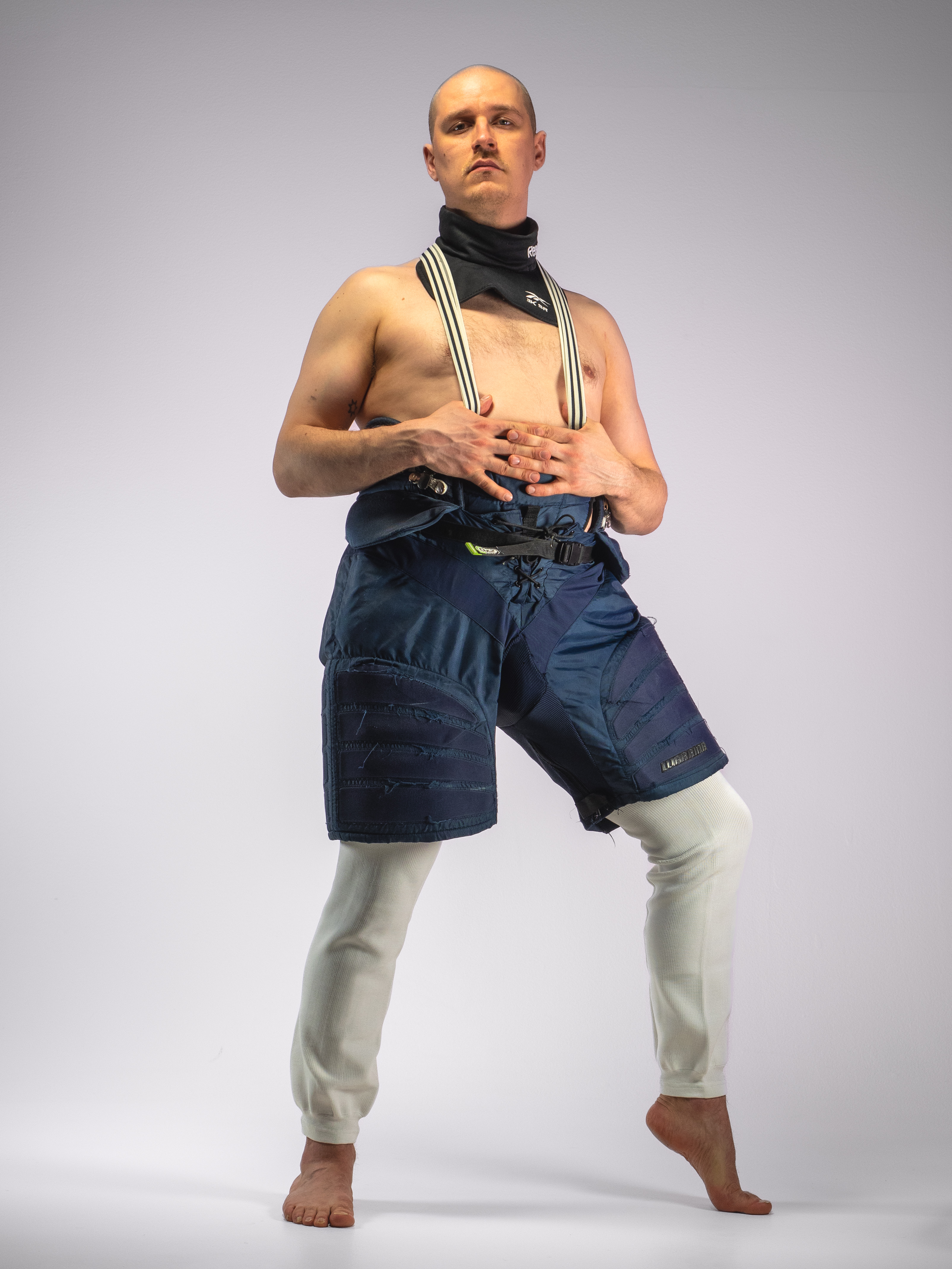
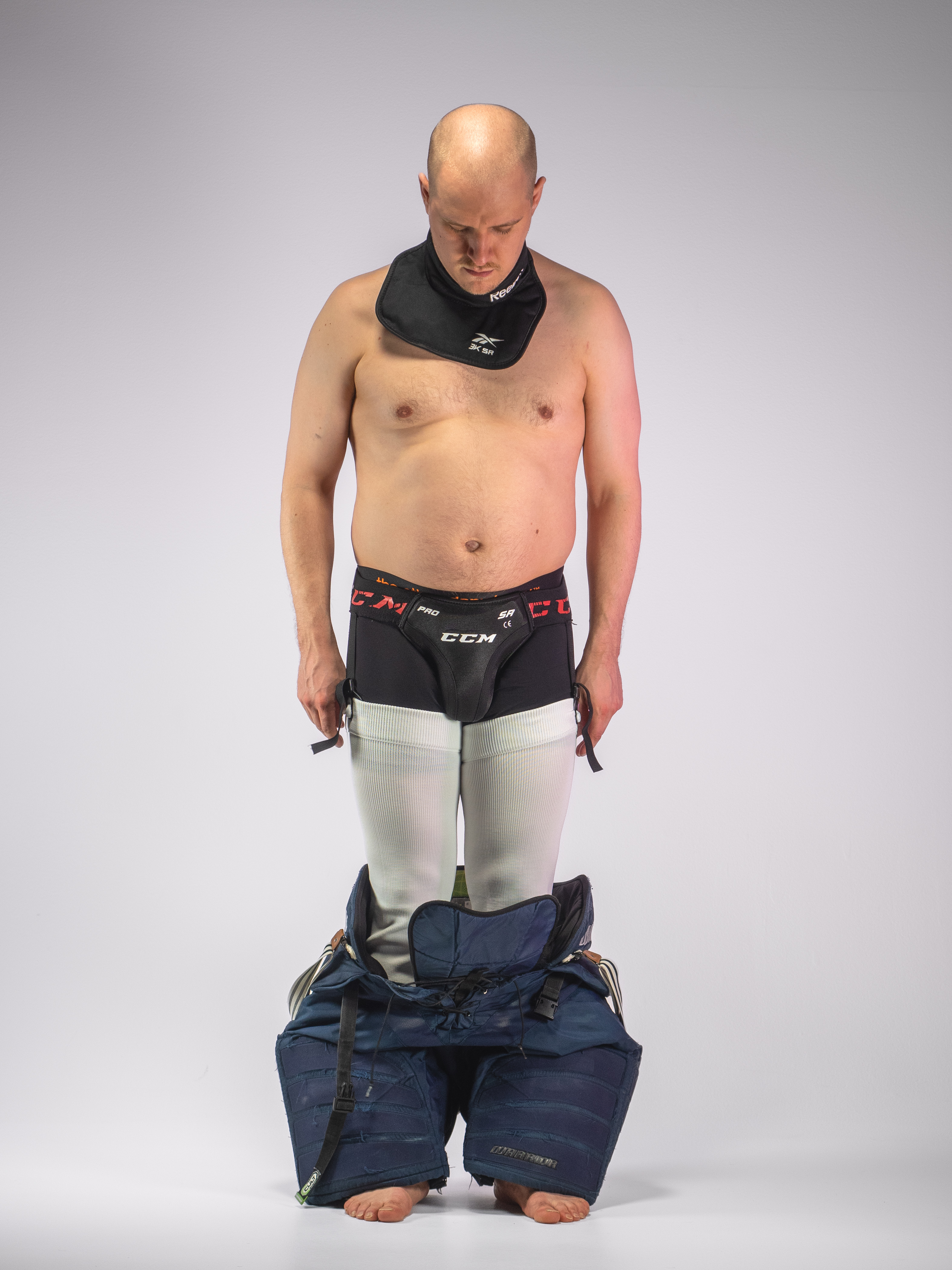


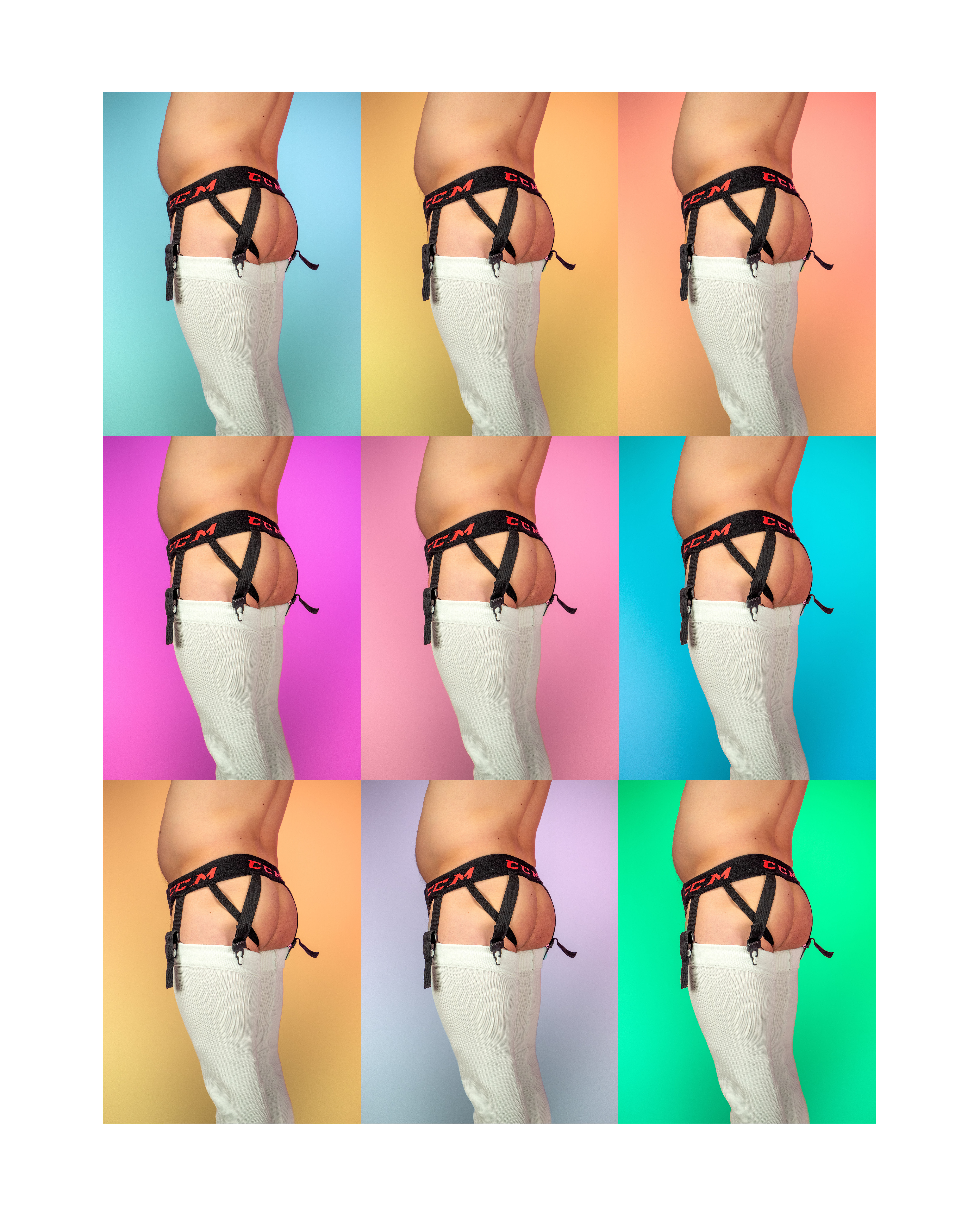
Dear Hockey
Master of Arts Thesis project, 2021-2023Aalto University School of Art, Design and Architecture
Exhibited at Artefakti 2023, a Contemporary Design programme Graduation Show, during Helsinki Design Week
An artistic exploration that combines photogrpahic works and written essays, delving into the author’s personal journey and experiences within the world of ice hockey.
The master thesis Dear Hockey: Ponderings on Masculinity in Ice Hockey Culture is an artistic research and exploration that combines photographic works and written essays, delving into personal journeys and experiences within the world of ice hockey, examining the production of gender, challenging societal notions of masculinity, and seeking to initiate discussions on inclusivity and diversity within the hockey community. Topics such as violence, succession and corporality are being explored, both through the self-portraiture photographs alongside the essays. Beyond personal introspection, the project strives to shed light on the construction of masculine identity within the context of ice hockey while also noting its effect on society on a larger scale as well.
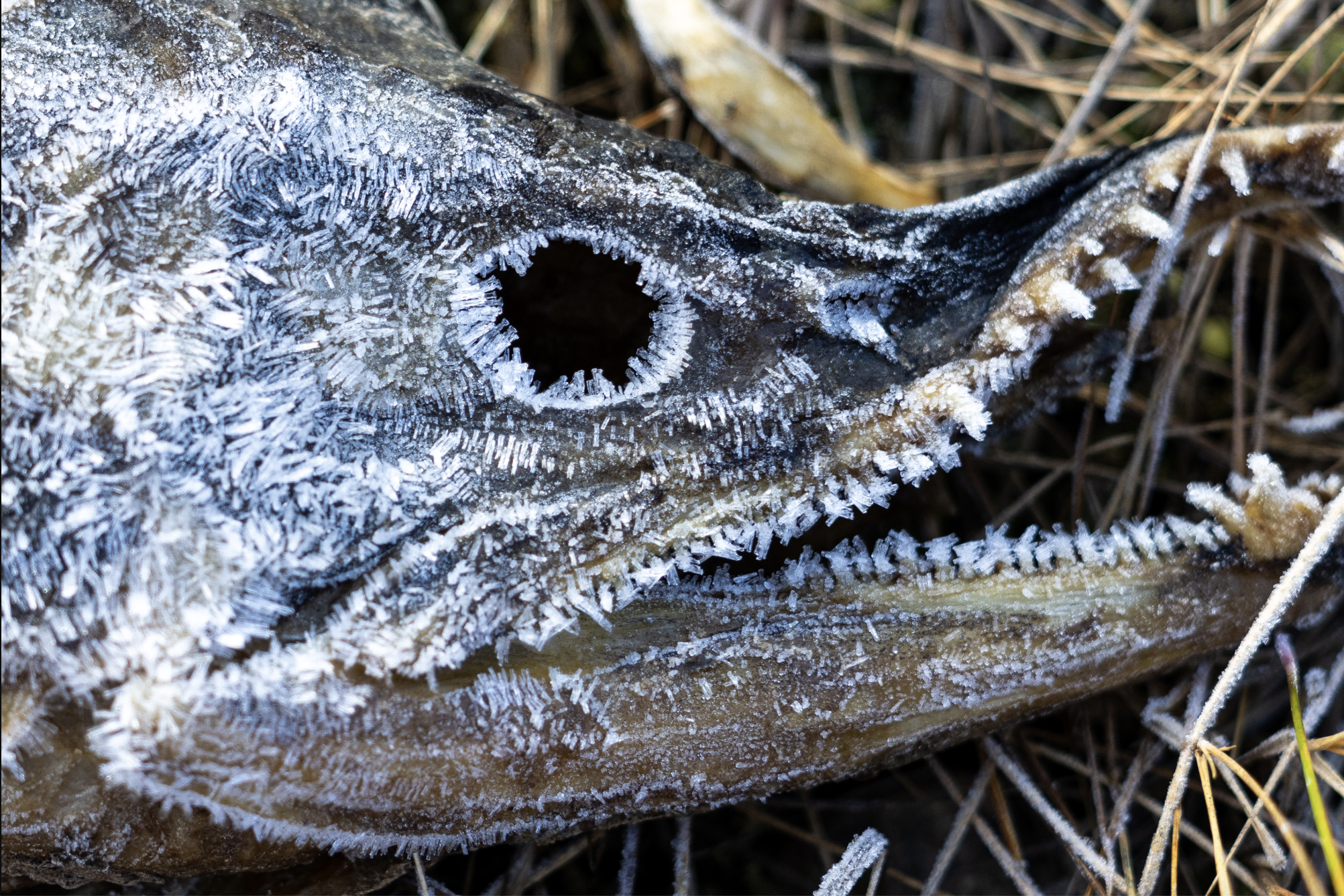
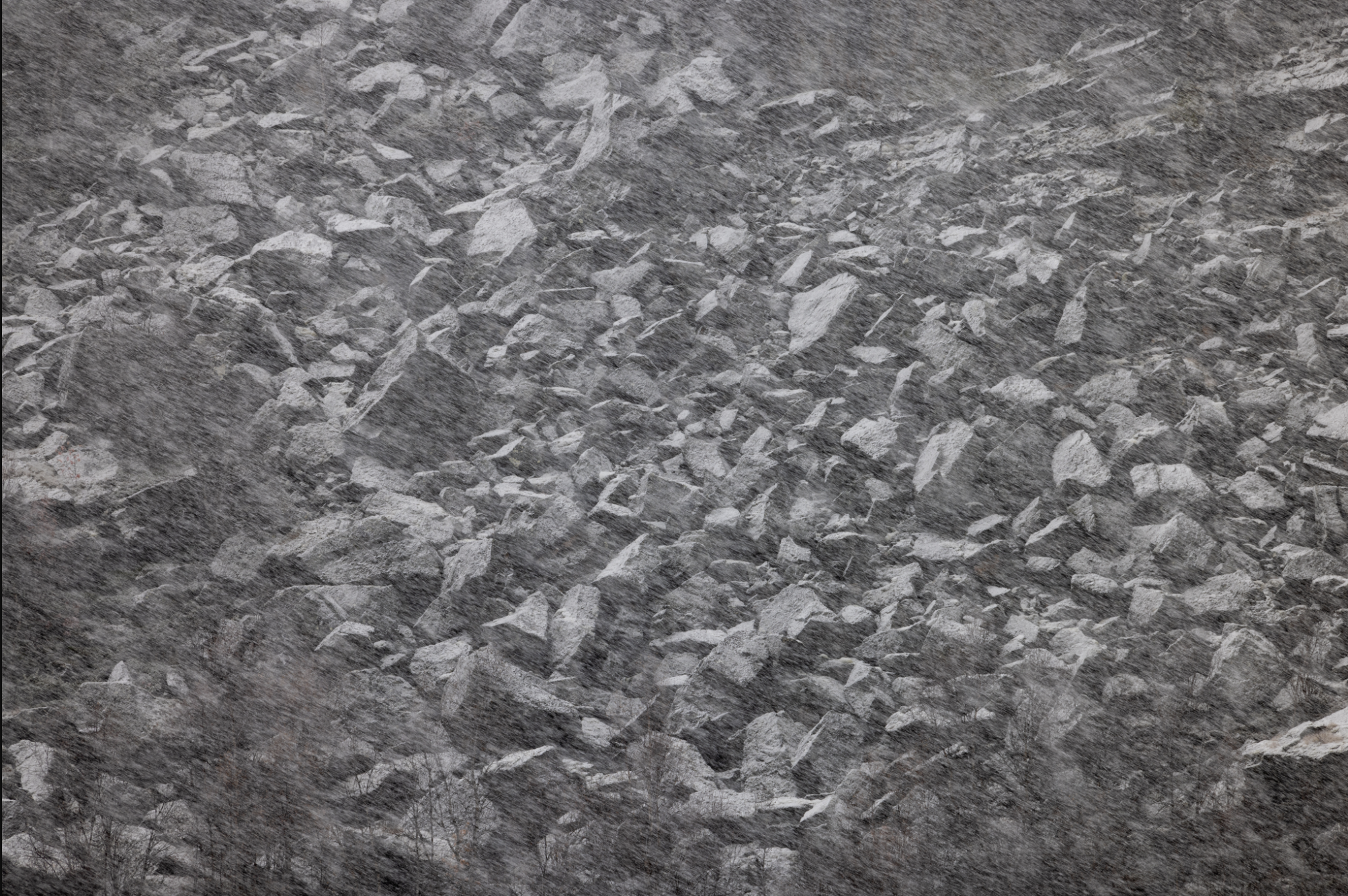
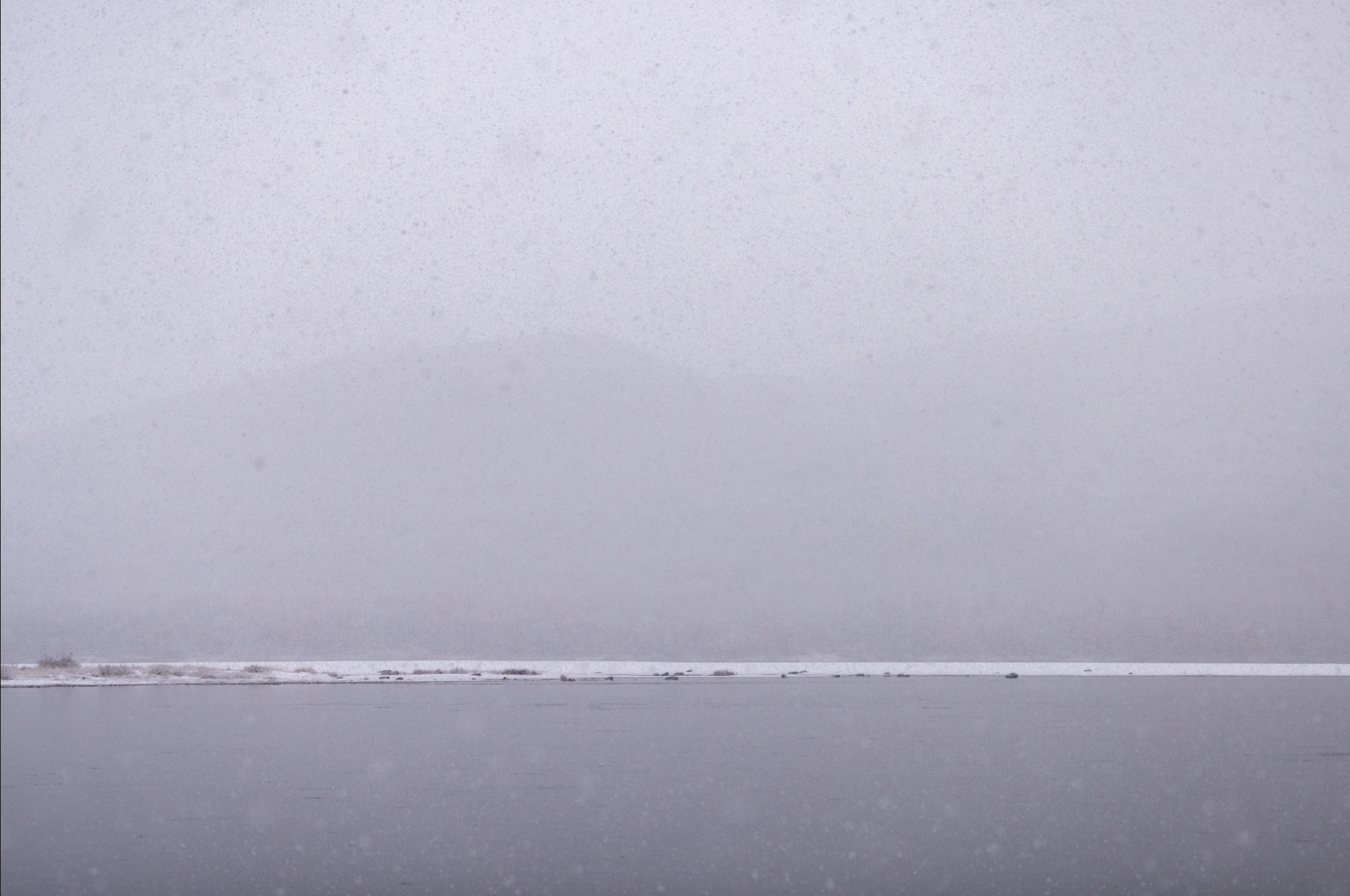
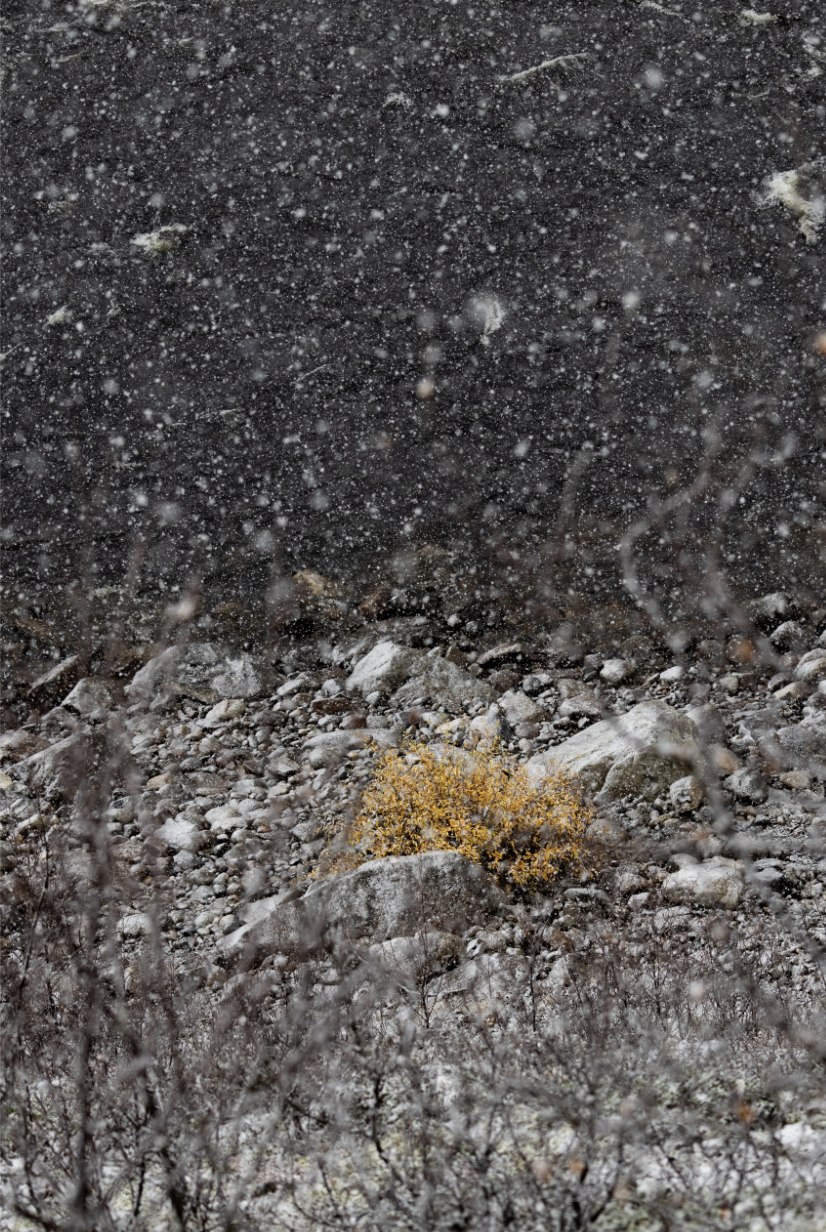
Soil Laboratory
Photography project, 2023-2025Upcoming exhibition at Galleria Kellokas
Soil Laboratory is a collection of photographs from the Utsjoki area, where I was documenting Maarit Mäkelä's—Professor in Department of Design, Aalto University— ceramic project as part of her project Soil Laboratory (2023-2024). During the stay in Utsjoki I also worked on my own photographic artistic expression, which will be part of the upcoming exhibition Soil Laboratory: Exploring a dialog between human and land alongside the documentary work I did on Maarit Mäkelä’s and Mira Niittymäki’s ceramic fieldwork. The exhibition will take place in Galleria Kellokas, Äkäslompolo, starting January 2026 until March 2026.
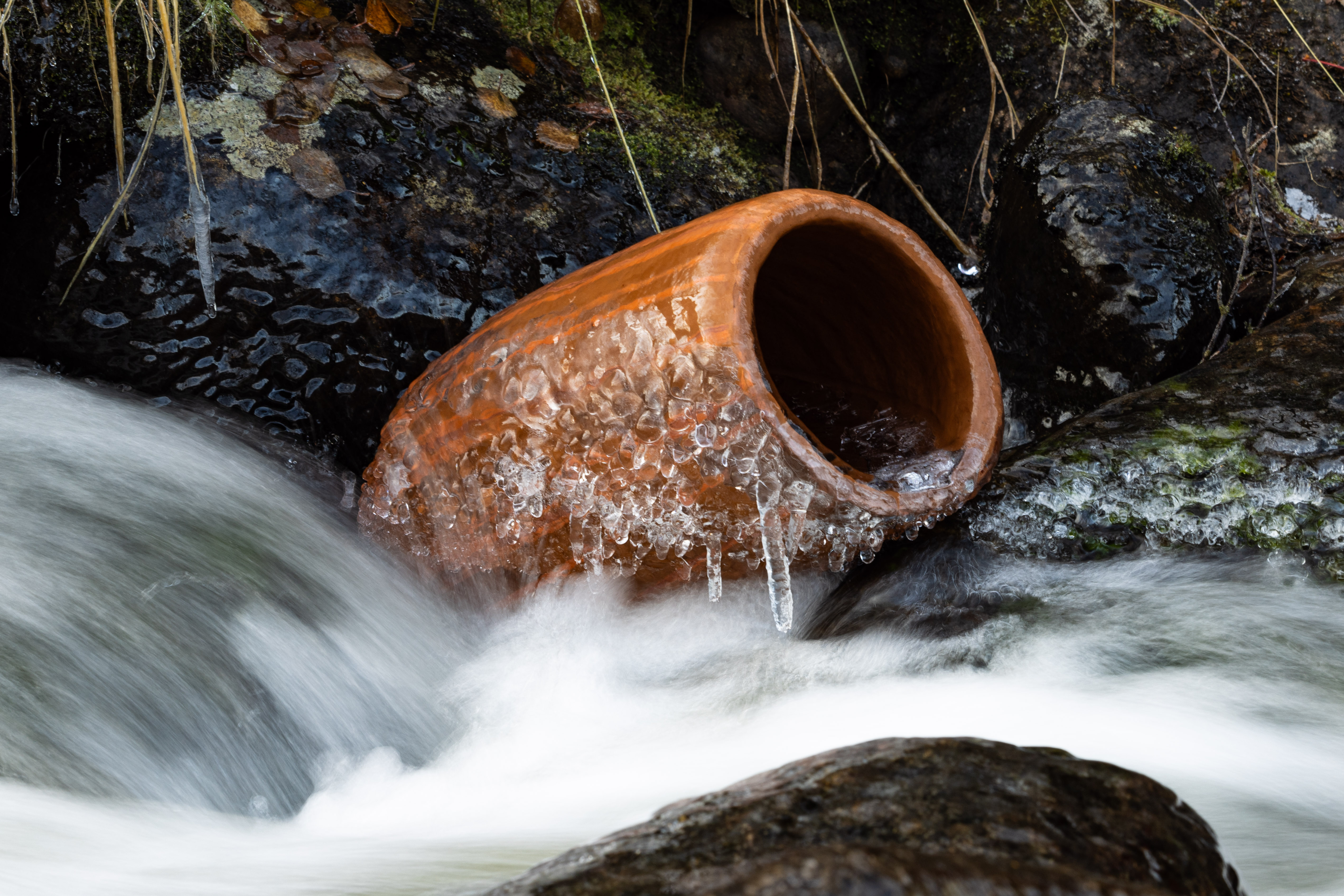

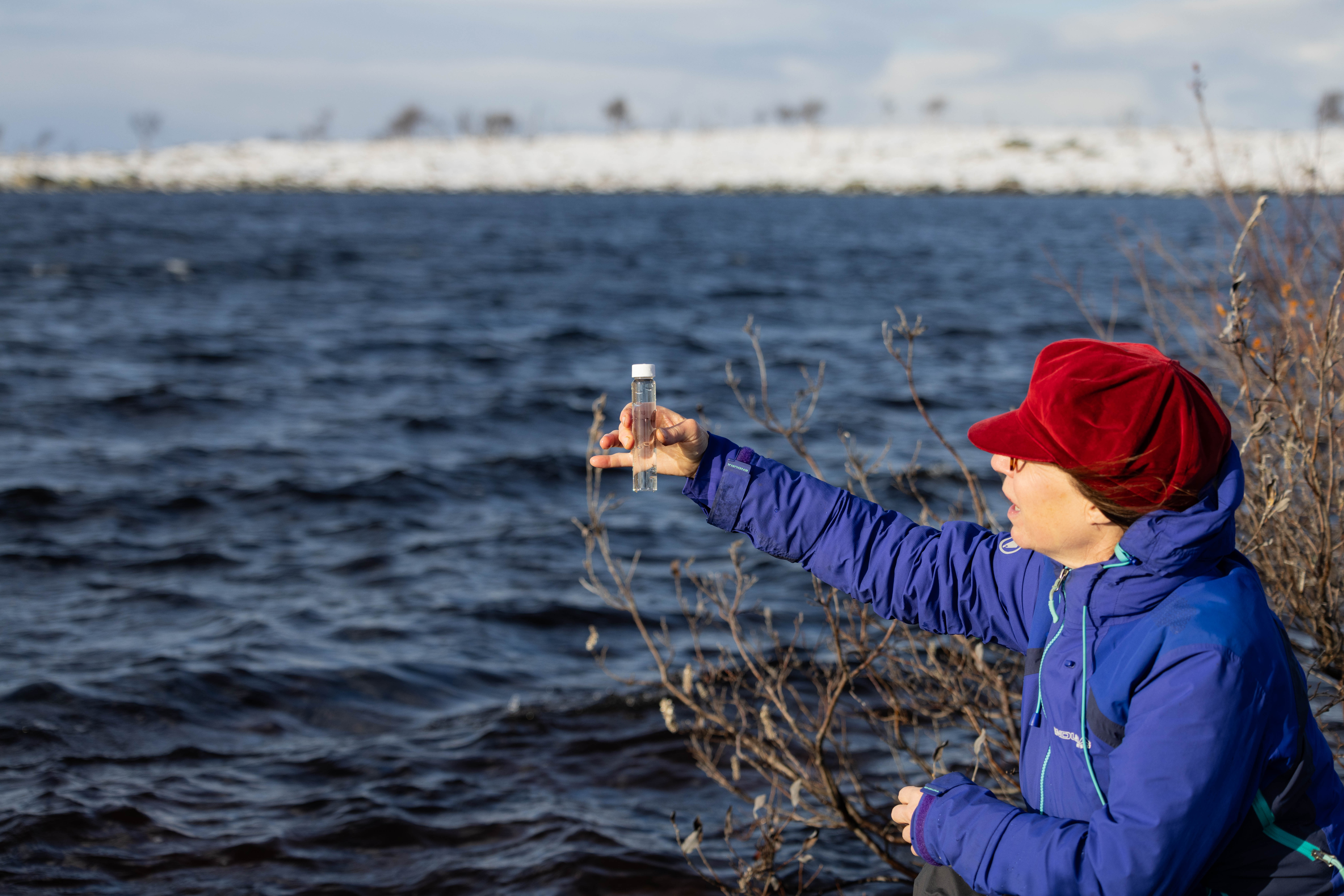
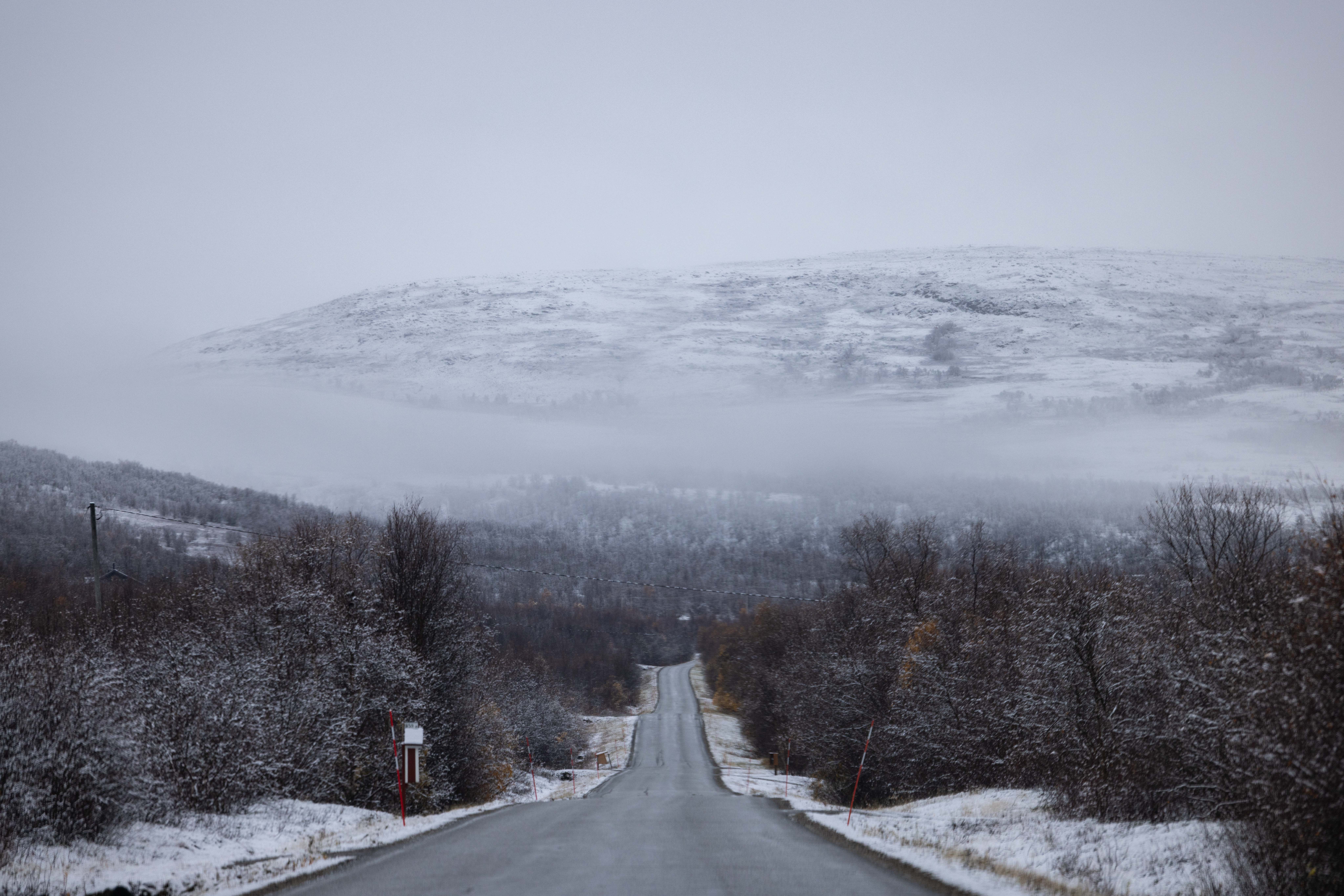
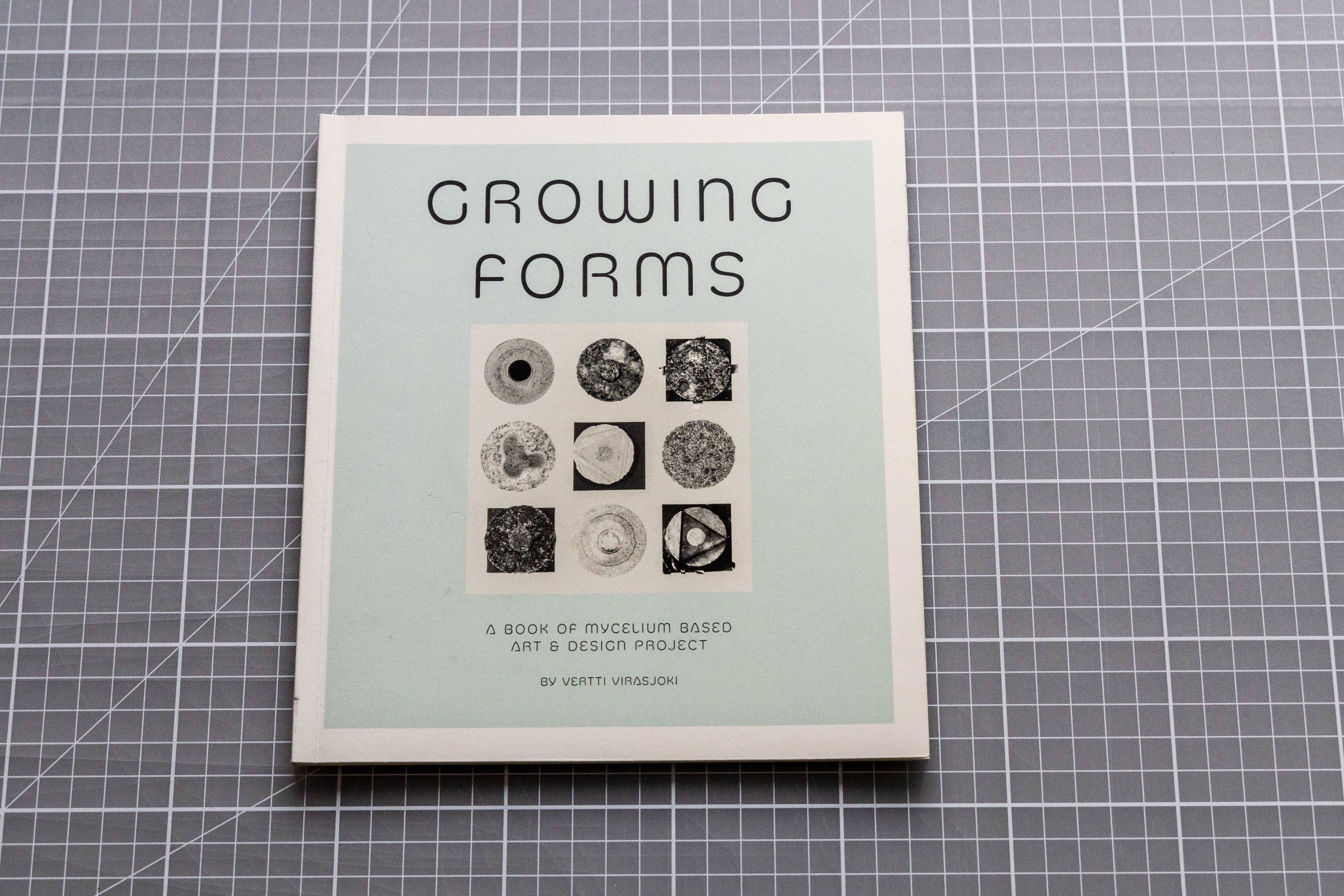
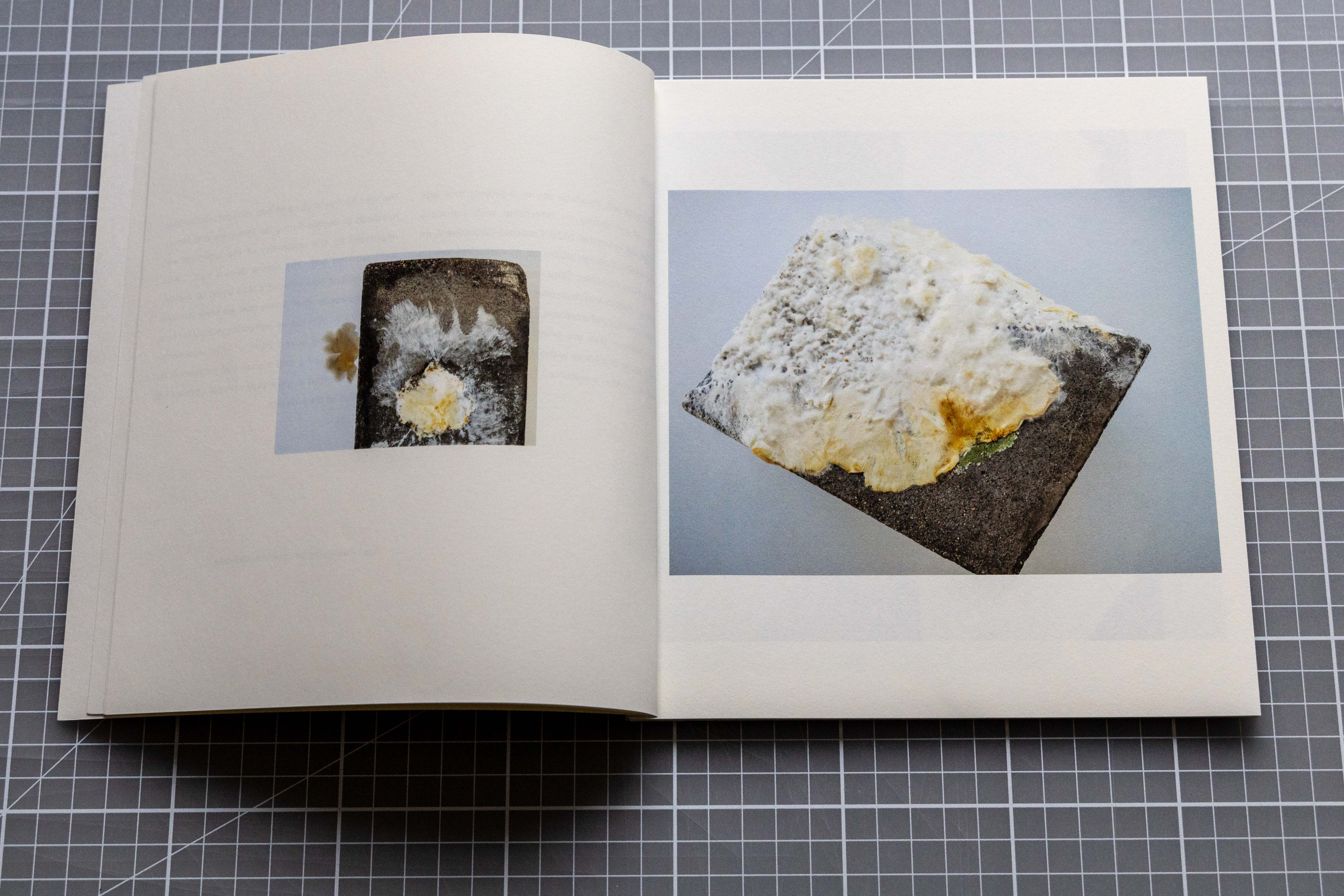

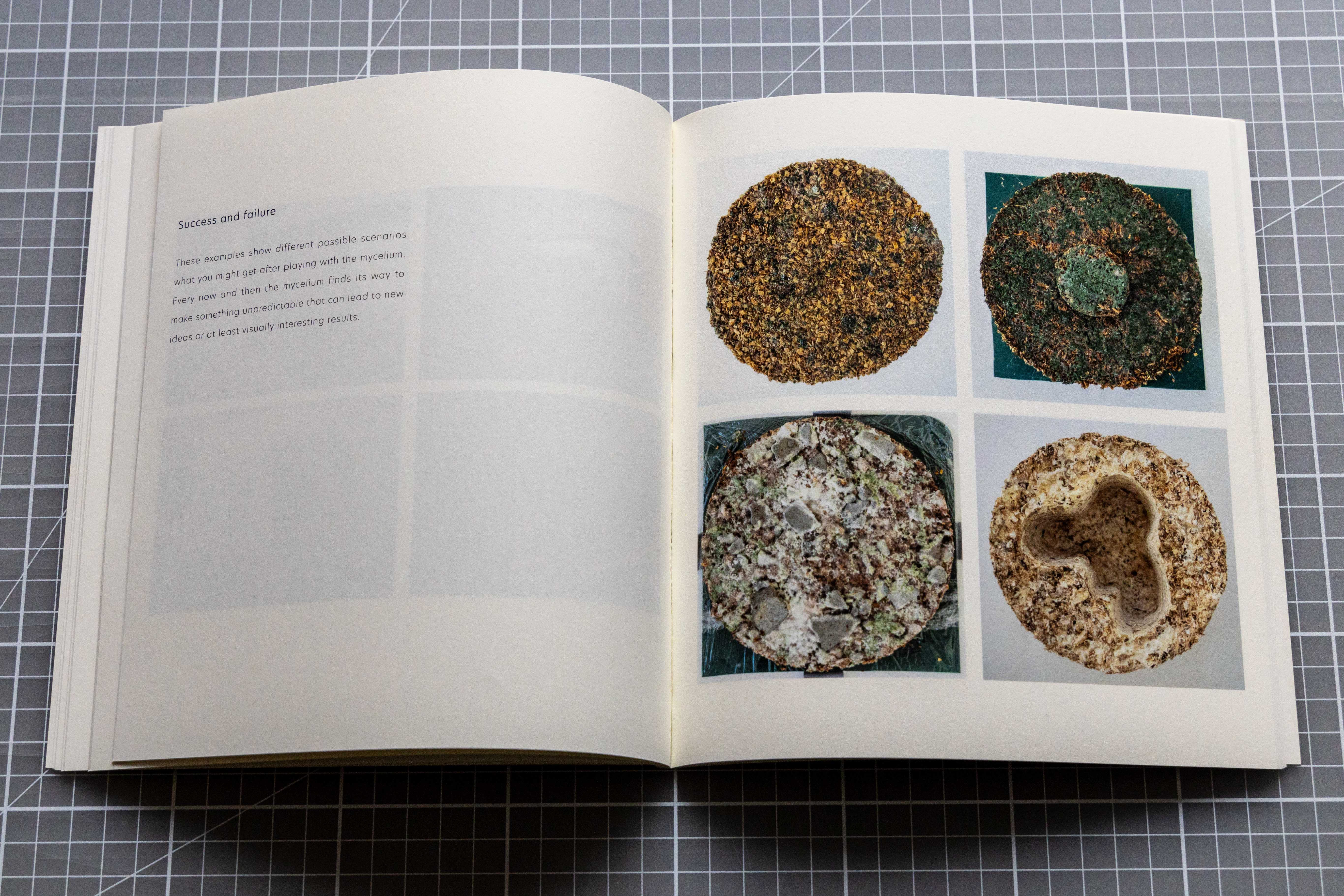
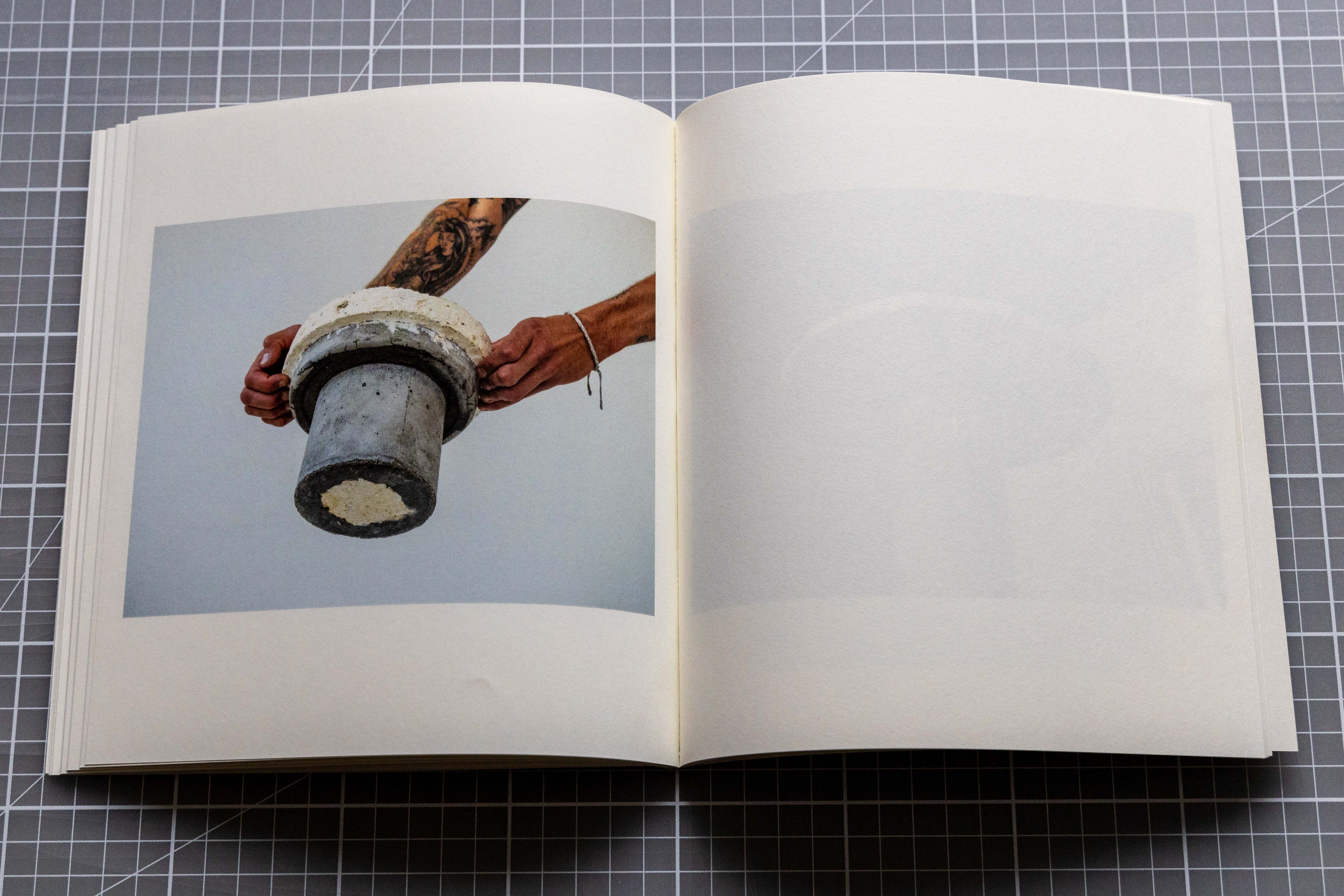

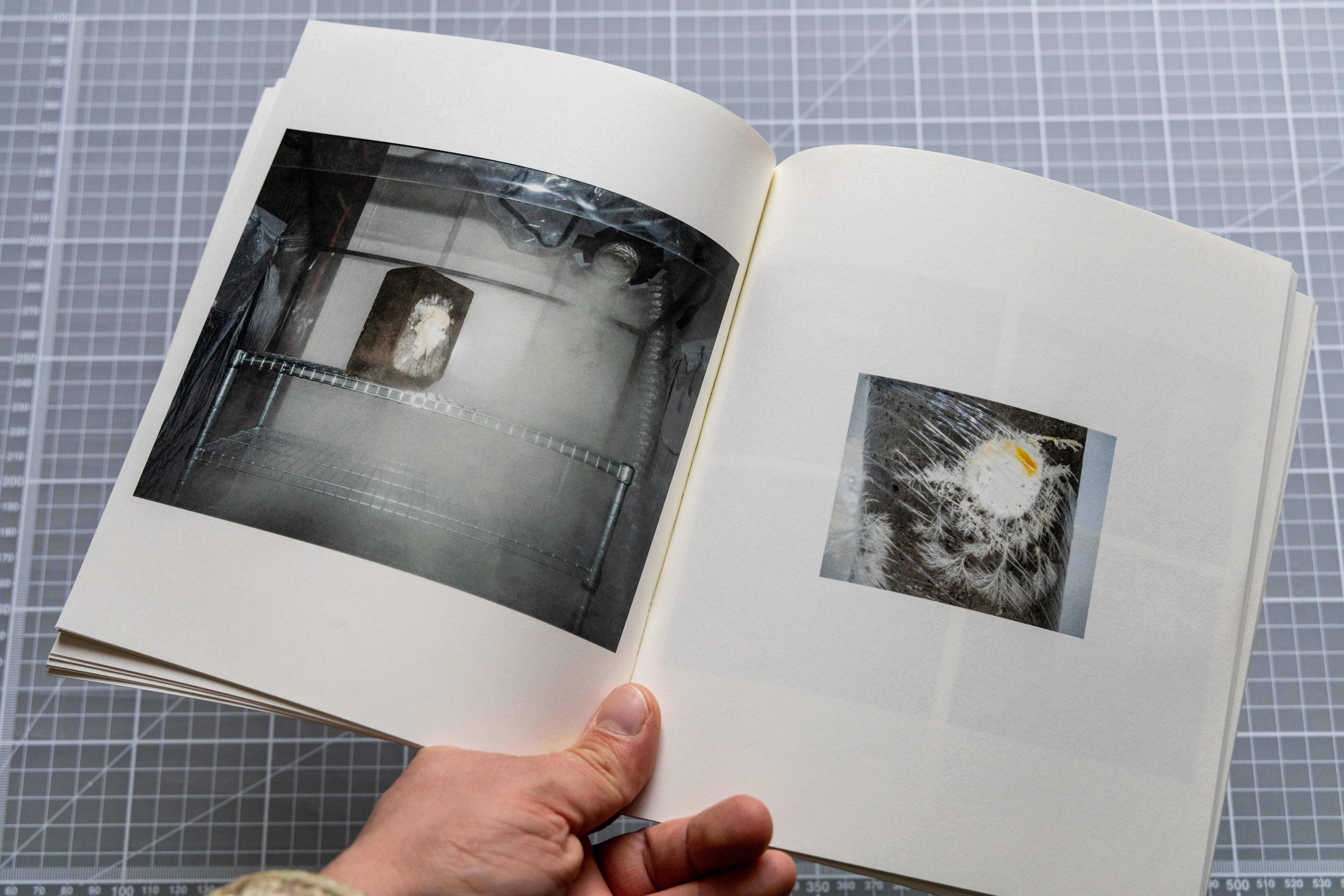
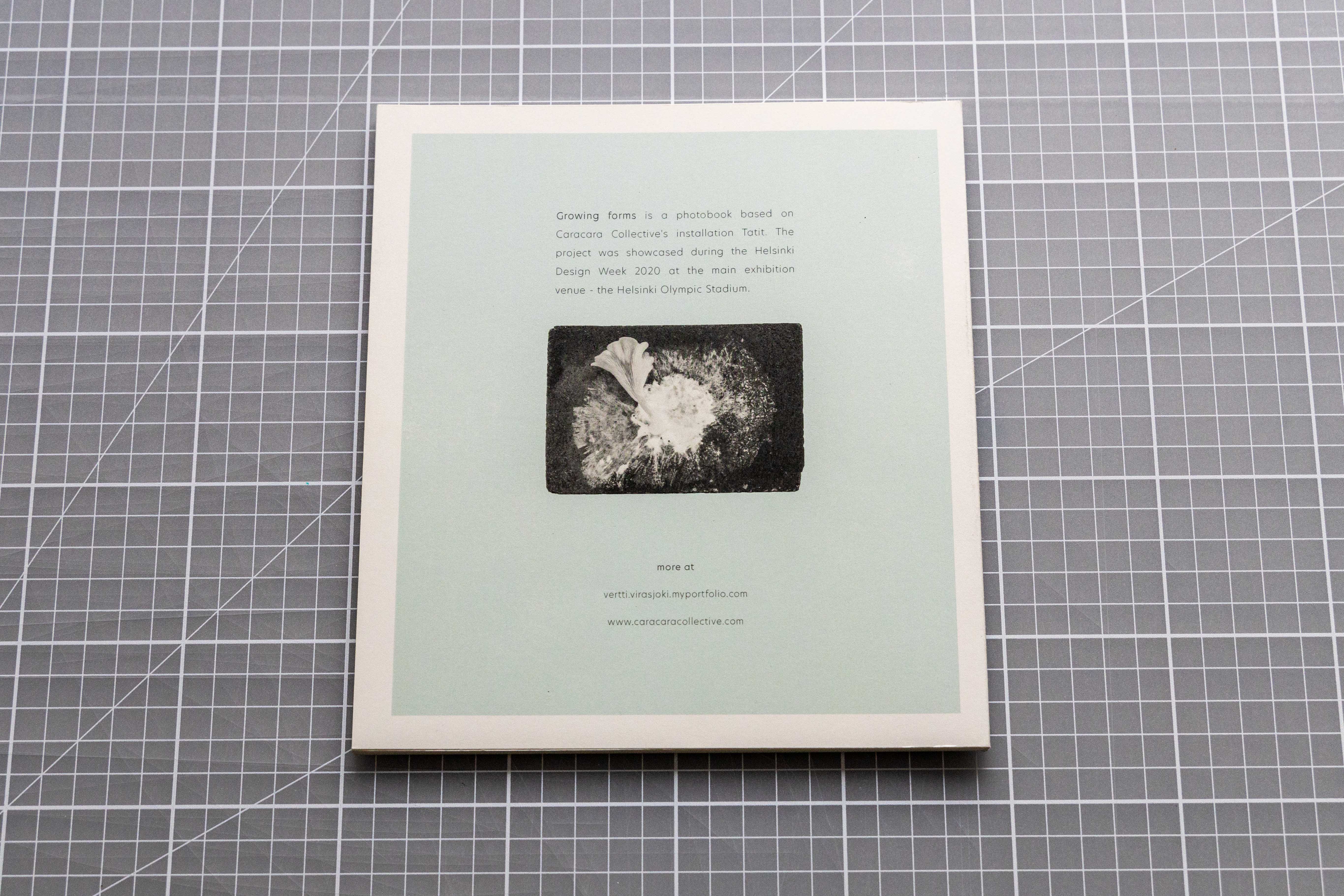
Caracara collective
Publication + internship, 2020Growing Forms is a booklet of mycelium based art and design, which I designed during a photobook design and production course of my Photography studies at Aalto University. The images were taken during my internship with experimental design studio Caracara Collective. In the booklet I open the process of a hands on installation project called Tatit, that was showcased during the Helsinki Design Week 2020 in the main venue, Helsinki Olympic Stadium.
Sofia Guridi
Sofia Guridi (she/her) is a design researcher working at the intersection of textiles, electronics, and biomaterials to create interactive interfaces. Combining traditional textile knowledge with material experimentation, her experience ranges from applied research to artistic installations.

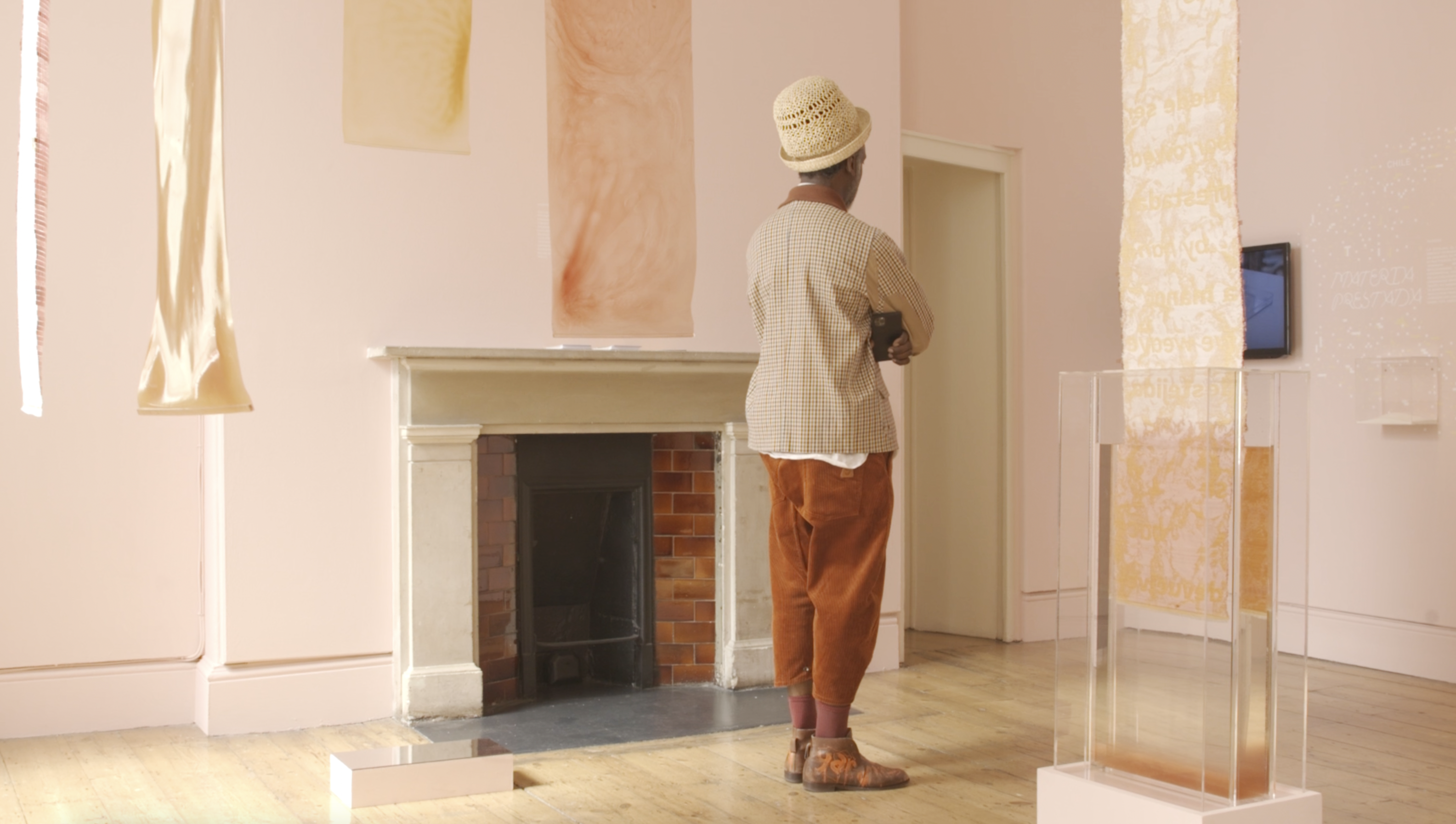

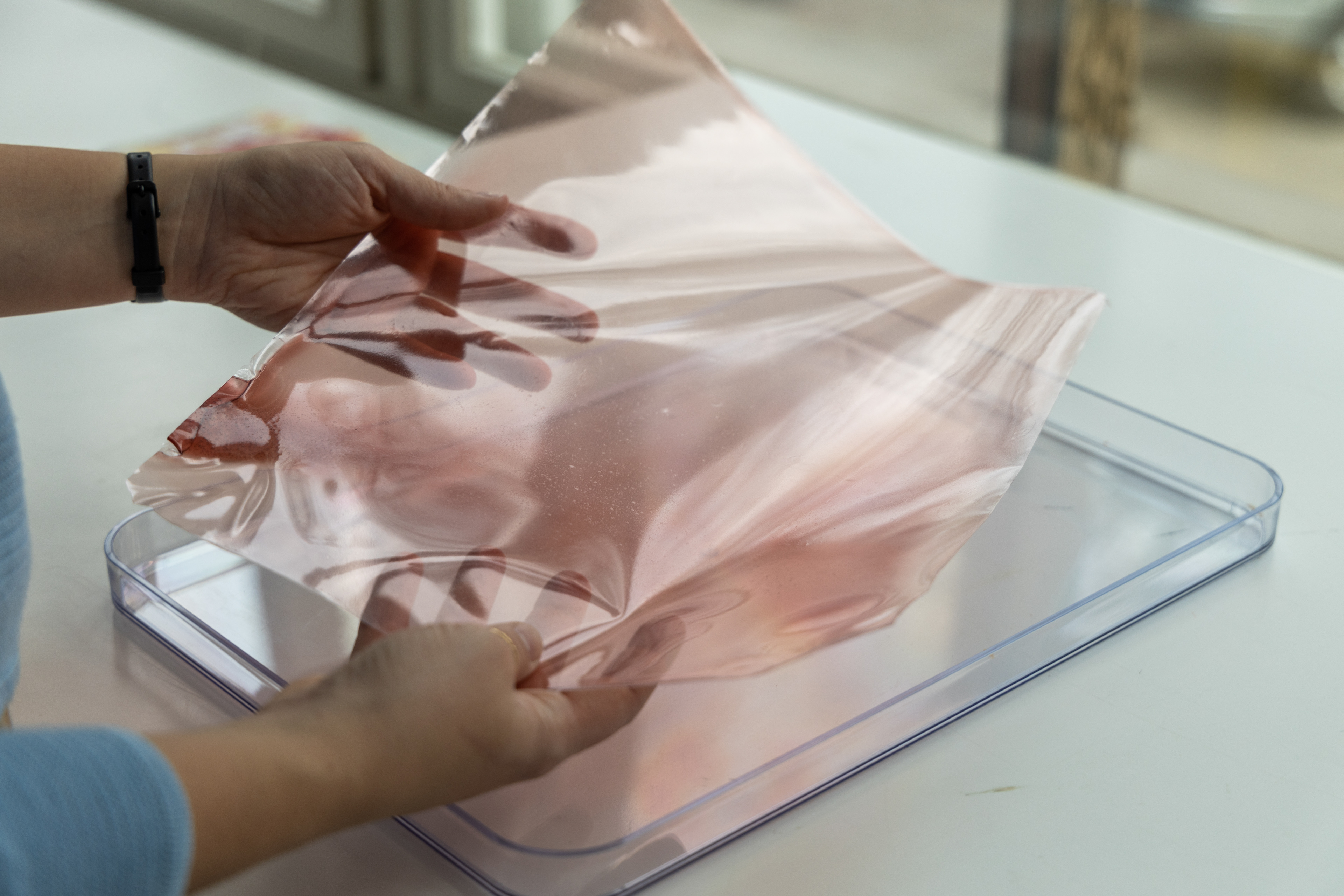
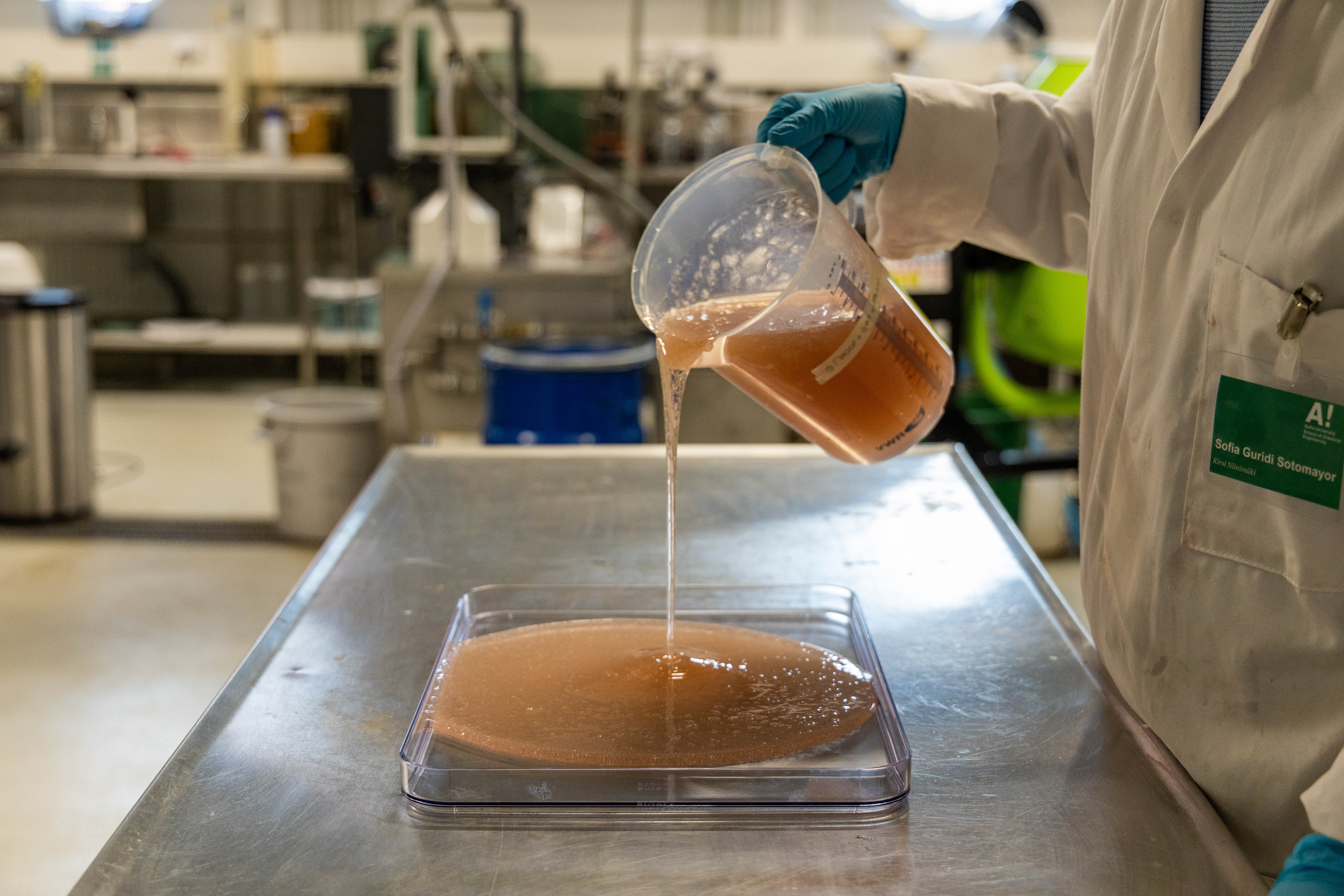
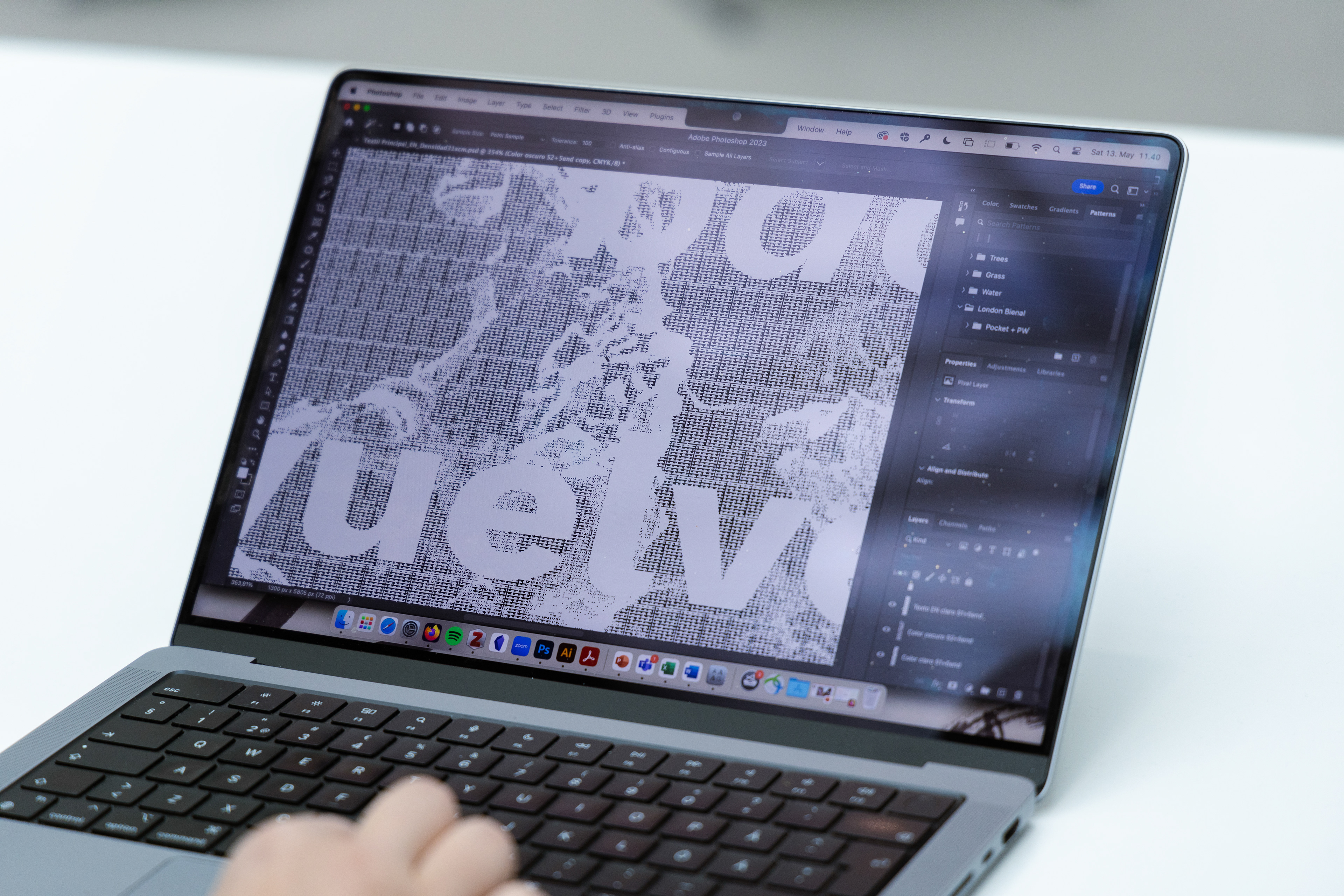
Borrowed Matter/Materia Prestada
Interactive biotextile installation, 2023Exhibited at London Design Biennale representing Chile
Borrowed Matter/Materia Prestada is an interactive multi-sensory installation composed of hand-woven biotextile pieces. The project aimed to explore innovative uses of tree cellulose as a biomedium while reflecting on its production's extractive processes and economic considerations.
The installation sought to connect biomaterial innovation and traditional techniques, emphasizing the importance of slow, embodied-making processes. The biotextile pieces were meticulously crafted using cotton, natural dyes (grapes, madder, and carmine), conductive yarns, and carboxymethyl cellulose, a by-product of the forest industry. Hand-weaving was the chosen technique due to its significance in Latin American material culture, serving as an identity marker, a means of communication, and a medium for knowledge transfer.
Throughout the month-long exhibition, the pieces transformed and degraded with the touch of visitors, exposure to natural light, and contact with water, showcasing these interactive textiles' transient and cyclical nature. Visitors were encouraged to witness this ongoing degradation, revealing a concealed text, and to interact with tactile sensors, uncovering hidden sounds of birds, looms, and the forest.
Credits: Designer: Sofía Guridi / Curator: Juan Pablo Vergara / Graphic Design: Gracia Fernández / Audio visualist: Víctor Leyton / Communications: Karla Riquelme / Production assistant: Diana Becares / Photography: Vertti Virasjoki.

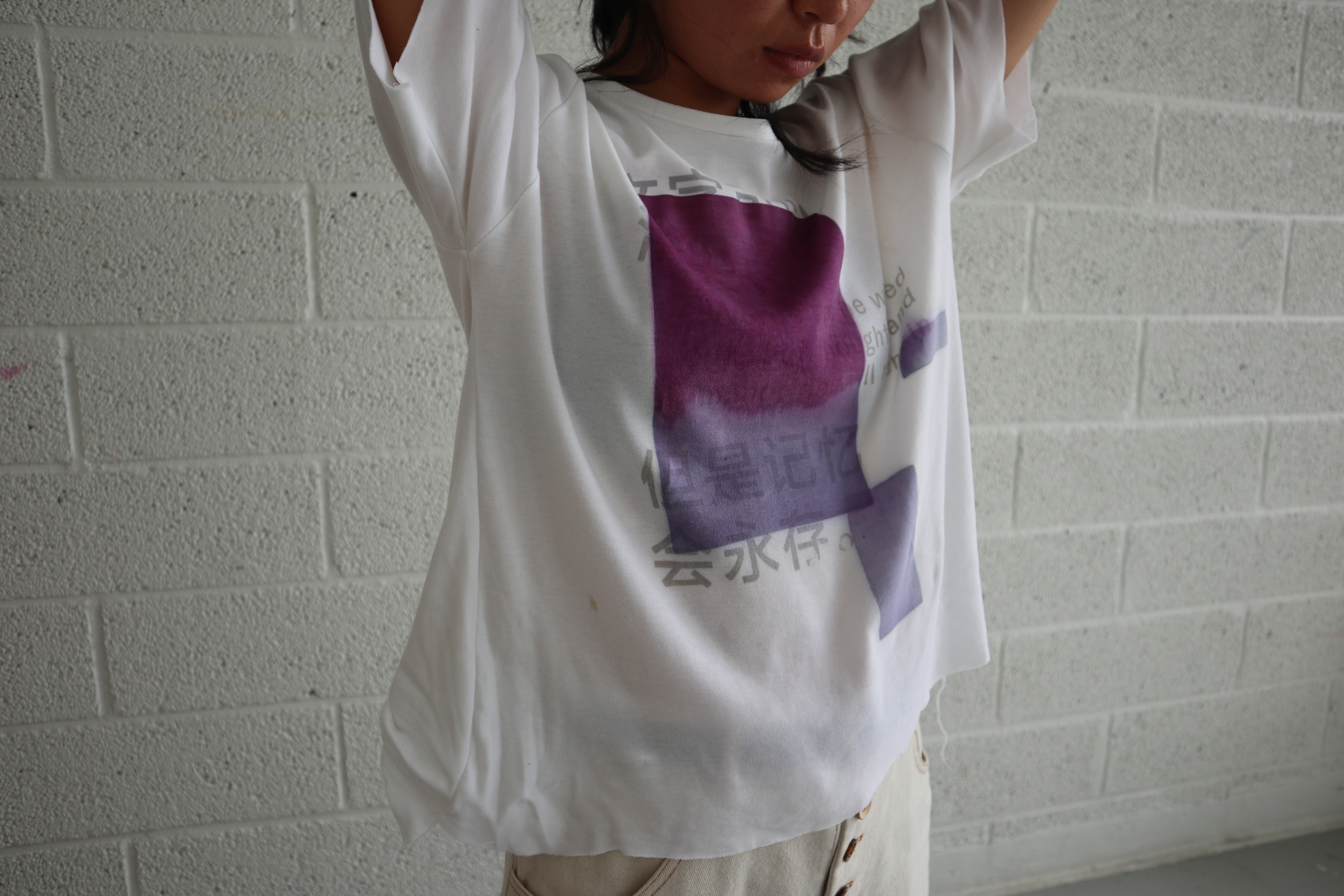
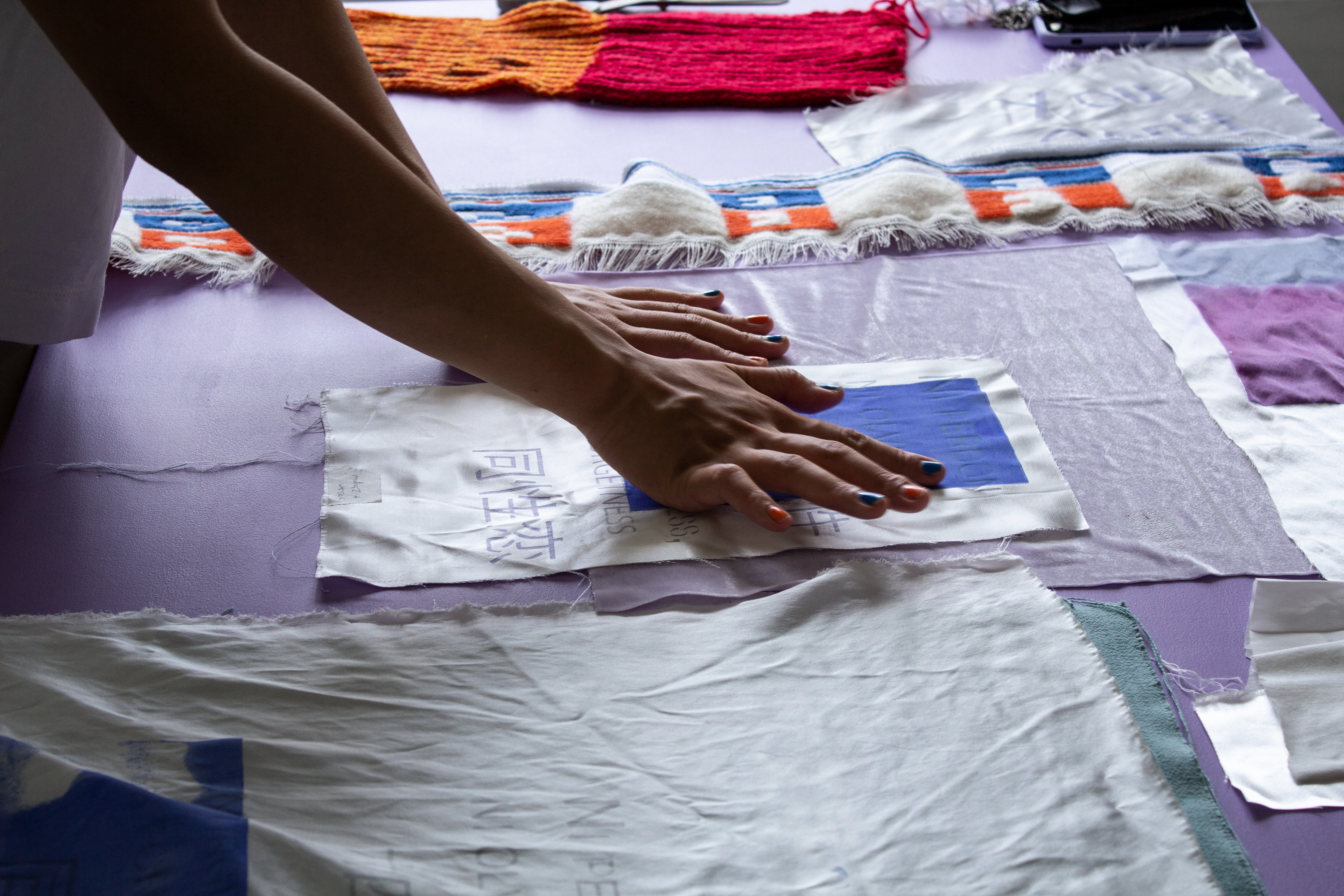
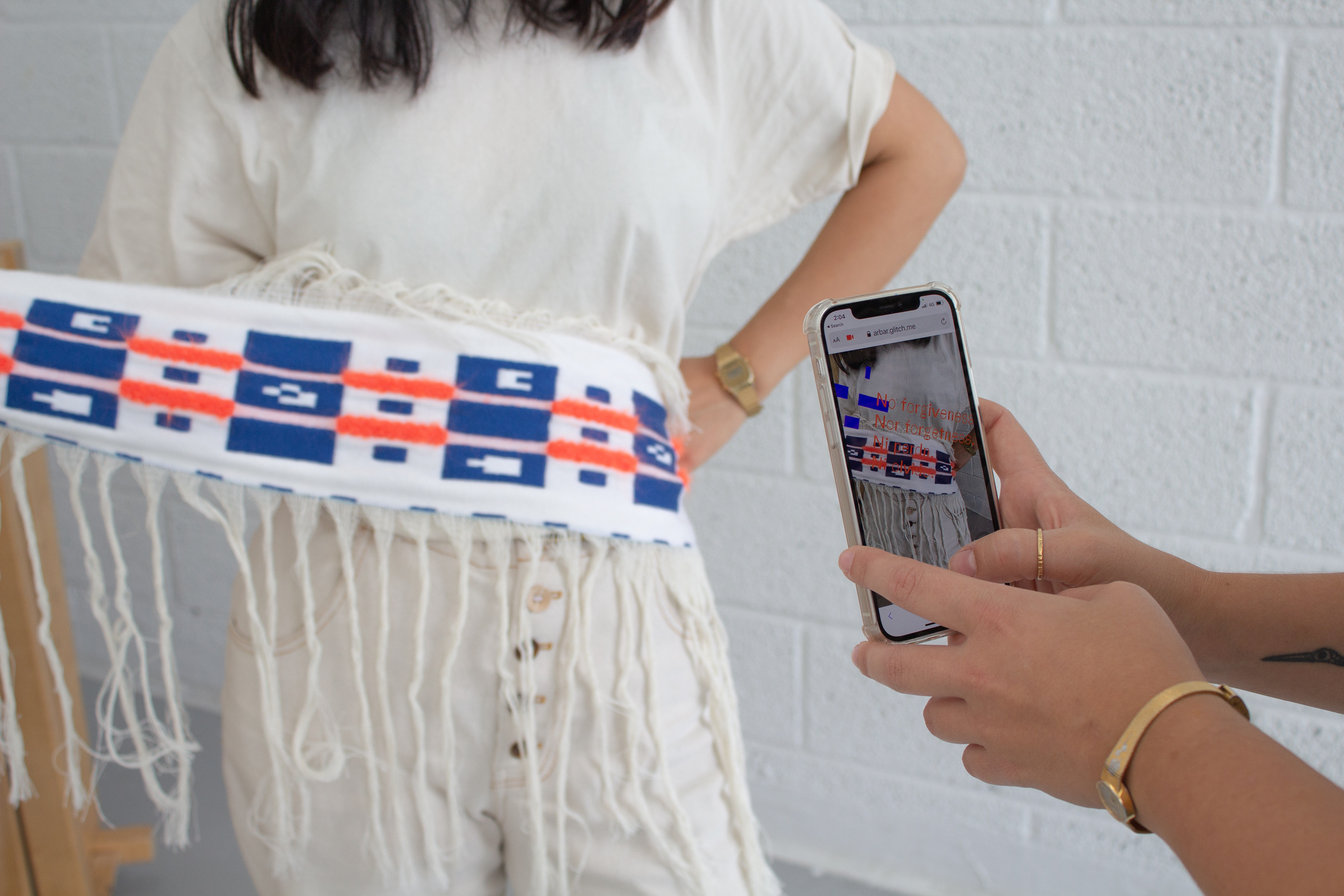
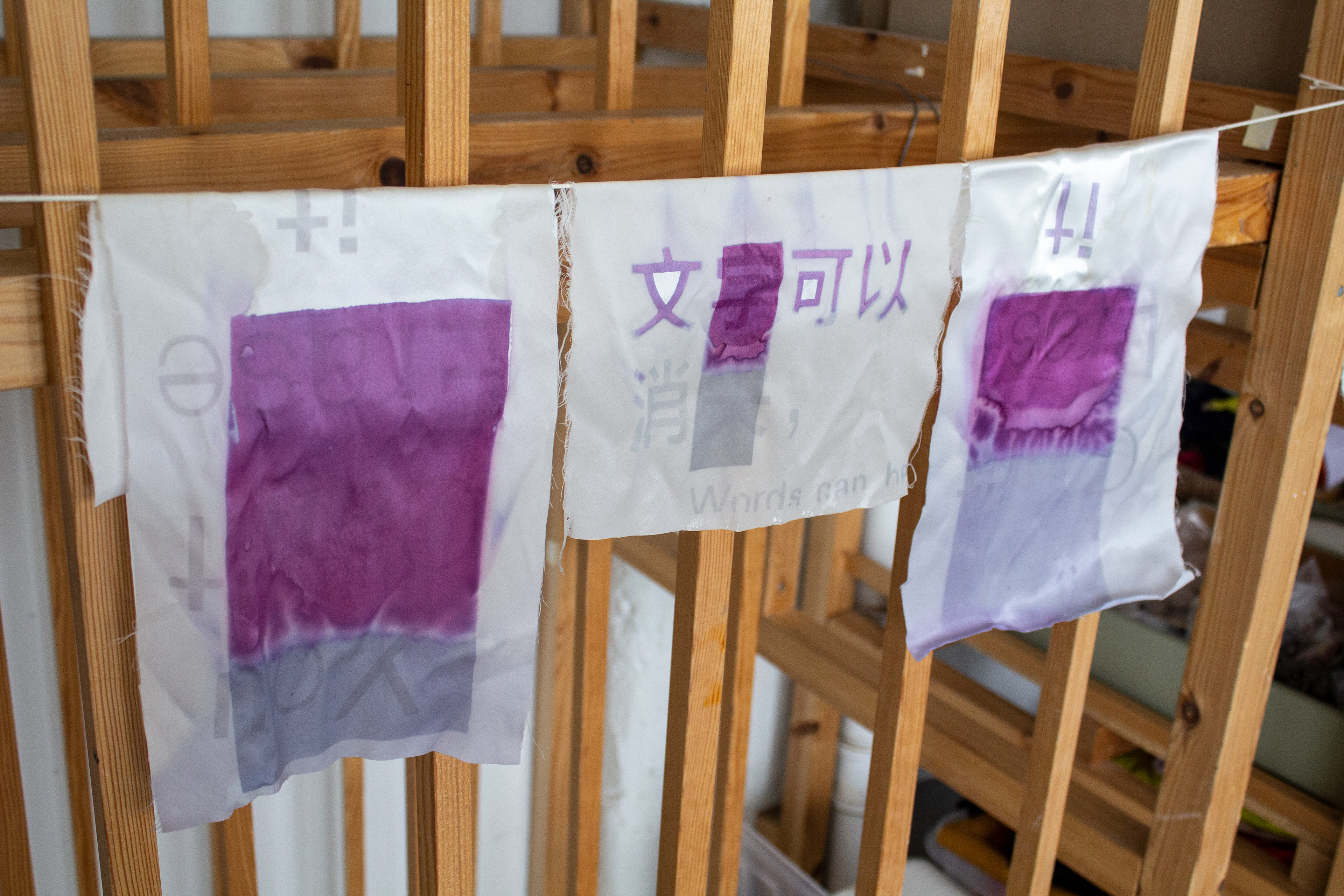

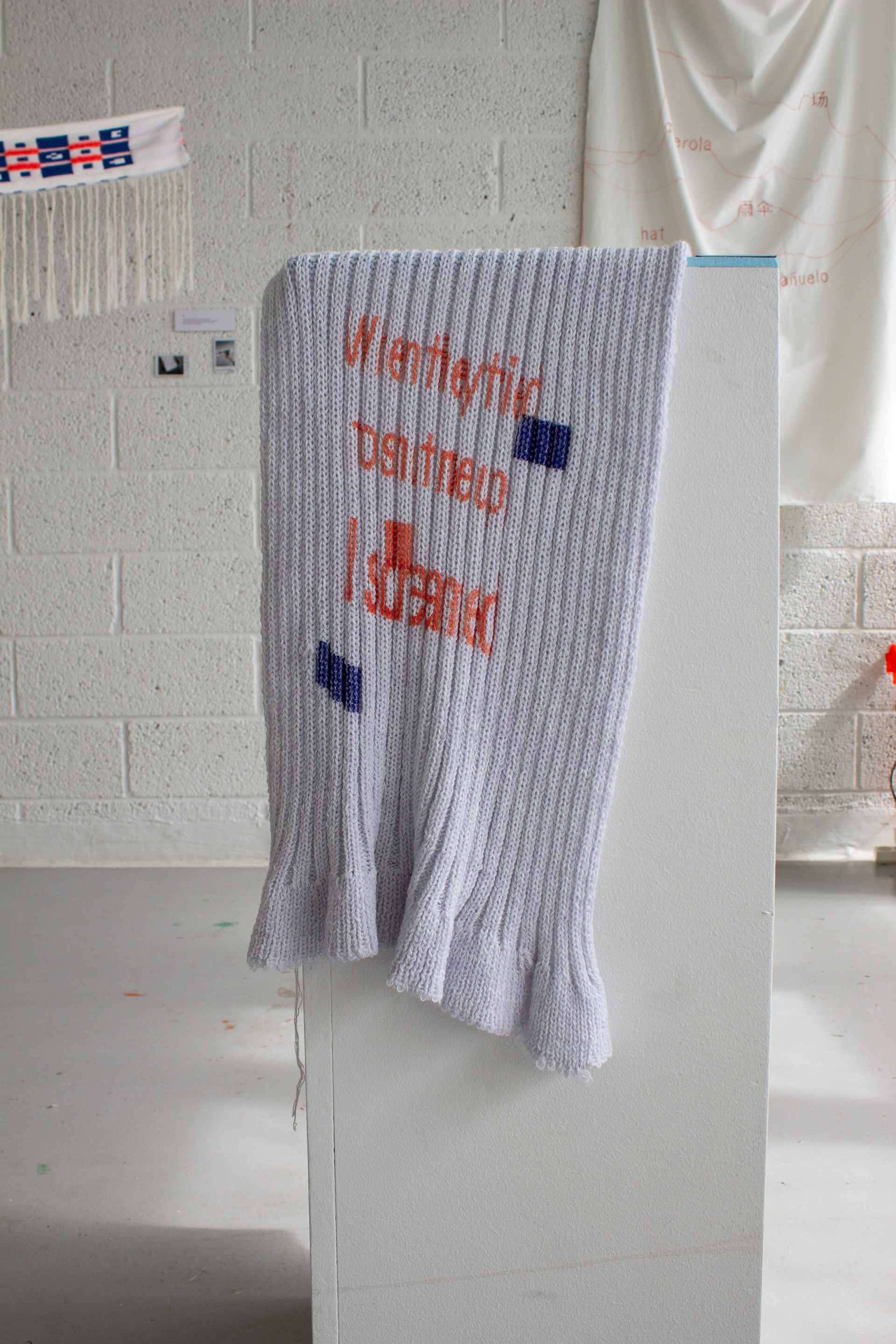
YARNS.TXT.
Textile project, 2021Fabrics and clothing are often associated with beauty, comfort, protection, and playfulness. But as a soft medium for personal and collective expression, textiles are also a powerful communication tool. YARNS.TXT explores the role of textiles in the context of rebellion, as support to bypass physical and digital censorship undergone by governments all around the world.
Pleated structures, fading dyes, traditional weaving, AR, and electronics are combined to create an interactive experience where the visitors are welcome to discover the messages through touch, view, and sound.
This work was done in collaboration with new media artist Kiko Chen, during our Softislab Residency.

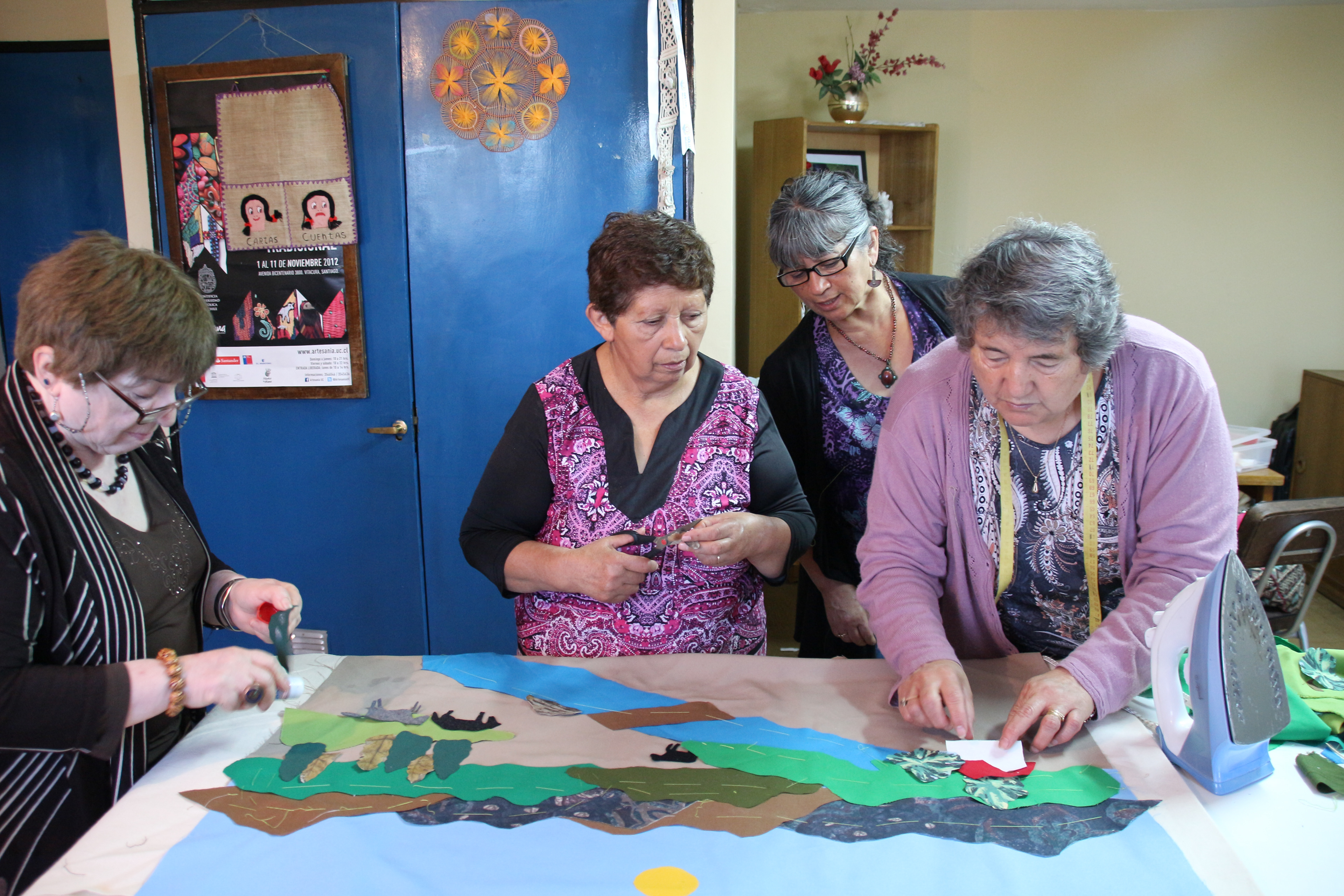
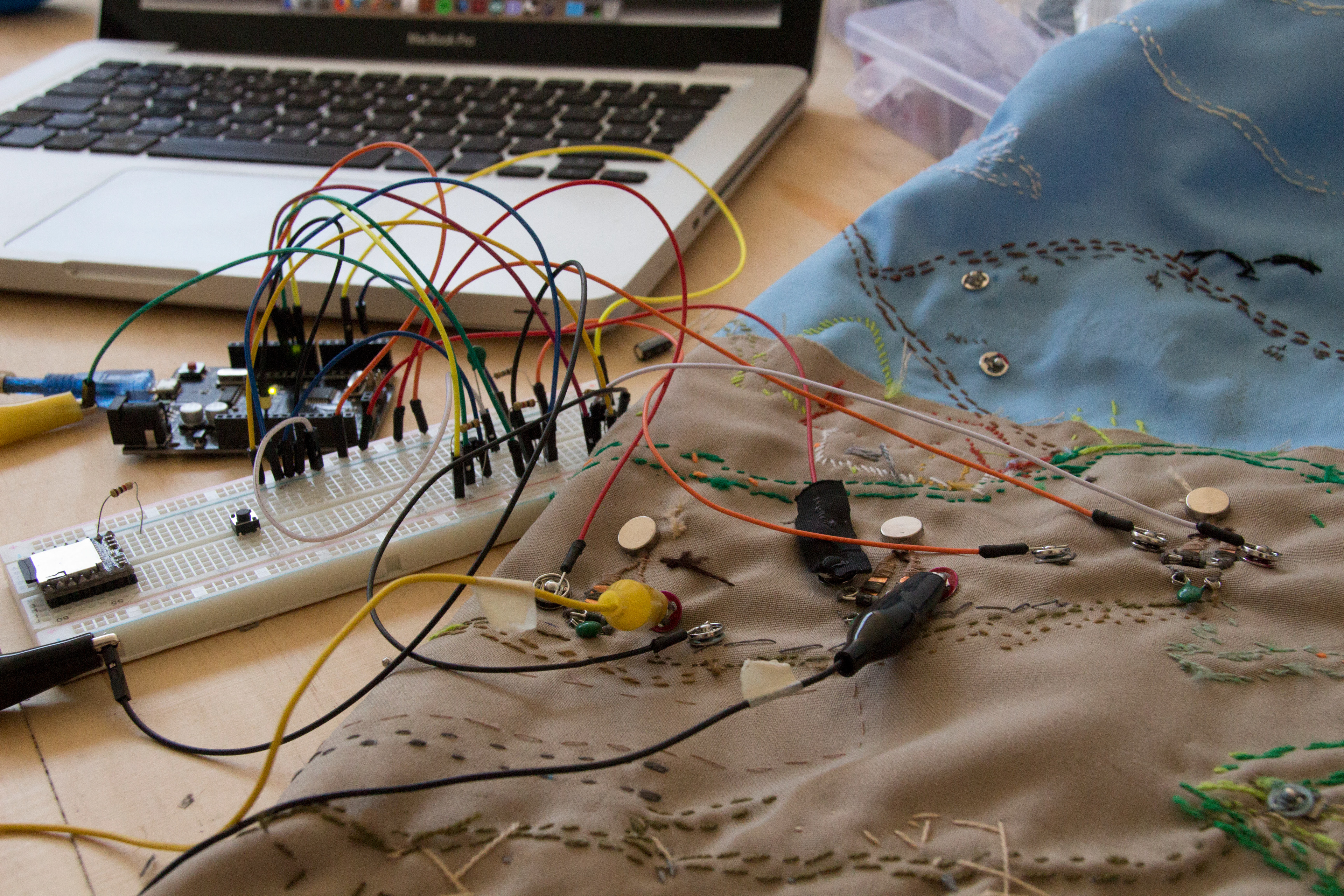

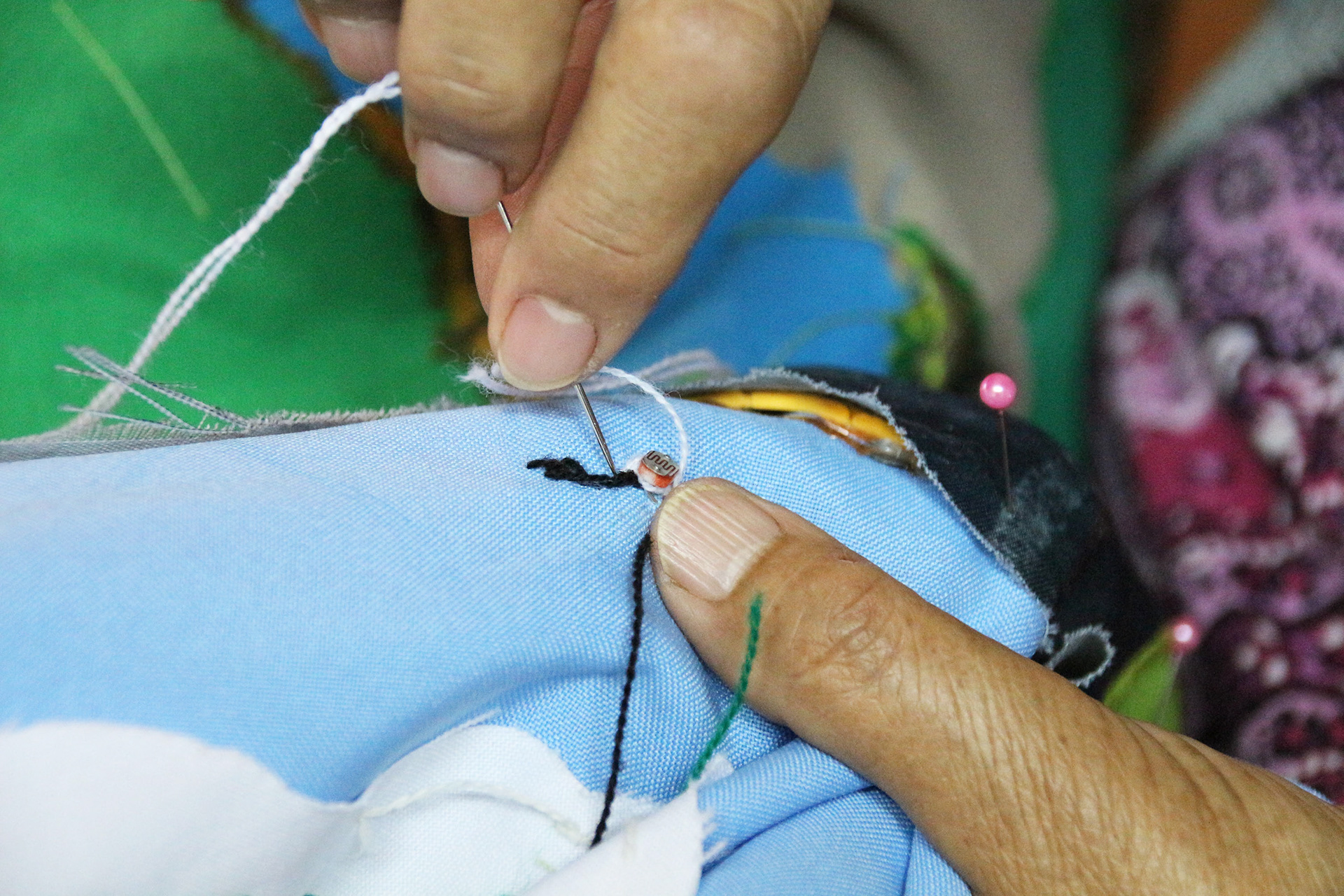
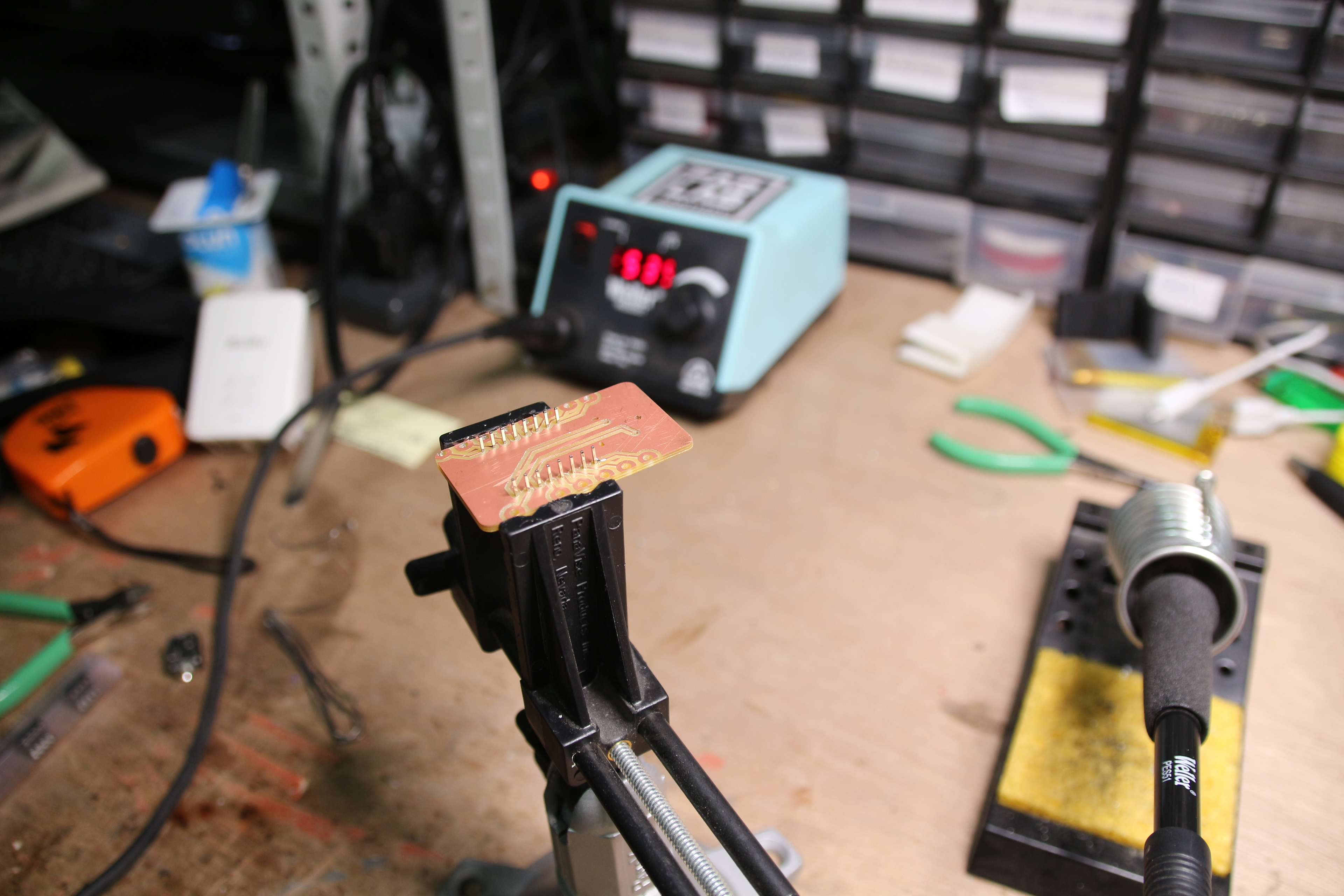
Talking Arpilleras
Textile project, 2018Exhibited at Fab Textiles Exhibition, Paris, 2018
Museo Violeta Parra, Santiago de Chile, 2019
Talking Arpilleras is a project that explores how the integration of new technologies can add value to a traditional textile technique, by adding new layers of information that enhance its main communicative effort.
The Arpillera is a textile technique characterized by using potato sacs as the base fabric. It was born as a way of political expression created by women to confront the violence and fear that resulted from Augusto Pinochet's military dictatorship in Chile (1973 to 1990). Today, is still used to communicate issues related to Chilean and Latin culture, like violence against women and minorities' rights.
The creation of an interactive textile piece was made in collaboration with Chilean artisans from Melipilla, adding electronic components like conductive thread, conductive fabric, soft sensors and microcontrollers.